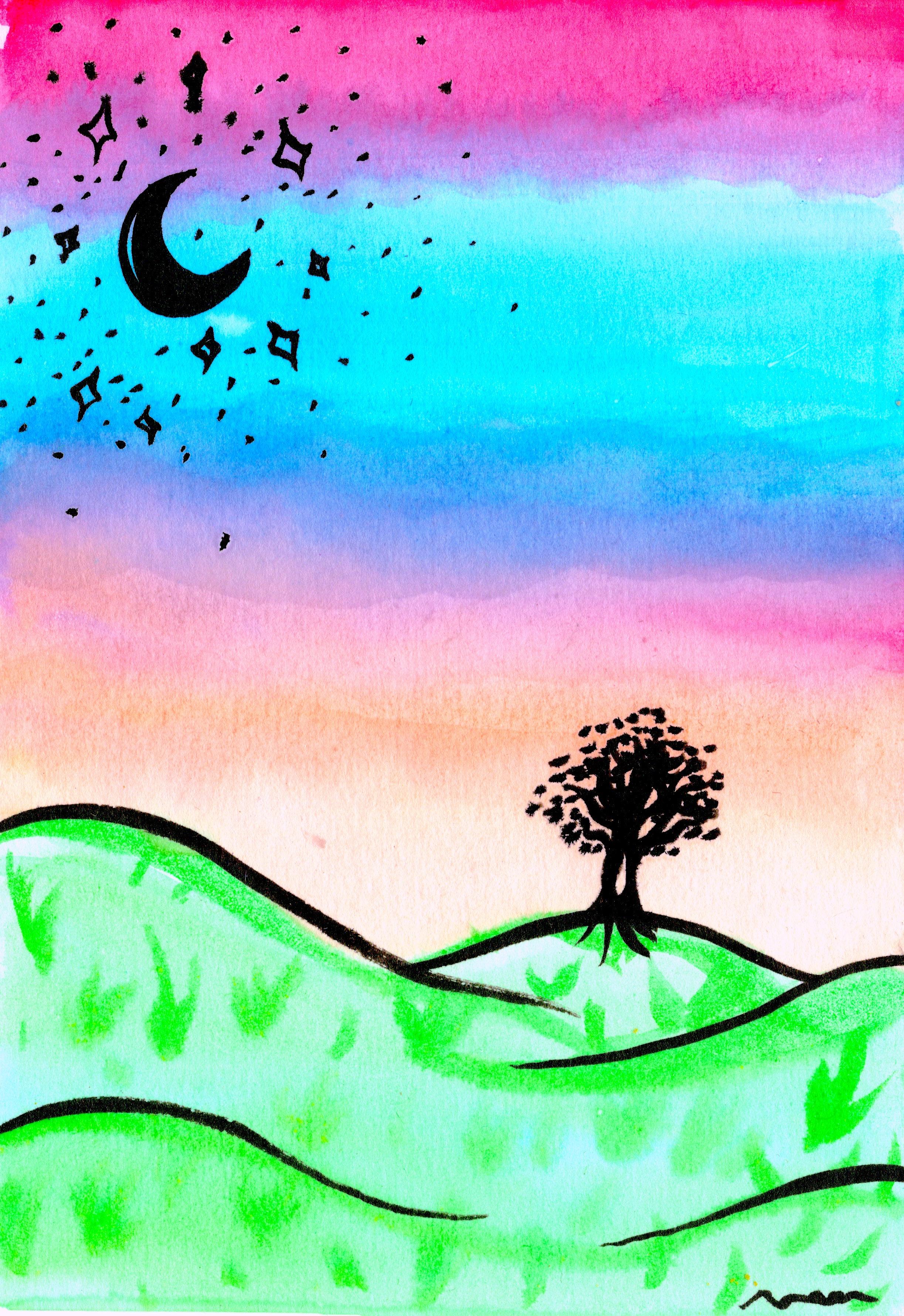





zooming in editor zooming in editor watch & listen editor watch & listen editor bite size editor bite size editor art editor art editor







zooming in editor zooming in editor watch & listen editor watch & listen editor bite size editor bite size editor art editor art editor
Vol 21 No 1 Fall 2022
editors-in-chief Havi Rojer & Chloe Wayne
ED Plowe Yvette (Yv) Reyes Brandon J. Chandler Ori Ben Yossef Jill Muszynski Sofia Paredes Havi Rojer Chris Lee
writers Brandon J. Chandler Chloe Wayne Chris Cambry Chris Lee ED Plowe El Robeck Havi Rojer Jill Muszynski Lillian H.G. Lilly Bjerke Liz Grosul Melenie Mendez Ori Ben Yossef Stephanie Tom Vee Cipperman
senior editor managing editor managing editor zooming out editor zooming out editor copy editor web editor
Vee Cipperman ED Plowe Chris Lee Grace Lee Juanru (Stella) Zhang Lilly Bjerke Alejandro Tejera
artists Alejandro Tejera Audrey Andrews Bex Pendrack Bora Shin Brandon J. Chandler Caroline Zhu Chloe Wayne Chris Lee ED Plowe El Robeck Havi Rojer Kiki Plowe Lillian H.G. Lilly Bjerke Ori Ben Yossef Vee Cipperman Yvette (Yv) Reyes
cover art table of contents art
Havi Rojer and Chris Lee Chloe Wayne
Bite Size
Prayer to My Chaos
Sibling Chaos
Rhapsody on a Green Couch Bloodlust
Grounded Transport
The Boob Chart Songs for the Sun Even Fires Need to Recover It’s Okay; Burn A Little Longer buzzcut
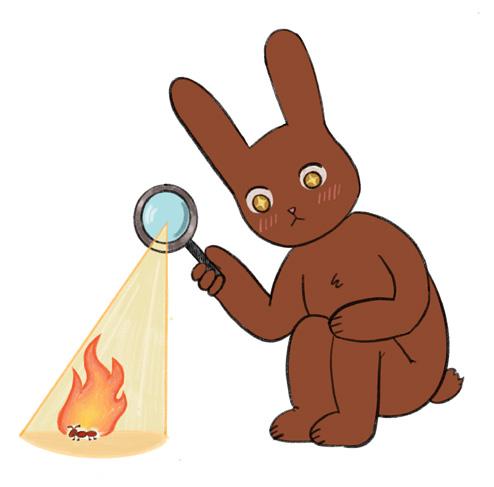
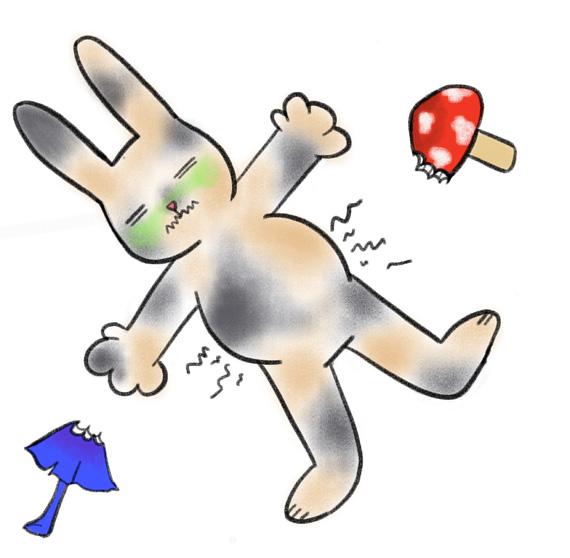
SKETCHES by Chandler
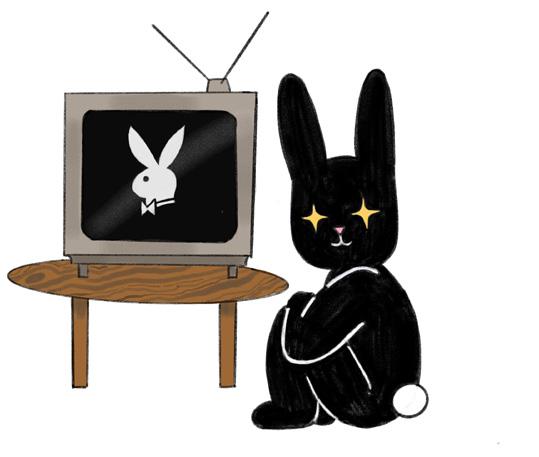
Watch & Listen
FEAT
Warrior Cats and Squirrels Weird YouTube Allignment Chart A Creeping Fear Into Night Vale
A Teenage Bride and Groom Primordial Slime
How to Bake Gluten Free Bread! Laura’s Room
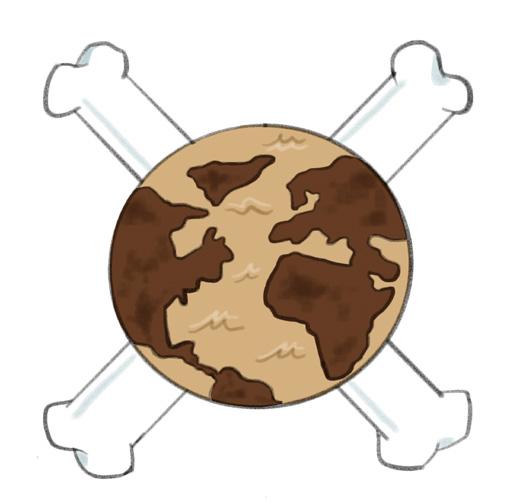
Idaho Politics Birth Control Madness Kissing Party
An Ode to Teen Writers
Kitsch’s Chaotic Crushes being good to ghosts Hauntings Campus News Chaos, Not Disorder Fungal Friendship Secret Message
35 36 38 40 44
47 48 51 54 56 58 60 62
68 72 74 77
Dear Reader,
Our world has always been chaotic, but perhaps never more so than over the past few years. Throughout quarantine, we all discovered the chaos within our homes and our minds. Now that we are once again existing within the greater world, we are discovering the chaos within each other. From the messy to the cathartic, we’ve learned to share space with the unpredictable, finding space to thrive and cultivate.
Kitsch’s writers and artists have embraced their own entropy to make this magazine. Sink into the memories of two lovers in Rhapsody on a Green Couch by Vee Cipperman. Become a StarClan warrior in Warrior Cats and Squirrels by Bella Swope. Get your oven preheated and learn how to bake gluten free bread! with Jill Muszynski. Turn on your flashlight and explore the spectral with ED Plowe in being good to ghosts.
This semester, Kitsch has found beauty in the chaotic; we rejected the notion that we must transform a cacophony to a euphony, the distressed to the manageable. Indeed, in a “come-as-you-are” spirit, Kitsch editors have made art and writing ranging from boob charts to niche YouTube videos dearest to our inner middle-school hearts.
We’ve spent close-knit evenings drawing lopsided tiddies, cutting heads out of millennial-targeted magazine ads, and simply eating a smorgasbord of food scrounged from our cabinets. More than ever, we hope that this semester’s magazine is a safe haven for the deviant, the wacky, the excluded, and anyone else craving a break from the demanding rat-race of life.
Love and gnomes, Havi and Chloe
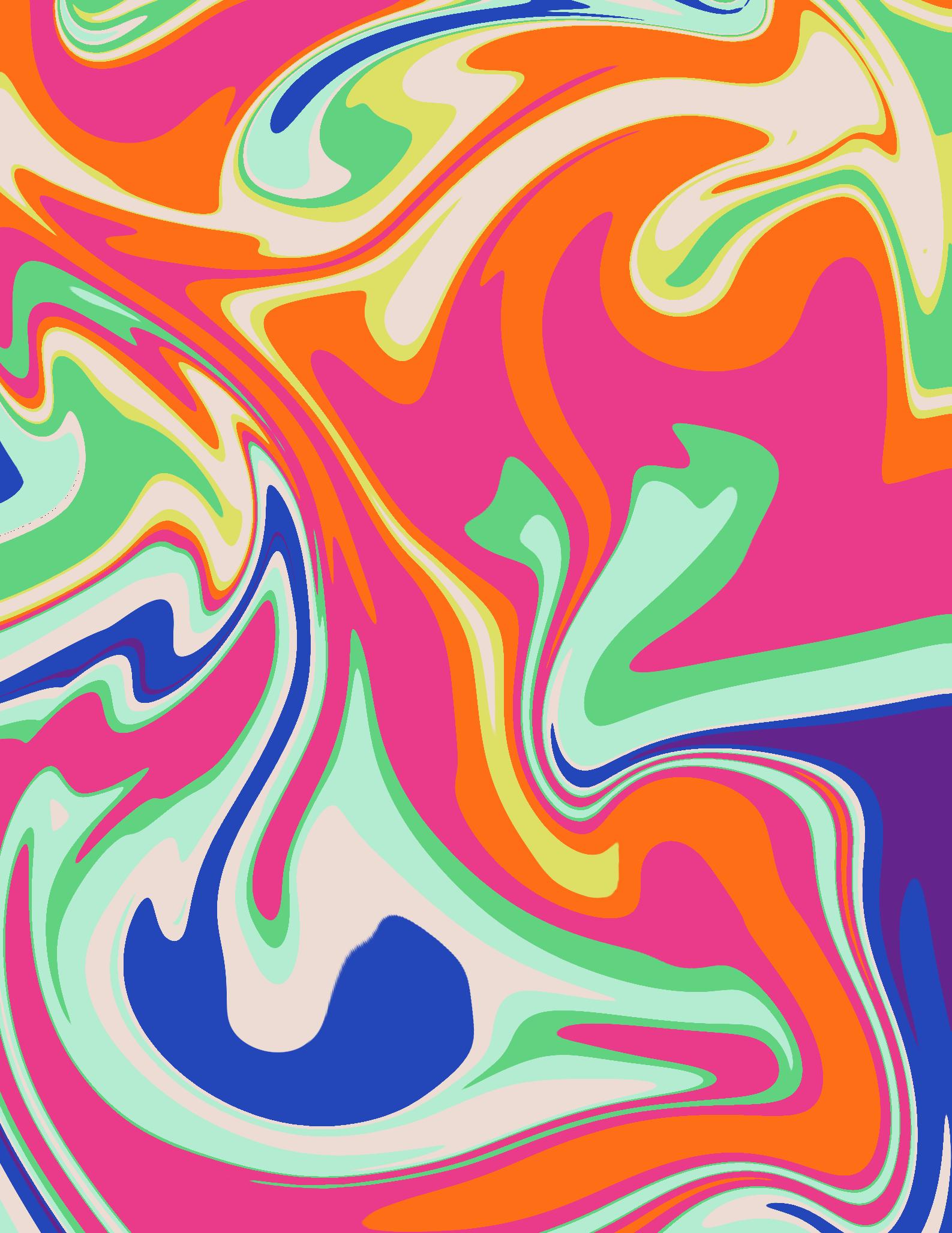
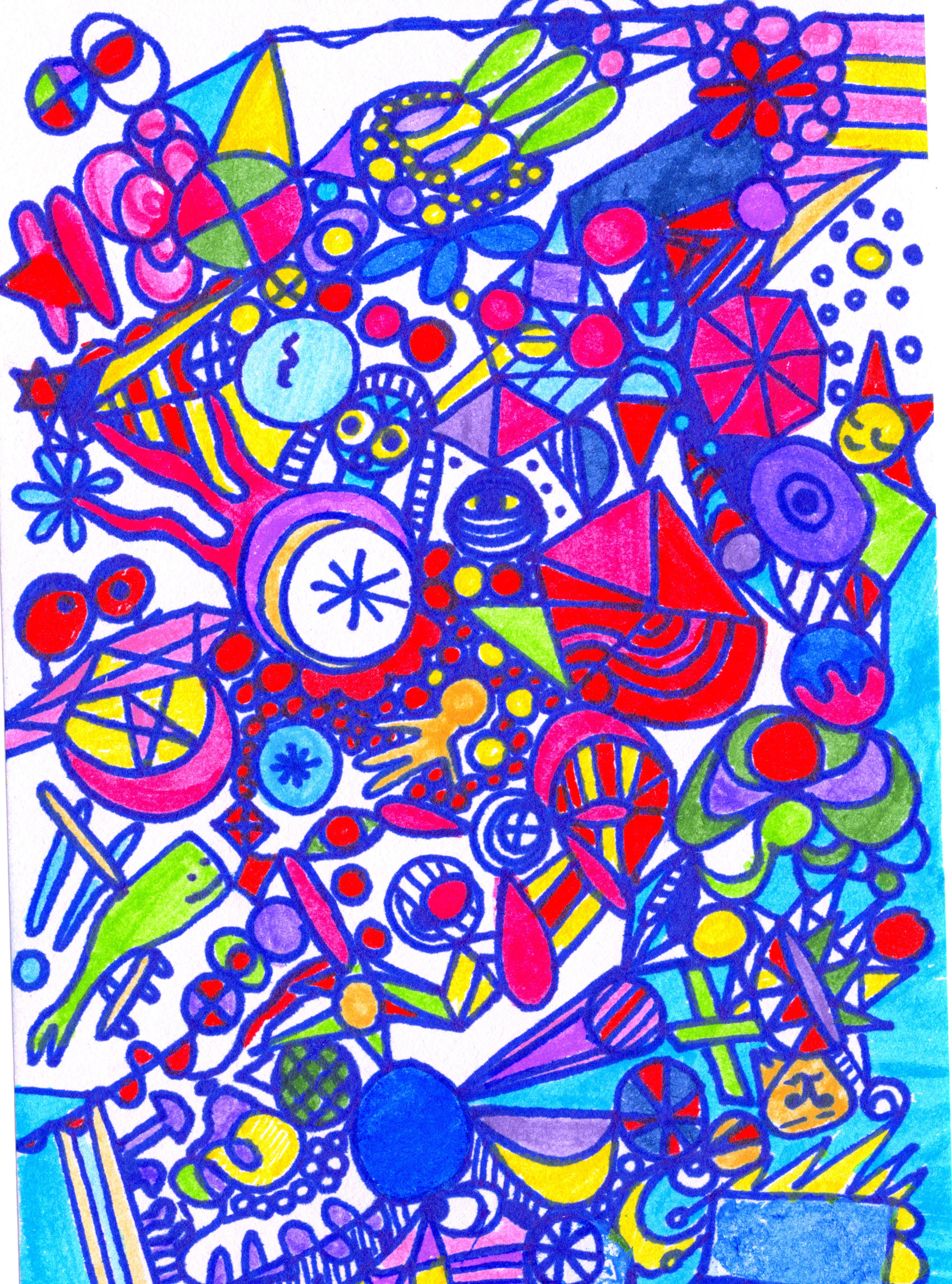
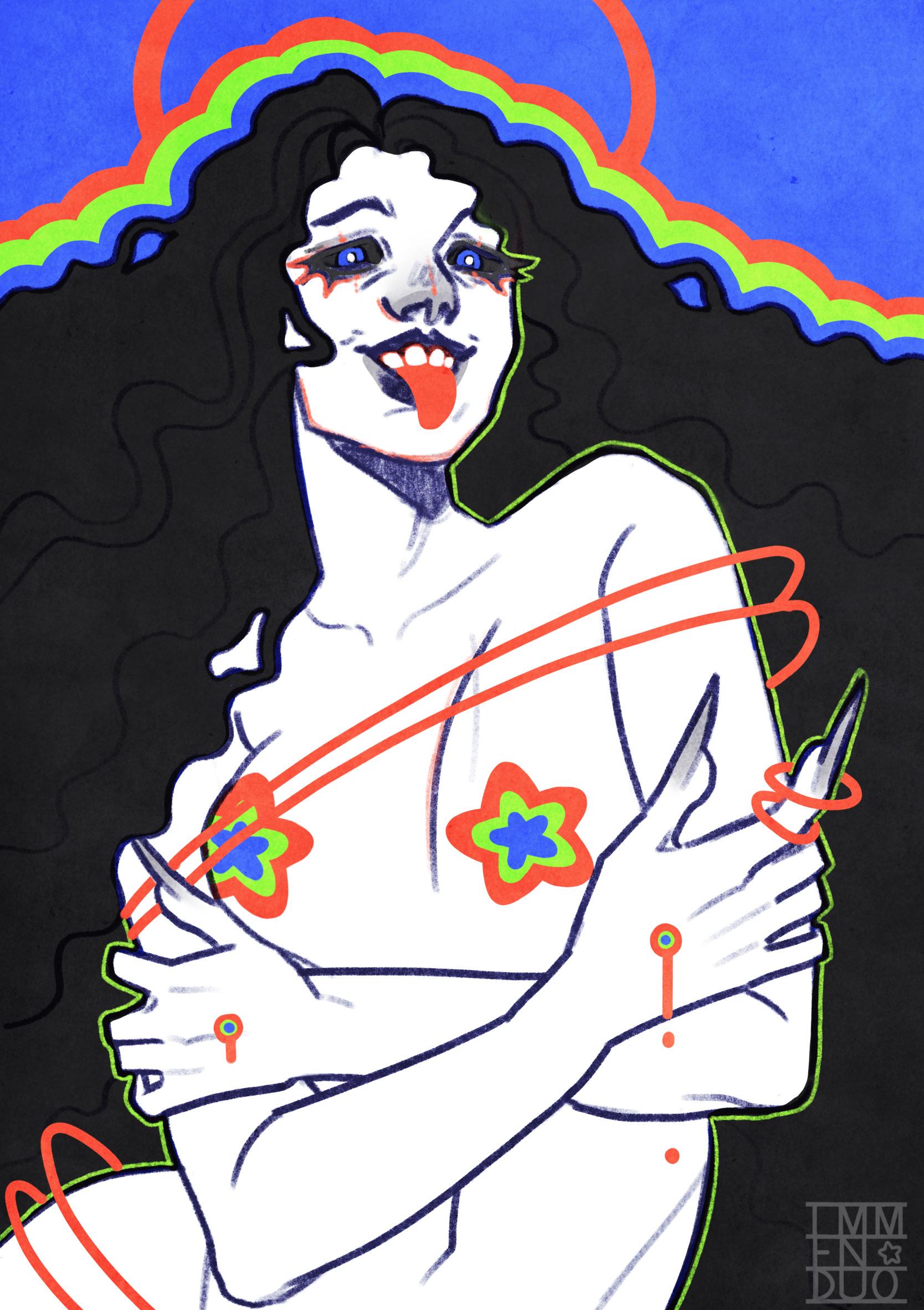 art by Alejandro Tejera
art by Alejandro Tejera
Chaos, My God, The Holy One Who Brings Bliss. Hold my face, Caress me once more With your cold, sharp fingers Of iron and gold.
Trace your holy whorls On my cheeks Line my brows With nonsensical runes.
Gaze into my eyes With your incandescent moons Impart to me that knowledge That lies within The colors no one has seen before. Words that I will never be able To speak out loud.
Oh Goddess, You who bring tumult Into the lives of those who scorn And those who love you.

Our savior, Who pulls us From the crushing depths of complacency.
Your hands are sharp, Your gospel sharper yet. But you save us From an eternity of suffocation. And our scars heal Bringing us closer to you Oh, unpredictable one.
What joy it is to be in your waves. Oh, Great Ocean, The Wandering Storm, The Creator, The Guide, And The Architect, Of our beloved and incomprehensible universe.
The joy of a younger sibling’s birth is truly memorable. I’m sure most older siblings are excited for the new adventures the two of them will embark on. For me, the joy came from a very different place. The moment I held my baby brother in my arms, I grinned as I realized I finally had a younger sibling to torment the way my sisters did to me.
Don’t get me wrong. I love my siblings and our jokes were all fun and games, but my older sisters were evil geniuses who had mastered the art of subtle manipulation. Some of their shenanigans were strikes of pure older-sibling genius that even now I applaud. They got me to do their laundry, be their human footrest, and buy them new clothing without me even realizing I’d been conned. So, naturally, I was looking forward to some of the added benefits of a new family member. Unfortunately, I lacked the grace that my sisters had.
Now perhaps you’re wondering how they got me to cede to their wishes so easily. I think that has to do with their sisterly dynamic. My oldest sister, Annika, was very intense in the way that I imagine many older siblings are. She was the moderator while my other sister, Louisa, was the classic middle child. Together, they played good cop, bad cop, and I fell for it every time. Louisa would tell me I’d had a twin brother switched at birth but I would never believe her until Annika chimed in that it was true. They were also clever enough to make me think I was playing a game with them. “Let’s play pretend!” they would declare and let me pretend I was a puppy. I was so happy for the inclusion that I didn’t realize the games of fetch meant I was actually cleaning up their dirty rooms and depositing the laundry in the laundry basket.
When I got older, they profited off of the fact that we were all finally the same size. I was desperately behind fashion-wise so I would come to them for advice. We would go shopping together and help me try on a variety of clothes. “That looks so good on you!” they would say. Actually, it looked horrendous, yet somehow fit my sister so much better. When I would show my new acquisitions to my mom, somehow, my sister would end up with the clothes I bought for myself.
Now I was a menace, so many of these were well deserved. And like I say, I look back on their games with respect and even affection. But I never mastered the art quite the way they did. So, Annika and Louisa–and all the older siblings out there–I tip my hat to you!
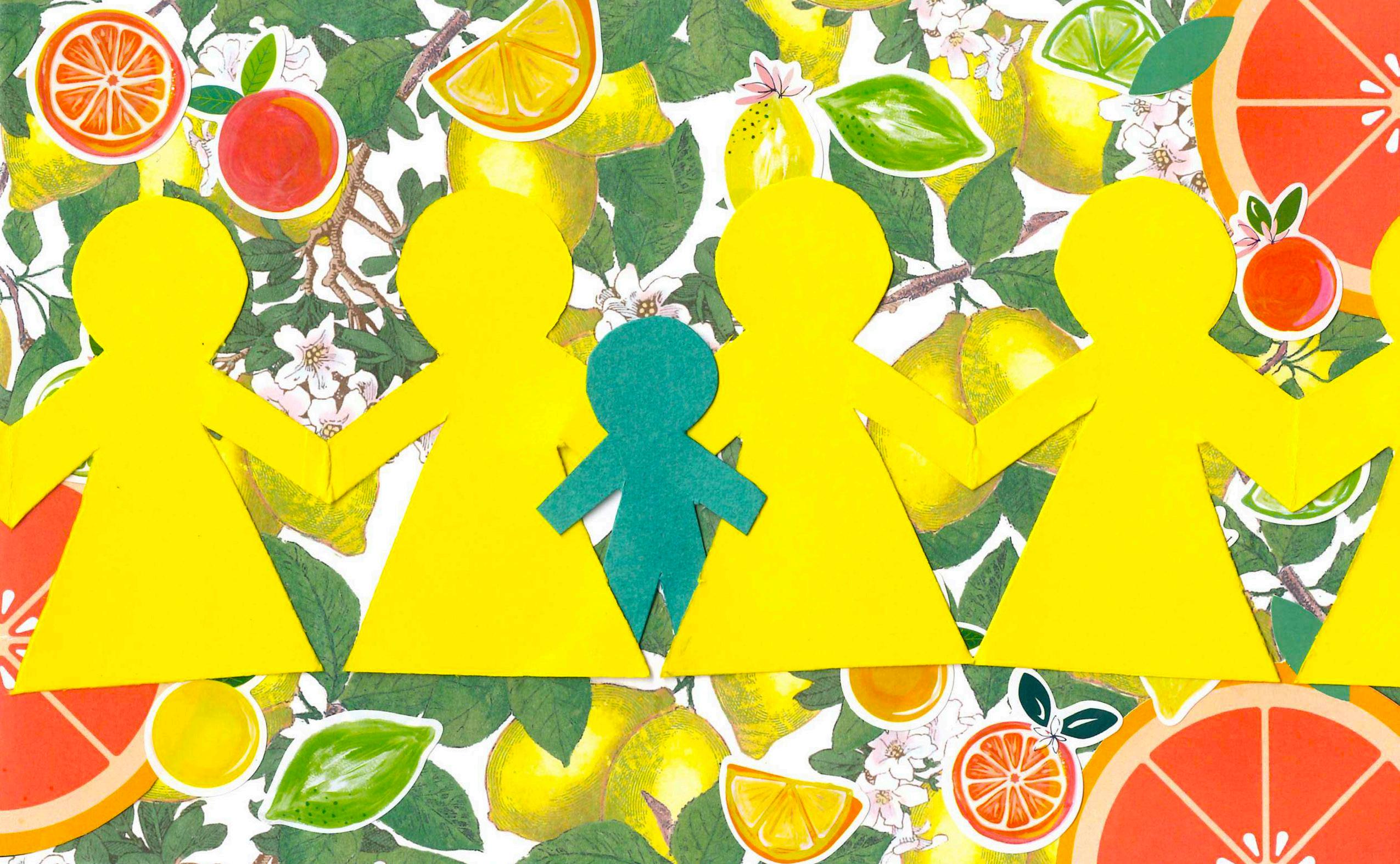

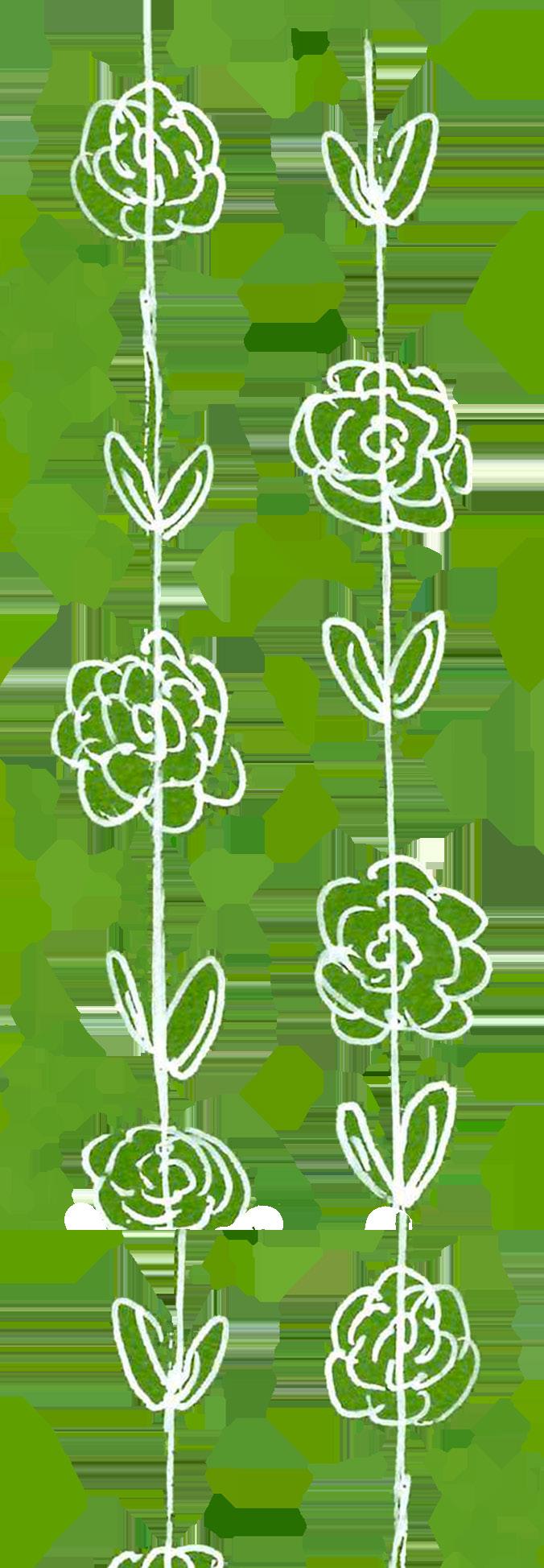 by Vee Cipperman
art by Audrey Andrews
by Vee Cipperman
art by Audrey Andrews
Our couch is green like the hill we used to lie upon, fresh as wind and velvet as grass.

It comes from the 70s or so we have to guess: lumpy, back-curling, and thrift-store fresh,
too small for us two, but we squeeze in together.
If I said that I loved you like God, would you say that you loved me like country?
We break and make and break our covenant, promising nations, delivering shabby apartments, filled with dusty stuff that we buy secondhand and half-price.
I think that they made our green couch in the 70s; I think that they have always made green couches: soft as dove-like eyes to hold us lovers.

I am in the corner of your room Where the cadavers live
I lay with them, side-by-side, eye-to-eye, forehead-to-forehead, flesh-to-flesh
To bask in the company of a fellow heretic To re-acquaint myself with sin
I live the most unrestrained and decadent of lifestyles with them
I play in the muck and filth of their bodies While reveling in the unabashedness of my own Degradation of the soul has rendered their bodies meek Flesh that was one yielding and pliable has been reduced to a mottled, bilious mass I trace along the calcium-fortified sheath of bone, withholding the ripe and sappy marrow Once I find a valley — a nook where bone meets bone — I pull. Crackling noises echo into the void, a cacophony I pull the bones until thin, veiny lines dance around the juncture Where appendage meets carcass Branch meets root
A carnal, hedonistic being I unnerve myself
The church makes fanfare for their gilded liars
In the sanctity of a palace Golden, honey light vies against the ego of the “Gods”
Just to fill the volume of the room Specks of dust spiral, stimulated to move by the sheer force of a footstep Stunned by a violation of their tranquility, they jut forth, as if jarred Then they slow, floating back to their original positions
As if sentient, they mimic human behavior
These Televangelists foam at the mouth
At the thought of whose head is next on the chopping block Whose head is next on the chopping block? Whose next?
Hang me upon ye ole’ cross Recite my name even though it spoils the sanctity of your tongue Oh, burn me in your pure and holy light! May their beams puncture the lenses of the most putrid eyes, eyes that have witnessed sin! Chant your stereotyped phrases, your empty and hollow incitements
Your sterilized chords sing cliches These semantics have been satiated, rightfully so Guide me to the worn earth, the crumpled and frigid leaves Their veins hold the traces of a life once lived Yes, the crimson-adorned path, where sheep are dotted along the edges of fried earth
Gawk and shout at me! For I can recognize strength in surrendering to my appetites! For you are weak in denying that you have any!
Why can’t I be normal?
How I would love for mother nature to spoil me with her delights How I wish God looked upon me; for aren’t I his child too?
How hard I worked, using bird shit to color my feathers white Draining blood from the most succulent and ripe veins of my wrist Just so I’d have ink to cross my Ts and dot my Is
Instead, I compete with feral creatures for the decrepit remains of feeble, frayed corpses
How I wish their appetites were satiated Before the flames of their souls were smothered by the church’s candle snuffer
The bones of their spines click and clack as they hunch over their feast Teeth gnash at tissue and ligaments
Spiny tongues with their protruding taste buds They lap up the iron-rich blood of the deceased heretics Spit flies wildly as they smack their gums,
I no longer have the motivation to look upon this unsightly contest of brawn
Instead, I will blow your mind from afar
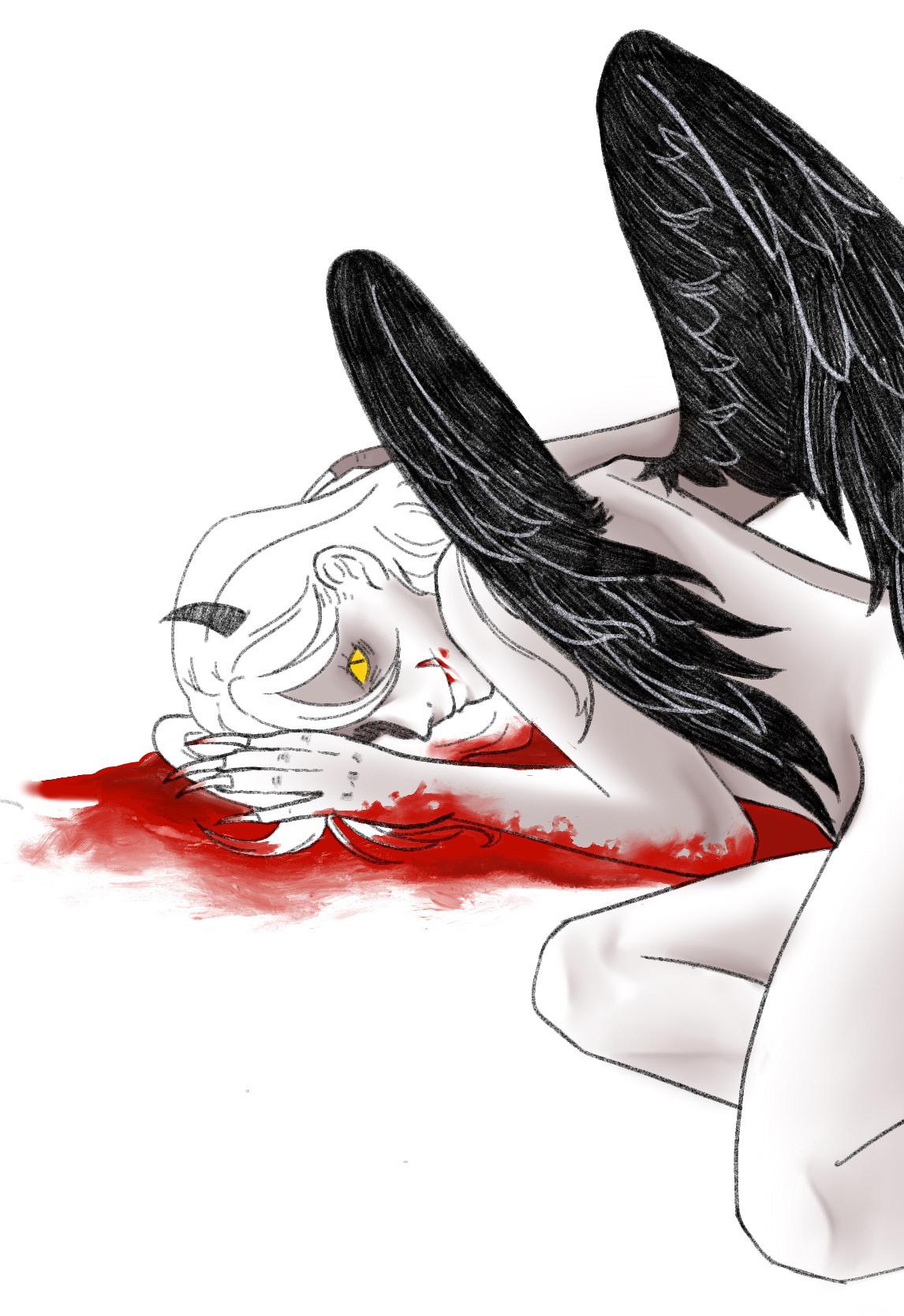
I am in the corner of your room
Where the cadavers live I lay with them, side-by-side, eye-to-eye, forehead-to-forehead But now, I am confined to the visual, restricted to voyeurism Barred from tactile delights
The throbbing maggots pool out of my eye sockets
The grease of their bodies traverse the cool, stable rift of my cheekbone
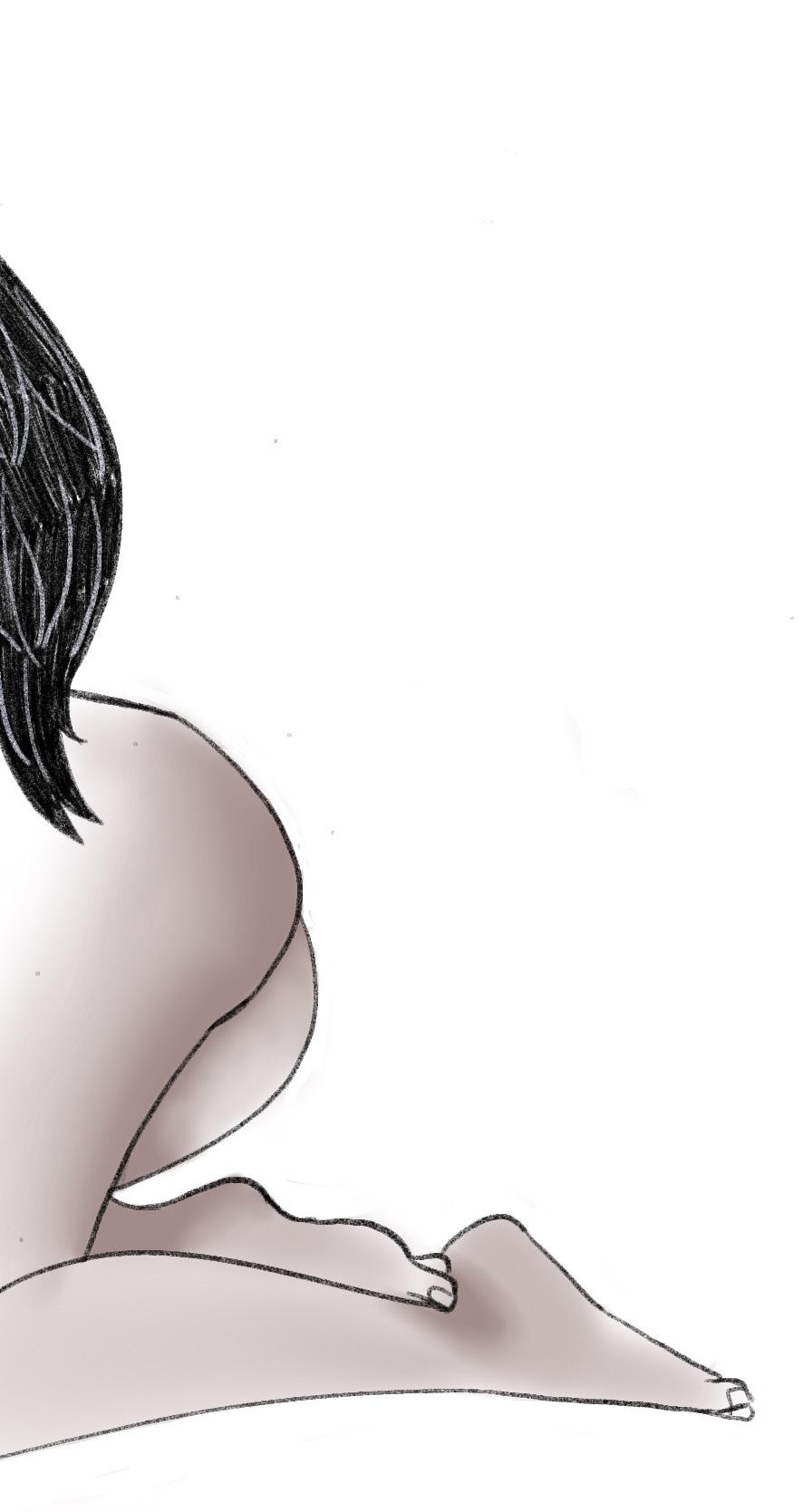
Now I must wait, For someone else to inspect the elaborate knotting of my veins For someone to hungrily smack their lips at the sight of my fragility My inability to protest
For someone to pull on the junction where my limbs meet my pitiful body
I don’t want to be here
In the quietude and mediocrity of my own death, I have found peace How my body lies lame in the dirt is like many other bodies My death was very indistinct, dull Contrasting to the hedonist life I lived Have I settled? Am I complacent?
In death, have I walked along the path of least resistance? Have I subjected myself to a reality that is less chaotic?
I still feel distressed amidst the silence of normality Must I always pursue chaos to feel connected to this planet? To not disassociate?
Am I motivated by the threat of chaos? By the potentiality of change? Must change be chaotic?
As my sinews spindle out My skin dries out I am coming undone
I am part beast. Is this normalcy?
written and illustrated by Ori
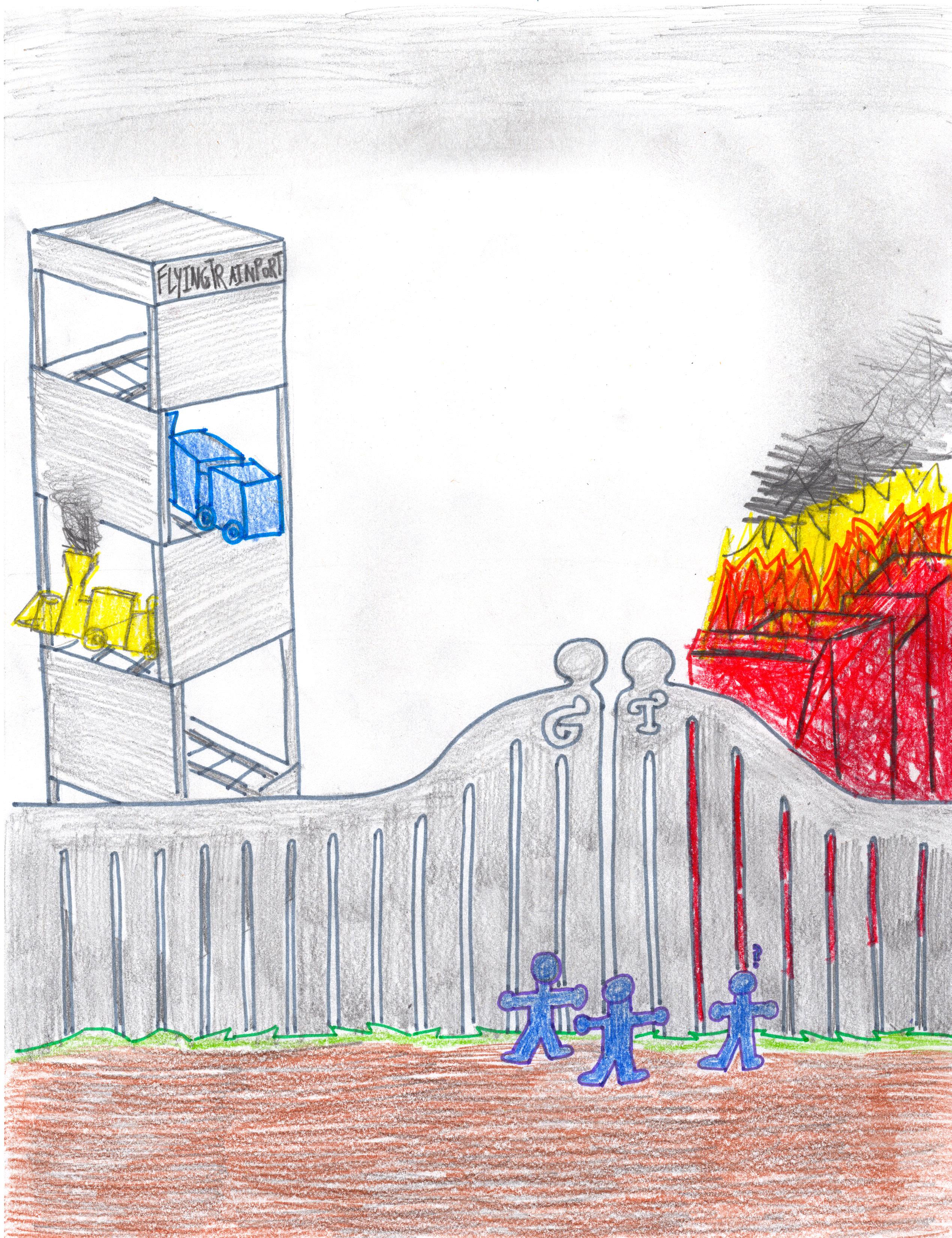 Ben Yossef
Ben Yossef
Three people stood by the barred metal gate when the fallen red train crashed through; the flyingtrainport was built as tall as could be, but sighed of lateral derailment.
Small, balled creatures live cannon-loving lives on the blue ocean surface. The colorful trains that glide through the sky are some favorite targets of theirs. They build their cannons and fling themselves into the eternal memory of their kind.
It began with a pop, if you can imagine a large knife stabbing a coca cola can; that’s a cutesy, plump, applish one welcoming itself into the central engine of the scarlet train that was on schedule just yesterday.
The train destabilized, coughed smokish flames from all about, persisted forward as it faltered and fell. And it fell, and it failed to grasp every possible trackrunway and obliged to circle about for lack of a flat surface on which to stably relieve itself of duty;
and when it found one, it was the path leading up to that gate where the humans go, and the train bounced and waved through its last breaths of levitation; and then it exploded through the gate, and it’s a wonder that those three people stepped aside in time.
I don’t understand why the people would knowingly board the train that gets shot down by these creatures, colorful and collectible, the ones who would rather combust redly in the sky than drown into pallid oblivion.
Two species share the cloudless sky; beyond that, they share only their adoration for the trains that capture their curiosity and dot the sky with color, and their indifferent acceptance of explosive crashlandings as a plaintive fact of life.
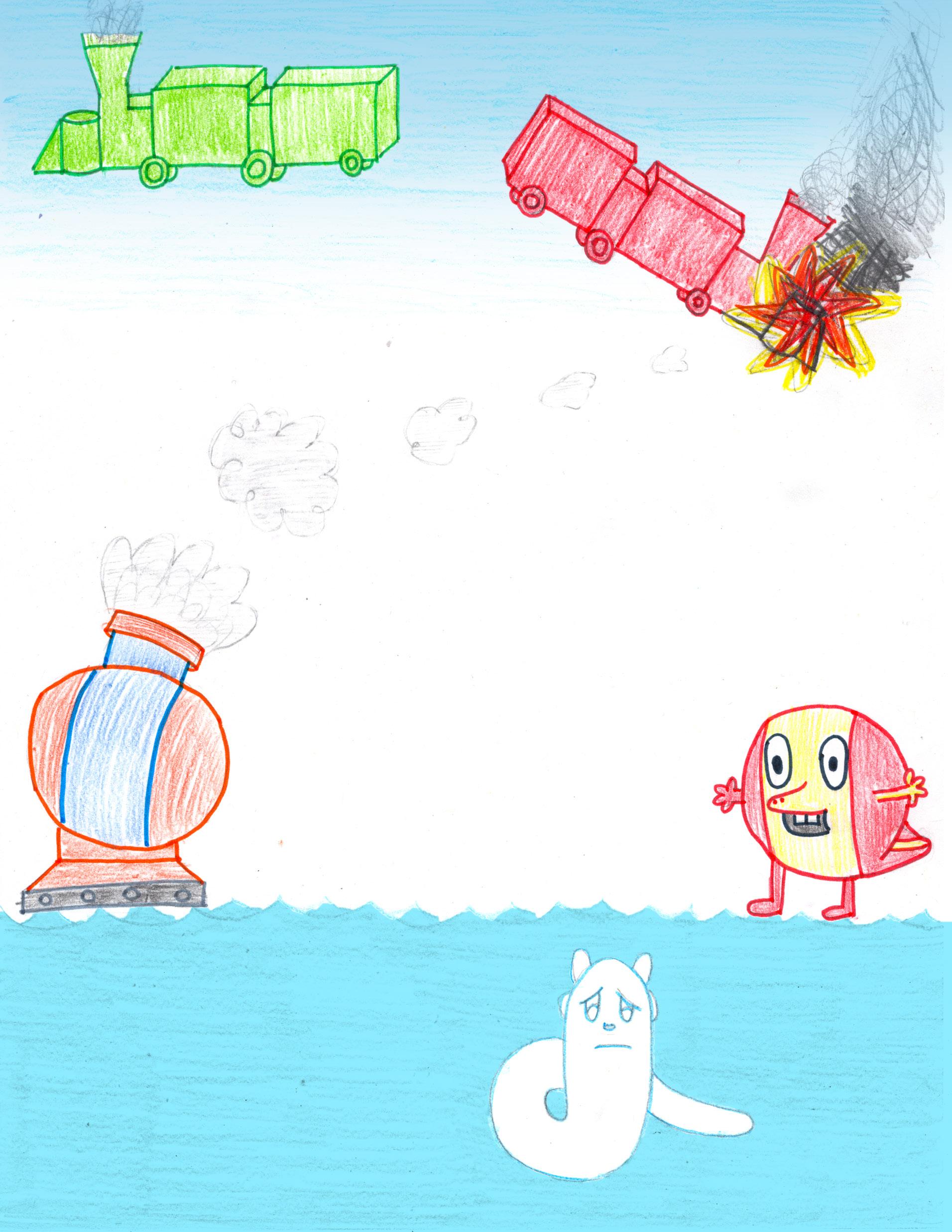

A while back, Chris and Havi were talking about boobs for some reason or other. Don’t ask us why. It’s just a thing that queer folks do sometimes. Anyway, we were both commenting on how the two of us happen to be members of the “Itty Bitty Titty Committee”.
Now, we love having small cherries, but we’ll admit that we got the easier end of the deal because of that. After all, we don’t have to worry about painful bouncing when we run or popping shirt buttons because the awesome power of the boobies cannot be contained, and yet we benefit from the bountiful bosoms (perfect for hugs and cuddles) of others. Between our two very strange, scientific minds, Chris and Havi discovered a perfect analogy to explain this tit-illating situation: blood types.
Everyone knows that O blood is the universal donor type. Folks with this blood type have no (common) antigens on their blood cells, so they can donate to all other blood types. However, they have antibodies to every other blood type except their own, and so they are unable to receive any blood besides other Os’. A and B blood types are in the middle; they can receive from O and from their own type, yet not from the other, and can donate to themself or to AB. AB types, the most selfish of the bunch, can receive from anyone, but can only donate to their own type.
Back to boobs. It was simple enough to make this analogy work for the three main blood types (combining A and B into one A&B type). Sizing up from teeny cherries to magnificent melons, respectively, we see the following: O, A&B, AB. Now all that was left was to incorporate the positive (+) and negative (-) qualities (known medically as Rh factor) of the blood types. In a stroke of genius, we realized there was a simple solution: overall body softness! There are plenty of folks with small boobs who are otherwise very soft and cuddly, and vice versa. To us, it made sense for (+) to represent more angular folks and for (-) to represent those with rounder bods. Both are amazing- we just felt this made the most sense to acknowledge the societal challenges often faced by those with larger bodies.
We want The Boob Chart™ to be an inclusive celebration of all bodies and boobies, and we hope you feel we achieve that goal. To everyone reading this, no matter your physical form: you are amazing! We are so grateful to your body for keeping you alive every day to bring love and creativity to the world around you!
- Havi and Chris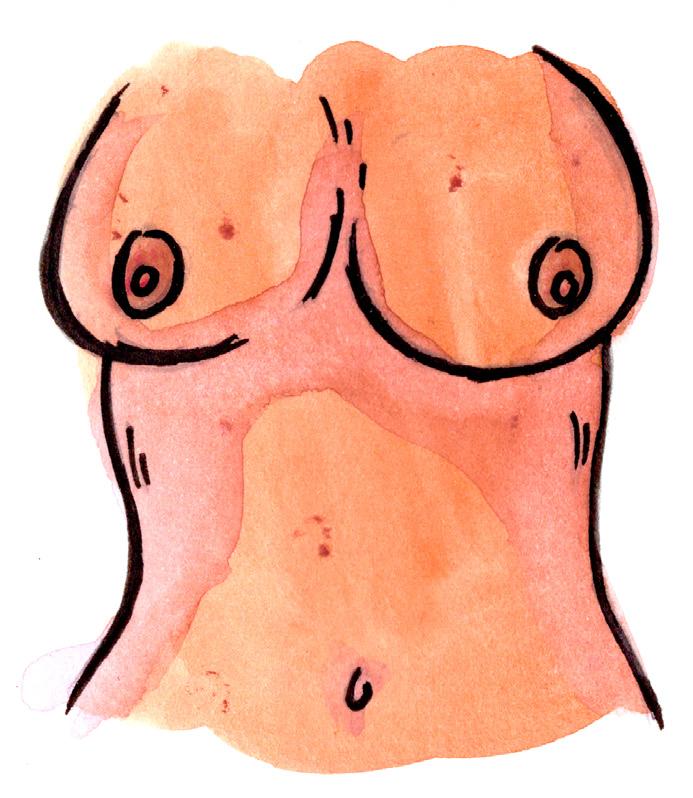
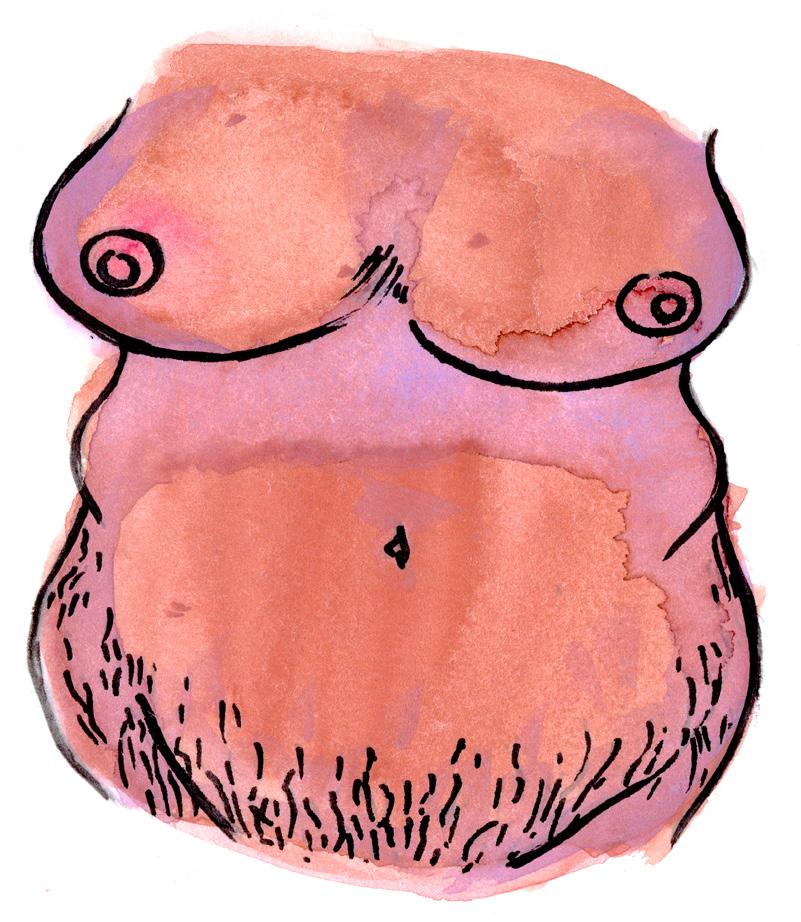
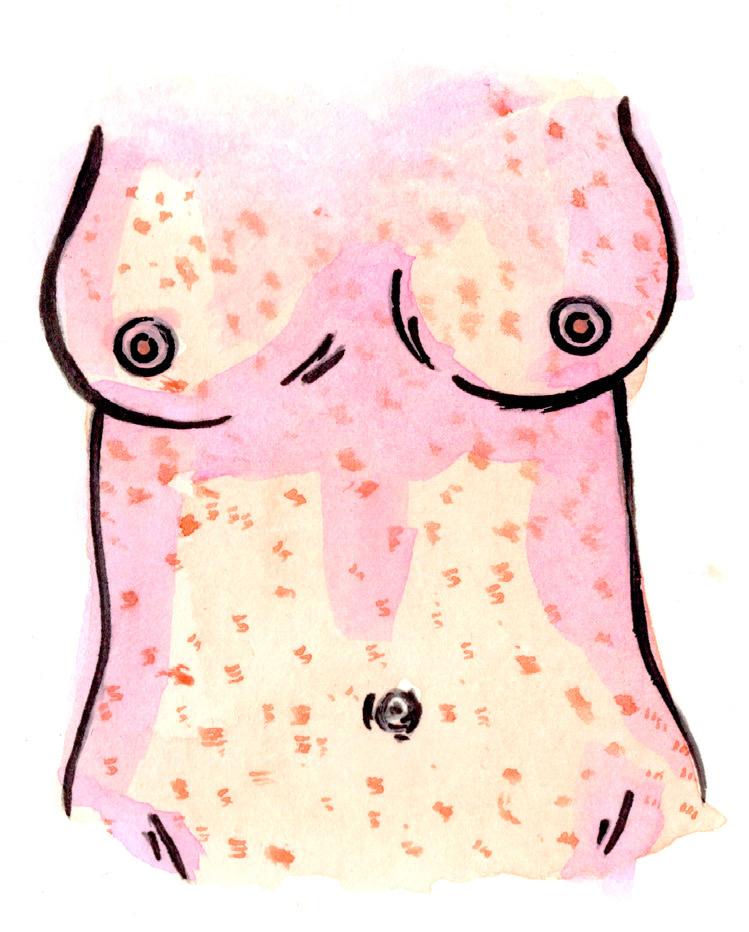
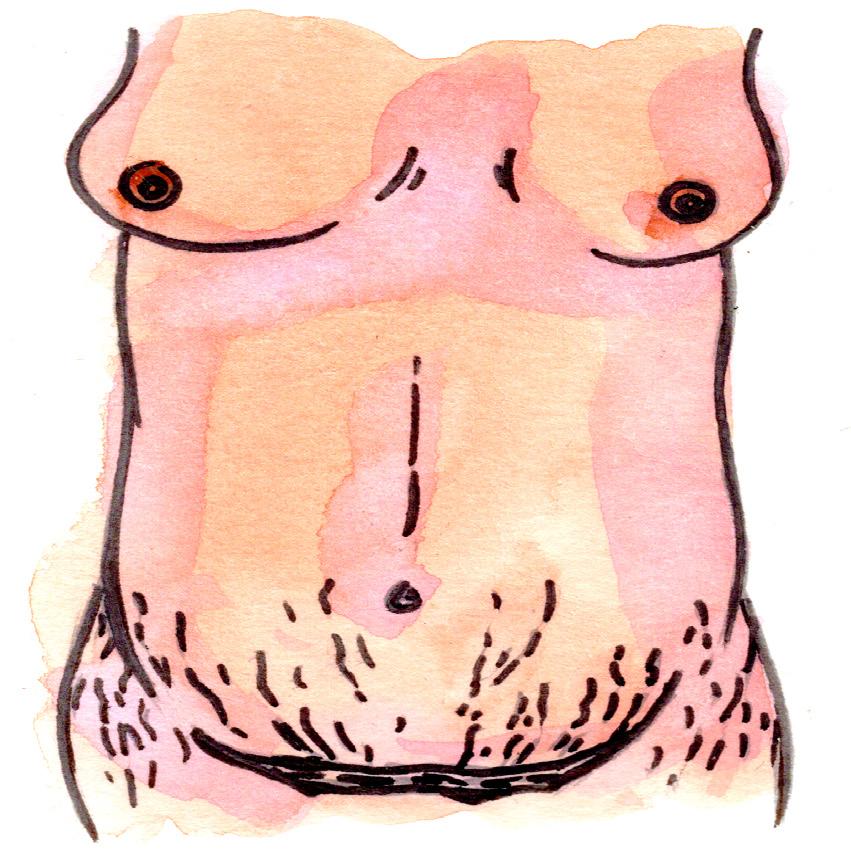
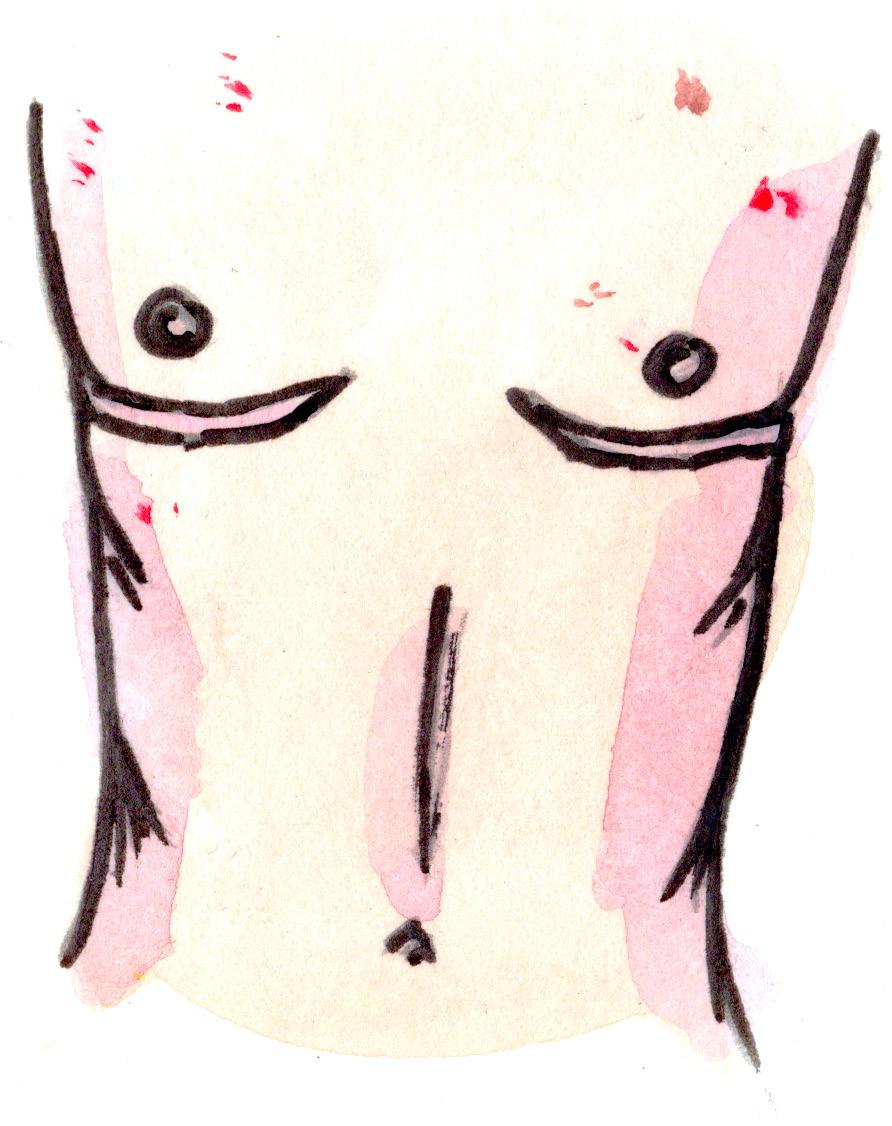
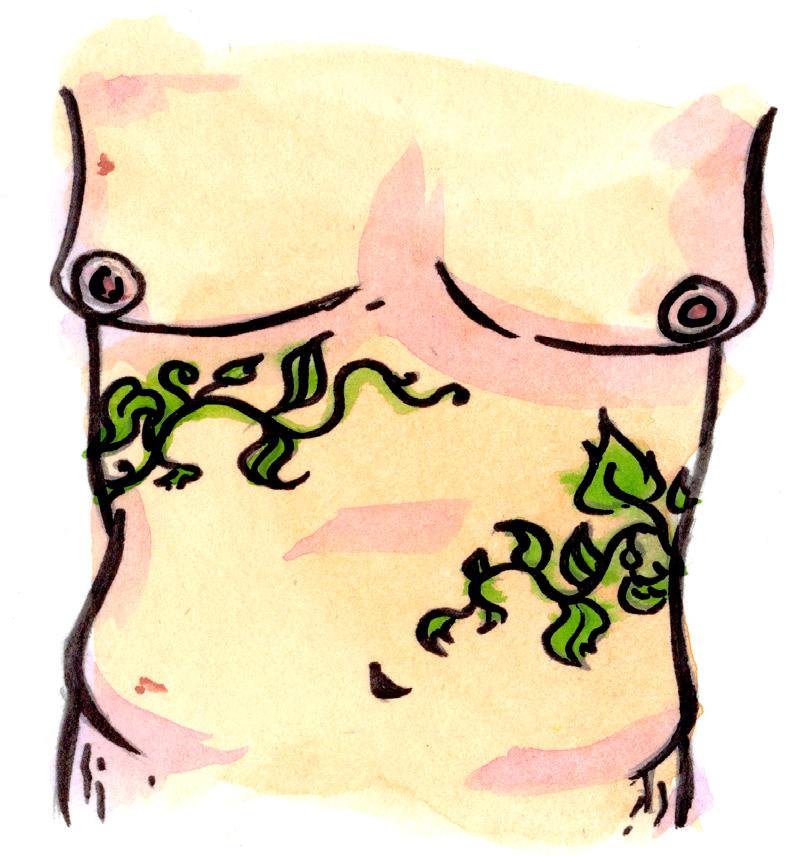

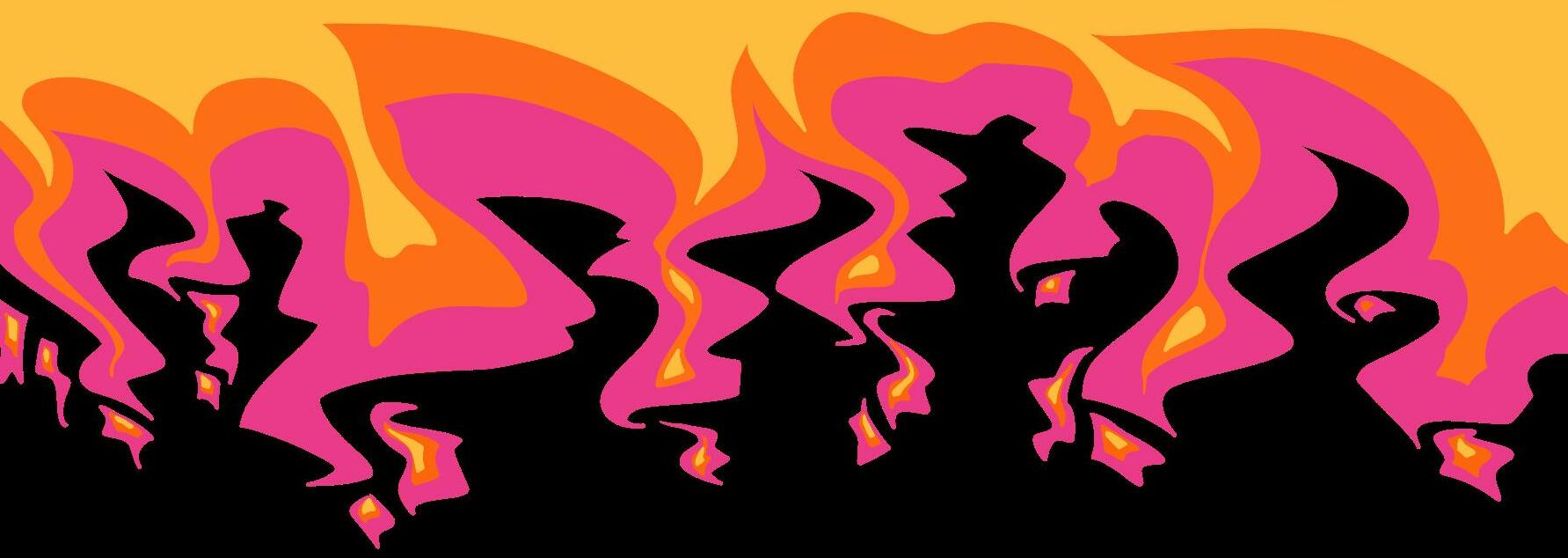

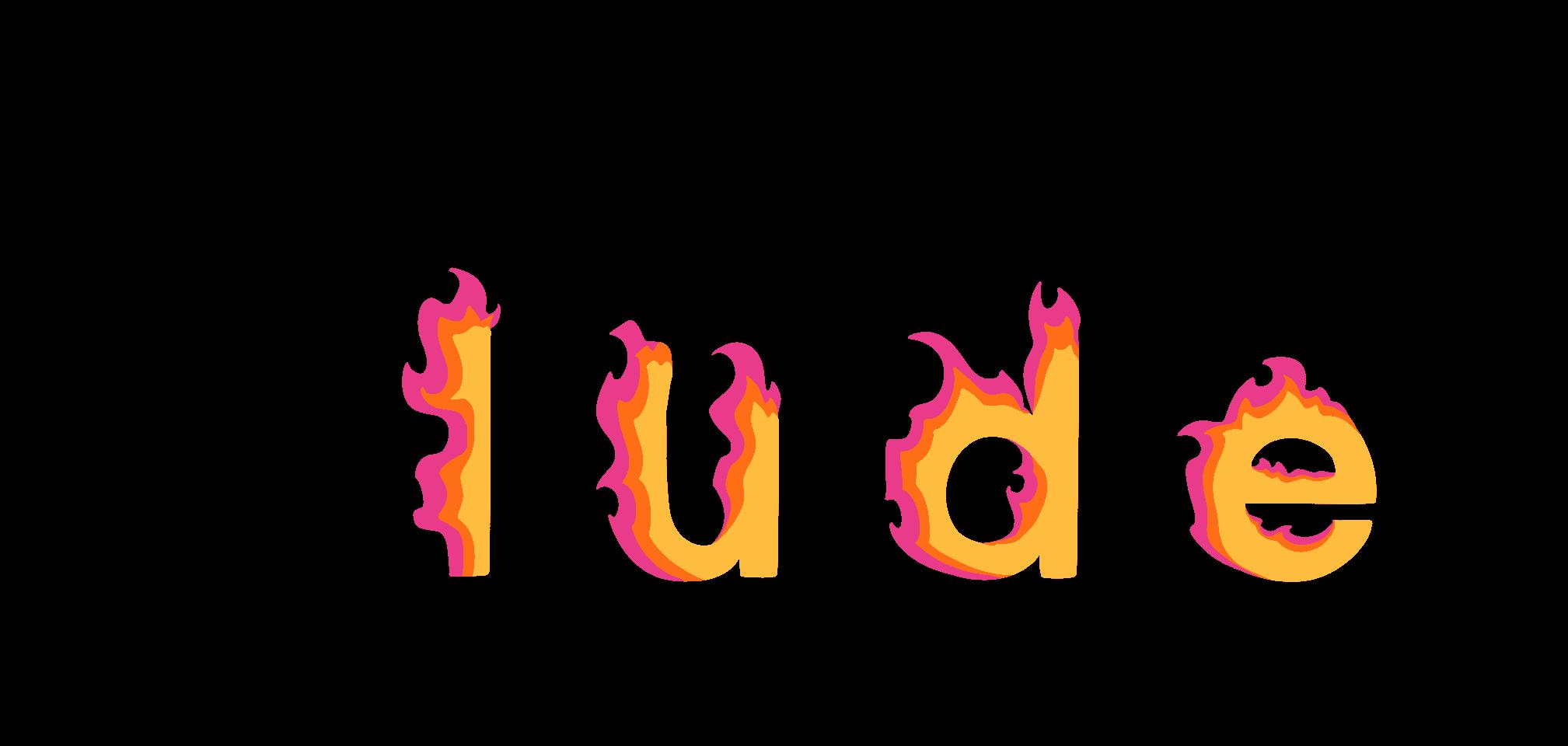
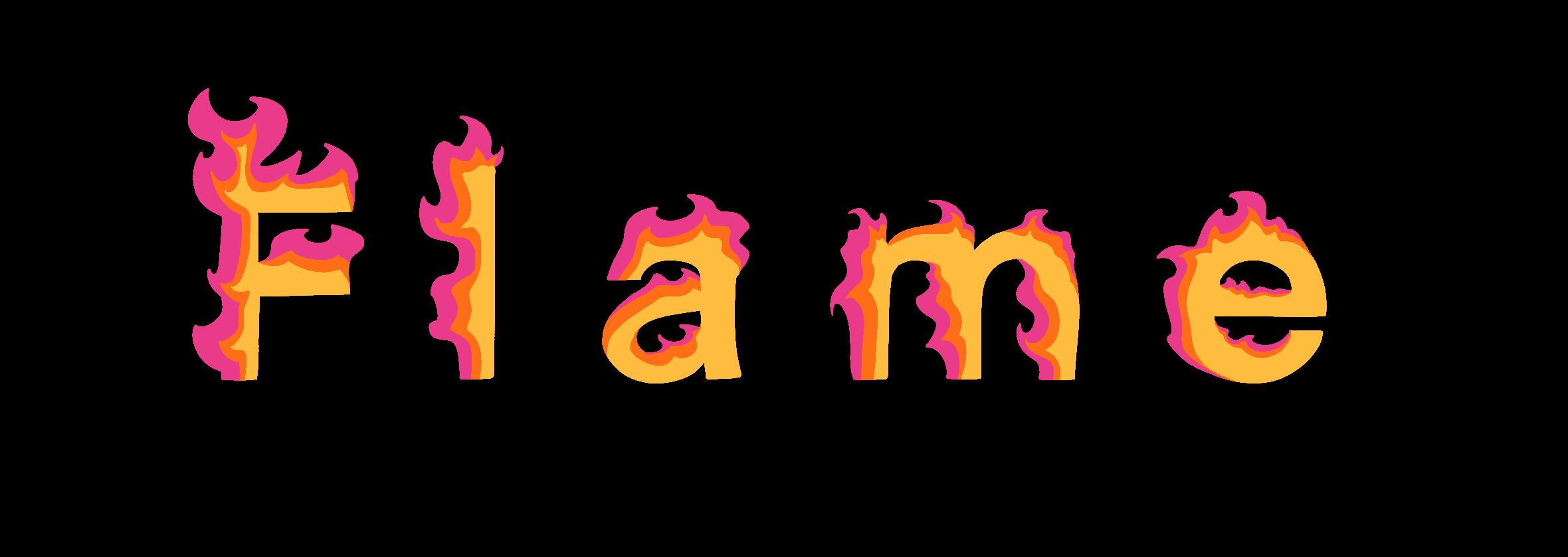
 by Jill Muszynski
by Jill Muszynski
i have had a fascination with fire for far too long. it started when i made bracelets as a kid (to sell at my school’s yearly market) and i had to use a lighter to seal the ends. it was all downhill from there.
my friends know i’m obsessed with it. i’m not even a fire sign– i’m a virgo. i have a leo jupiter, i guess? but the point is, i love her. i love how she represents passion and emotion but can also burn– metaphorically or literally. she cooks food for us and razes forests. what’s not to love!
i sing songs for the sun, now, hoping and praying they burn like he used to. i wonder how long it’ll be until we cross paths once more, or, better yet, the sun is snuffed out and i find out he died a month ago.
i sing songs for the sun, now, hoping and praying it’ll respond one day. i don’t think it will, seeing as it is the sun, inanimate, a ball of fire forgotten in space by time. well, not forgotten. taken for granted.
i sing songs for the sun, now, telling it so sweetly how i believe it should come down to earth and set it all aflame, again. start us fresh.
(and why you should consider burning down a building, too) or:

they pass by the other and catch that whiff of smoke, or a glimpse of the soot in the fingernails or maybe it’s the spark in the eye so familiar to a mirror
and they may stop or stare or smile or offer a look of pity, a hand on the shoulder (strange to strangers, but they’re far, far from that—) and a look in the eye
they ask a question knowing the answer and they’ll never respond, not outside of riddles, and the ash will burn again as they turn away, click their lighters
the mutual understanding shared by arsonists manifests not during the flames, but after a recognition— the ignition— they’ve found their match
Add some protein!
(Pretend it’s vegan protein if you’re vegan)
1. bacon
2. sausage
3. egg
4. taylor ham* *you can call it pork roll if you’re a terrible person.
How do you cook that egg?
(If you marked egg as the protein earlier, you’re adding a second egg)
1. soft boiled and sliced
2. scrambled 3. poached 4. fried
Add some cheese! (pretend it’s vegan cheese if you’re vegan)
1. american 2. cheddar 3. feta
4. pepper jack
Pick your fixin’s!
1. tomato
2. avocado 3. arugula 4. red onion
Pick some more fixin’s!
1. extra cheese 2. a second protein 3. salt and pepper 4. hot sauce
How are you holding that sammie?
1. plate
2. paper plate with cartoon characters
3. tin foil
4. eat it over the sink
the methods:
Mostly 1’s: Staging an accident looks like they left the oven on for a little too long. whoopsie. You tend to fade into the background, but that doesn’t stop you from shining. You’re probably not all that into people, but when you have close friends, you keep them close. (You keep your enemies closer.) Be kind to yourself– even if no one knows it, staging a believable accident is a lot of hard work. Take some “me time” and drink some water.
Mostly 2’s: Gasoline and a match a classic. nobody’s going to doubt your arson skillz. You know how to get things done, and you’re not taking no for an answer. You’re probably the smartest person in your friend group, but that doesn’t stop you from googling how long you should be boiling an egg every single time. And so what if you’re a little hot-headed? That just means more gasoline to go around.
Mostly 3’s: Some sort of electronically-activated incendiary for the efficient arsonist– you can slap these down and watch from afar. You’ve had enough. Just, in general– enough. Whatever joy you used to have is gone, squeezed out of you by an Ivy League education and a severe lack of sun. You’re often seen with your caffeinated beverage of choice and a bottle of ibuprofen. But: beyond that burnt out exterior lies a heart of gold. Just, you know, maybe let other people see it every once in a while.
Mostly 4’s: A flamethrower nobody’s gonna ask “where’d you get that?”! you have a flamethrower, damn it! (but where’d you get that?) You know how to have a good time, and you look good while doing it. You’ll dance on the graves of your enemies with a smile, then stop at your bestie’s place on the way home. You have a decent relationship with your parents, and you’re going to therapy. If that last part isn’t true, you should seriously consider it. No one who’d bring a flamethrower to their enemy’s house is okay.

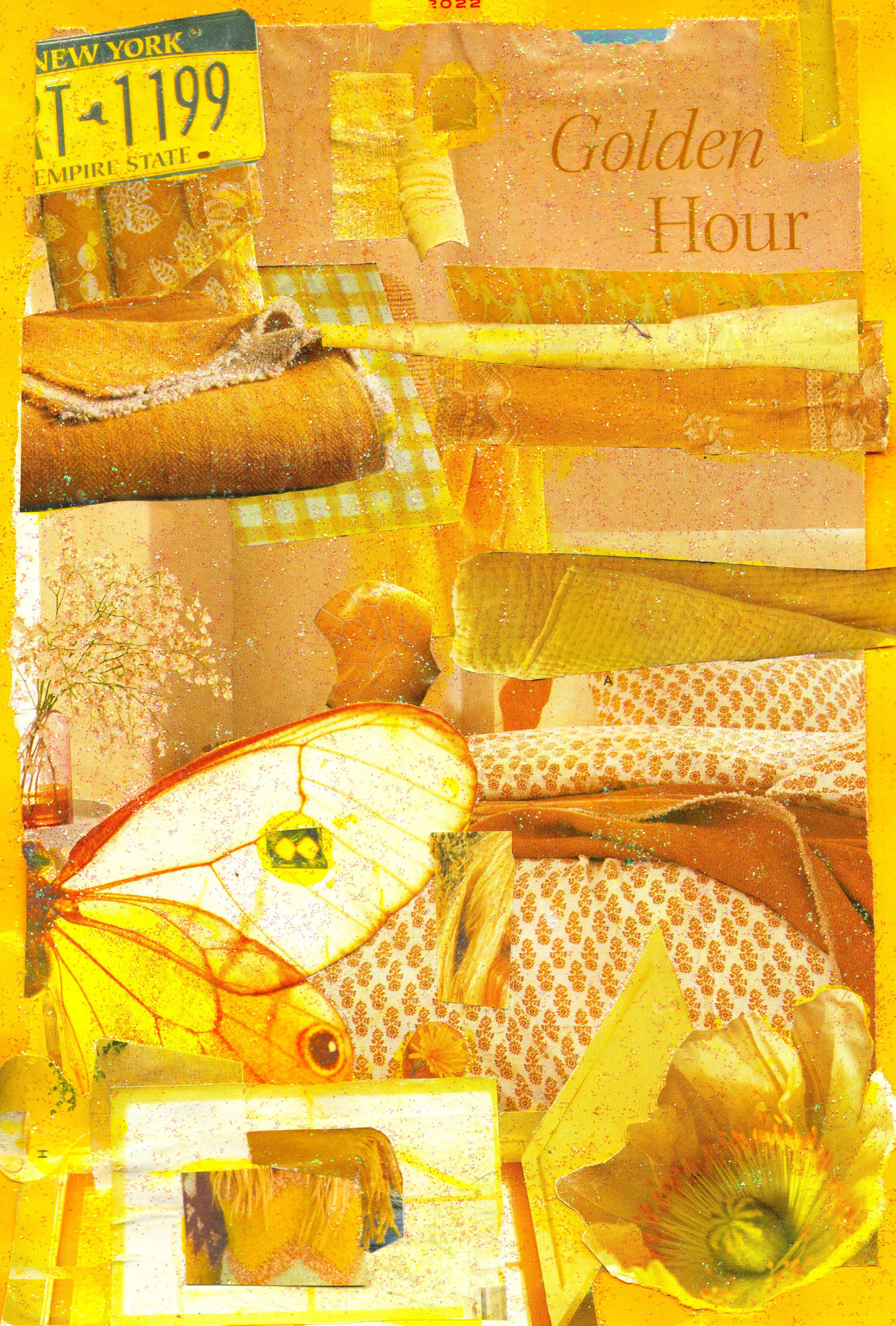 Yvette (Yv) Reyes
Yvette (Yv) Reyes
They called him a fire-bender . . . but fire-bender implies a struggle of wills, a redirection of a path being taken, and that wasn’t what he was doing.
No, not really. For what she was doing was observing the embers and how they were huddled under the shelter of charred-over logs, glowing faintly but persistently in their refuge.
He was hearing the crackle and pop of the flames and, perhaps more importantly, the growing loudness of the silence between each snapping spark.
She was feeling more and more of the cool night breeze whisper over her skin and through the folds of her clothes, feeling more of the memory of the warmth of the flames than the bright blistering energy that they had been emanating as they leaped about in their concave theater, performing gaily for the giant faces circling above.
She could smell more of the damp grass and suggestion of rain and taste more of the hint of thunder way out yonder than the thick swirls of woodsmoke that all too readily filled his nose and burnt his tongue,
scratching his throat as it clawed its way down to his lungs.
No, he was a fire-nurturer. For, seeing the fervor and frenzy of the flames falling fading dying, he fed them –dry kindling, dead leaves fallen from the branches of her maple. She’d seen them greedily devour and grow from such fodder at fire pits past. Hearing them gasping for breath, he fed them air, filling their tiny lungs with the oxygen they needed until they developed stronger, larger, louder bellows of their own. Feeling the flickering heat from their dance on his skin, she danced with them, celebrating them, celebrating with them, giving joy and gratitude to their tenacity and growth.
Because he is a person who listens to a bonfire’s revelry, a person who sways with their motions, a person who cries out, “Hear that?” to bring the attention of her companions, her fellow large-folk human-folk, to the whispering song of a gentle flame. But he is also a person who, silently, at no urging save his own, offers the fire a bite to eat and a moment to breathe.
Because you know. (Or maybe you don’t.) Even fires need to recover.

Daedalus had only one admirer, one fan among those of Crete. And that was his son, Icarus.
The love and faith the boy had for his father could only be called foolish. Though imprisoned together by King Minos for Daedalus’ betrayal, Icarus struggled to feel either disappointment or disdain for the worn-out genius. Impressionable as he was pure, Daedalus’ desperation to escape infected Icarus like a plague, filling the boy with a similar yearning for what lay beyond the walls of the labyrinth. Curiosity enveloped him, consumed him, became him; everything Icarus did, said, or felt, stemmed from an emotion that was not his own. The way his eyes voraciously ate everything in sight concerned Daedalus. His questions were asked with an edge to his voice, one that echoed in his father’s ears without fail every night. Daedalus always expected an “or else” to follow, but the way it never came could only be described as disquieting. The only feeling to match Icarus’ curiosity was his devotion to the inventor. At times, the two even seemed intrinsically tied. None could tell if the boy loved that which was unexperienced because he loved his father, or if he loved his father because he saw all he had yet to feel within him. To Icarus, the distinction made little difference. He simply did not feel enough and ached to feel too much.
His gaze permanently cast before him, Icarus looked to the future as if every wonder imaginable lay there. And in a sense, they did. The labyrinth was exhausted, every crevasse explored and detail internalized. His eyes saw through, within, and around everything. Now, his focus was trained on things beyond even his own perception. Daedalus, too, grew increasingly
desperate for freedom. Whether it was the former or the latter that spurred on the other was inconsequential; the result was the same: Daedalus pondered, then designed, then created. The genius forged wings of feather and wax, his new inventions as ambitious as they were brilliant. Meanwhile, excitement assaulted Icarus, threatening to make him burn up from within. It was all he could do to appear restrained as Daedalus cautioned him against soaring too high and gliding too low. His father explained how the sea spray would weigh down his wings, dragging him to the ocean’s depths; Icarus imagined diving willingly, the taste of the salt already on his lips. Daedalus also warned him of the sun’s heat; how it would be too much for his wings and flesh alike, how it would cause him to burn and crash. Icarus shivered in response. Hearing that, every temperature he had felt till now seemed freezing compared to the scalding light of the sun. Nothing Daedalus said could have deterred Icarus, his curiosity consuming him like never before. He would experience all these wonderful phenomena his father spoke of. No matter what. Father and son took to the sky together, baby birds learning to fly without the guide of a mother. Freedom, tantalizingly within reach, stretched its hands out to both. Daedalus walked. Icarus ran.
And though Icarus himself fell, his smile obstinately refused to follow suit. His passion and love for the new and unexplored made sure of that. The young boy’s first and last moments of freedom were spent intoxicated by the unfathomable. Even as his body hit the water. Even as he felt the rush of cold and the pain of his bones snapping.
Even as he sank, drowning, unable to see neither his father whom he cherished nor the sun that he had longed for so long to touch… he smiled.
Because to Icarus, it was still better than feeling nothing at all.
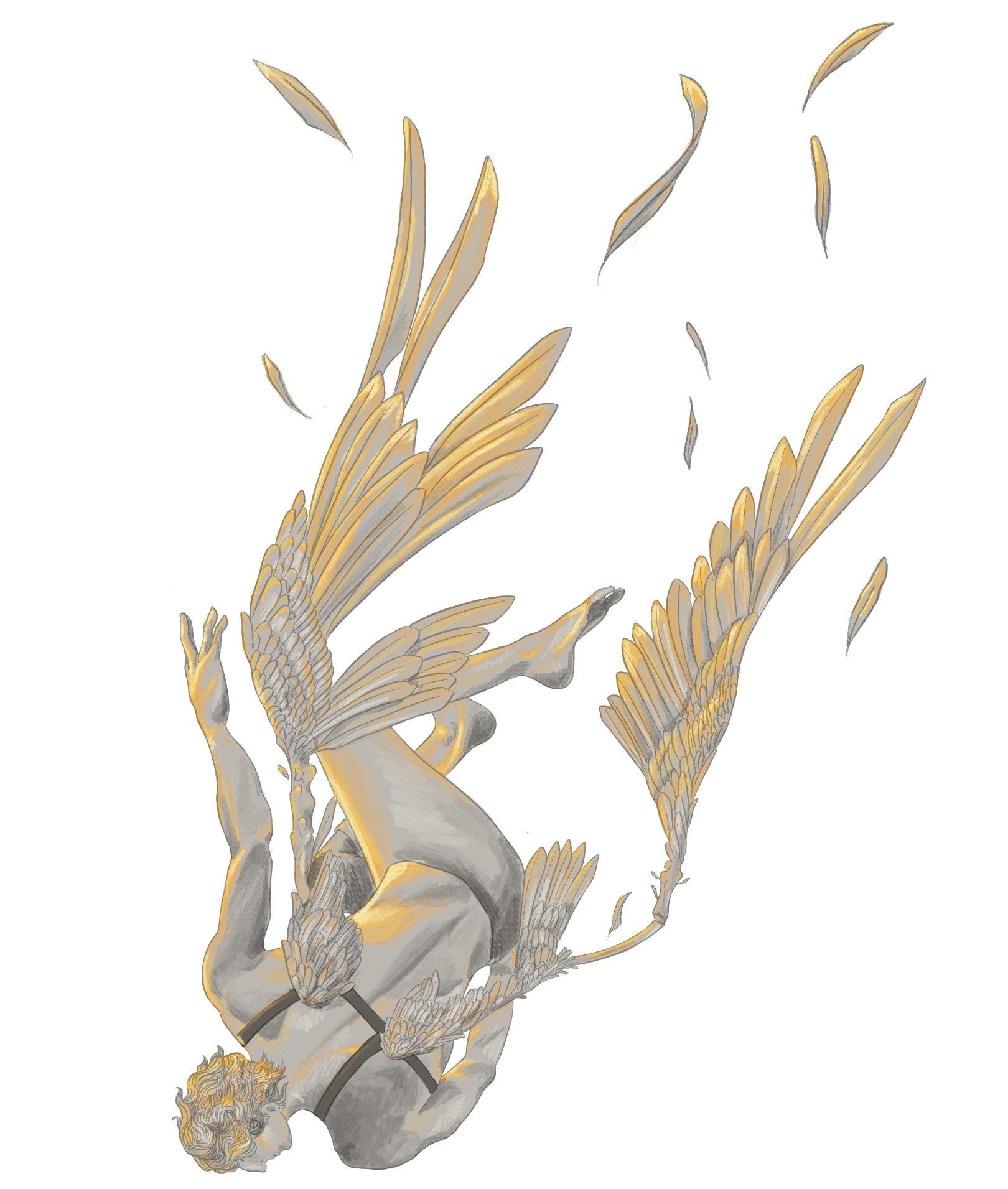





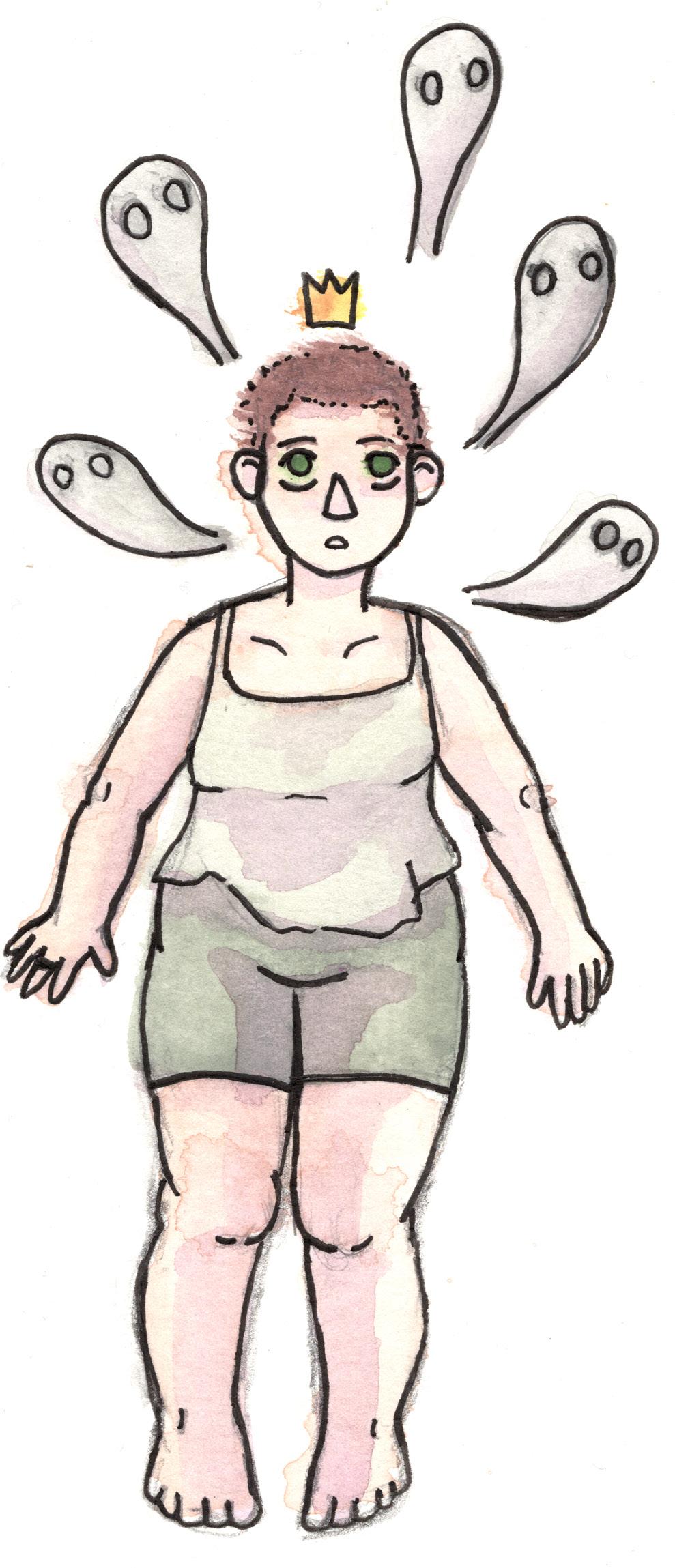 art and poem by Havi Rojer
art and poem by Havi Rojer
watch the feathers of my hair float to earth i molt exorcize the ghosts of fingertips on my scalp
the wind baptizes skin makes each cell holy prickles of gooseflesh a new moon bald and brave and mine each soft follicle a just-birthed star
Today, the last fish of an unnamed species, opalescent, fan-finned, choking on plastic, died.
Everyday dying in silence–the lot of most fish in ebullient, sun-heated seas.
And yet, they glow, scales glittering to the bottom, reflecting that hard, killing light.
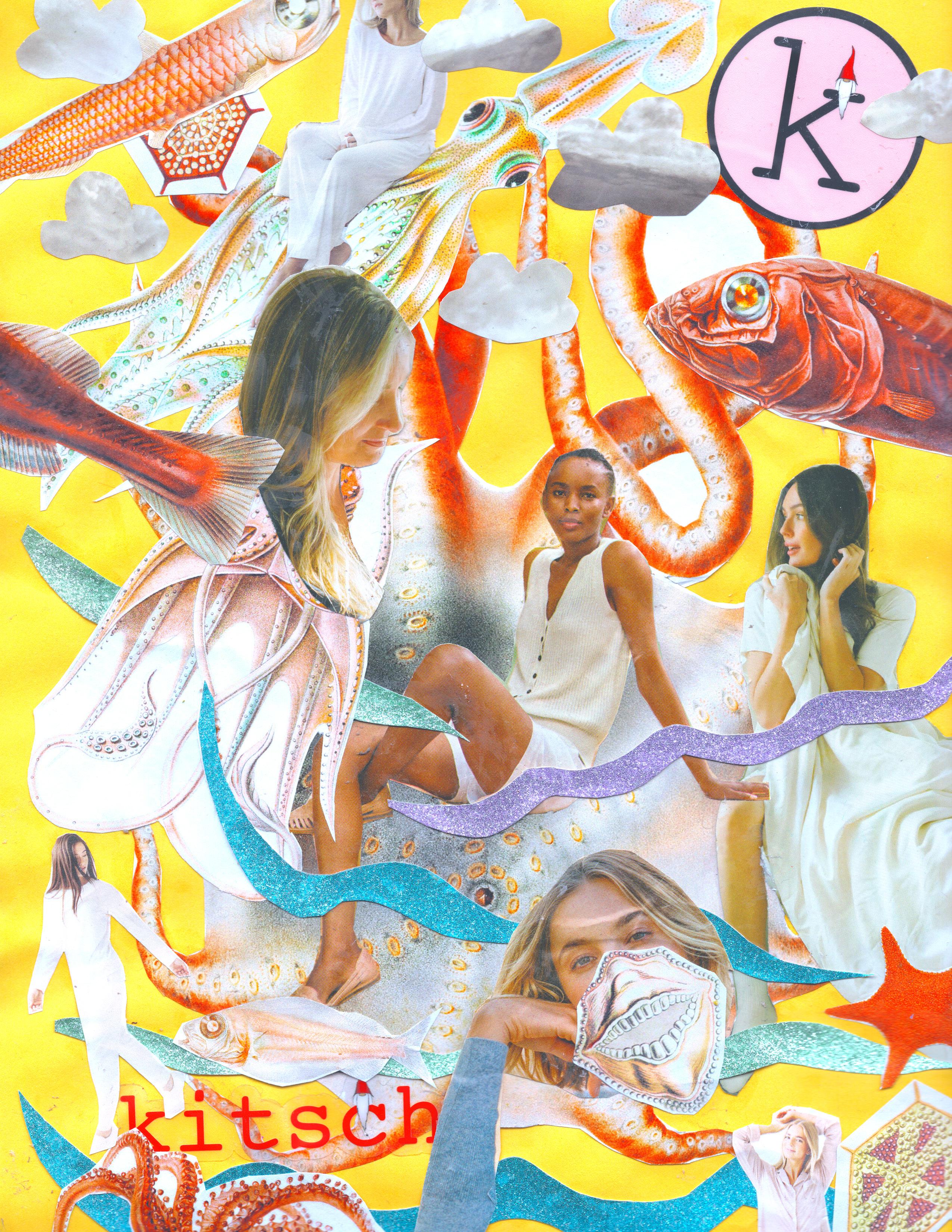 poem and art by Vee Cipperman
by Brandon J. Chandler
poem and art by Vee Cipperman
by Brandon J. Chandler
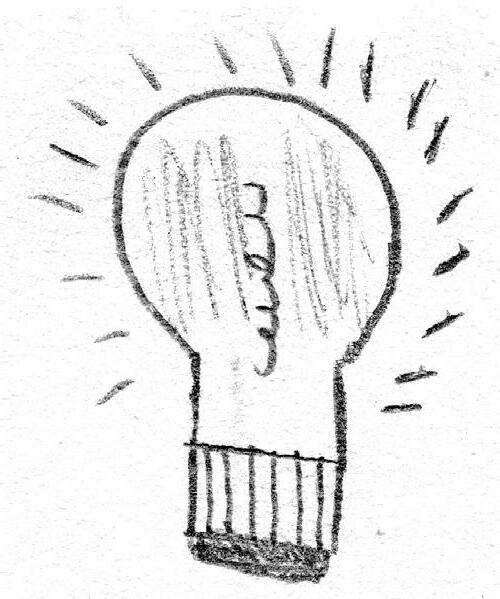
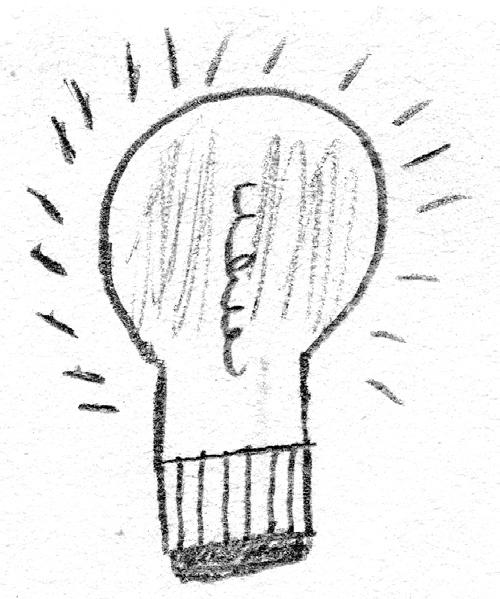
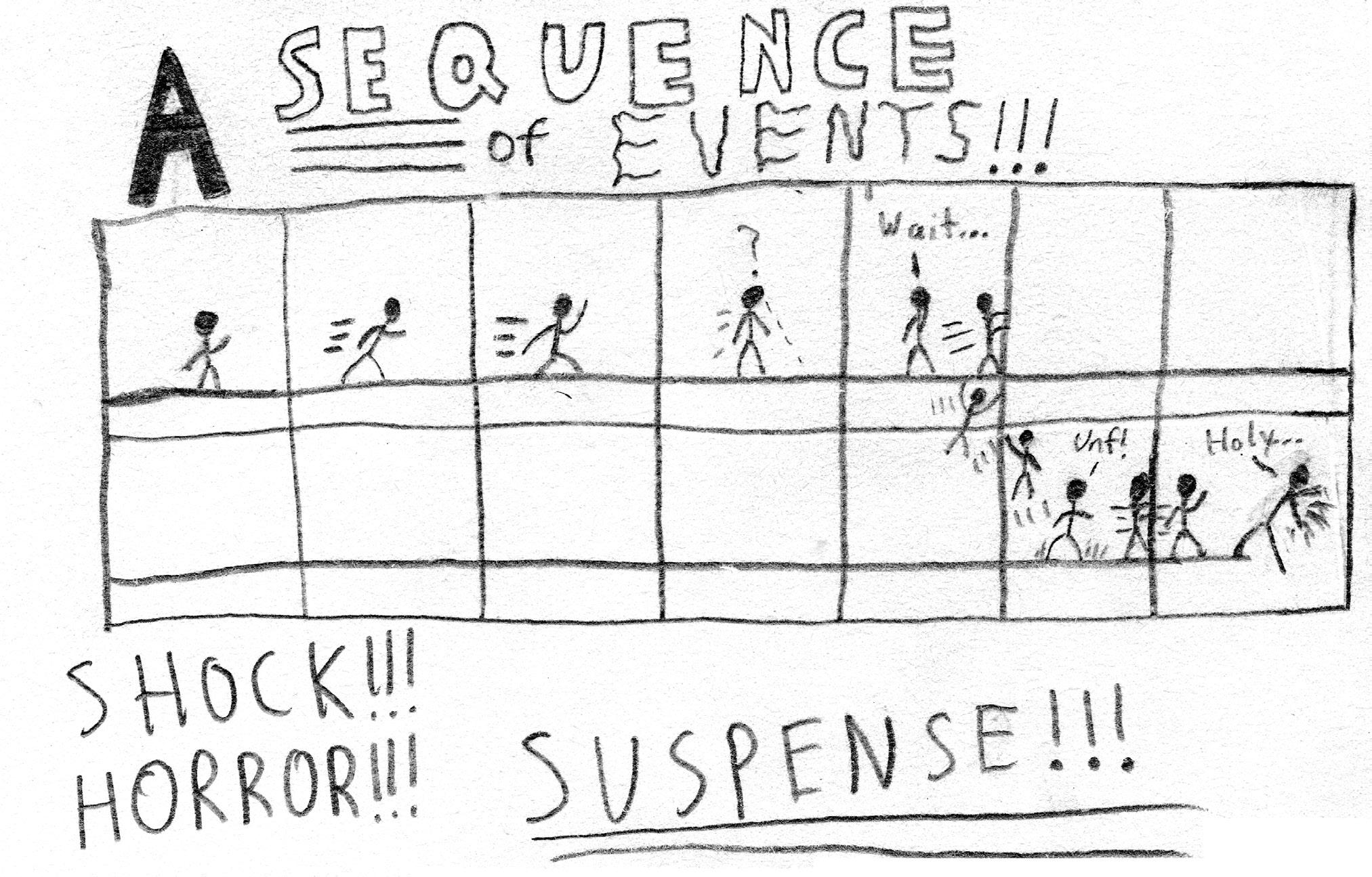
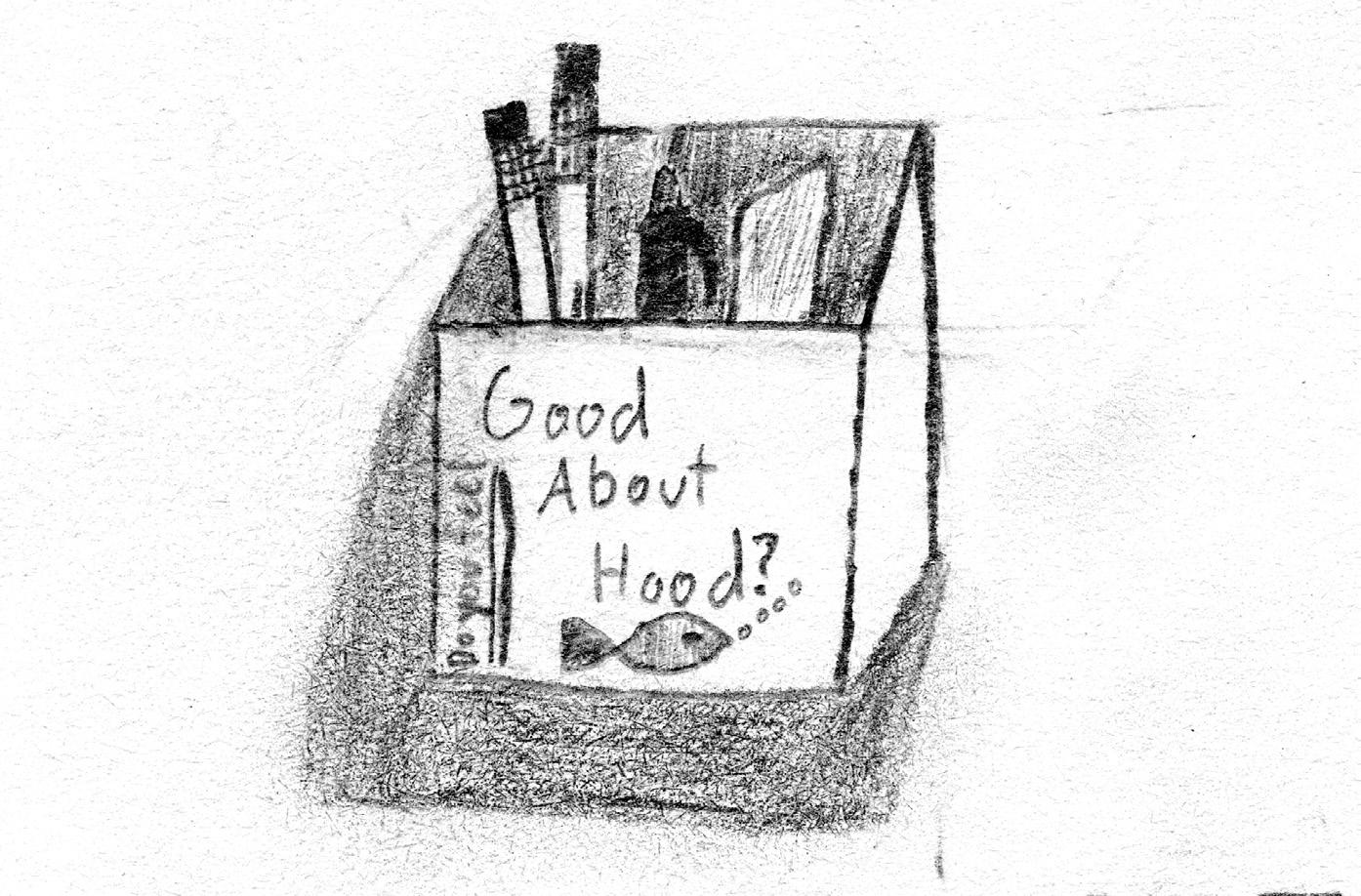

 by Bex Pendrak
by Bex Pendrak
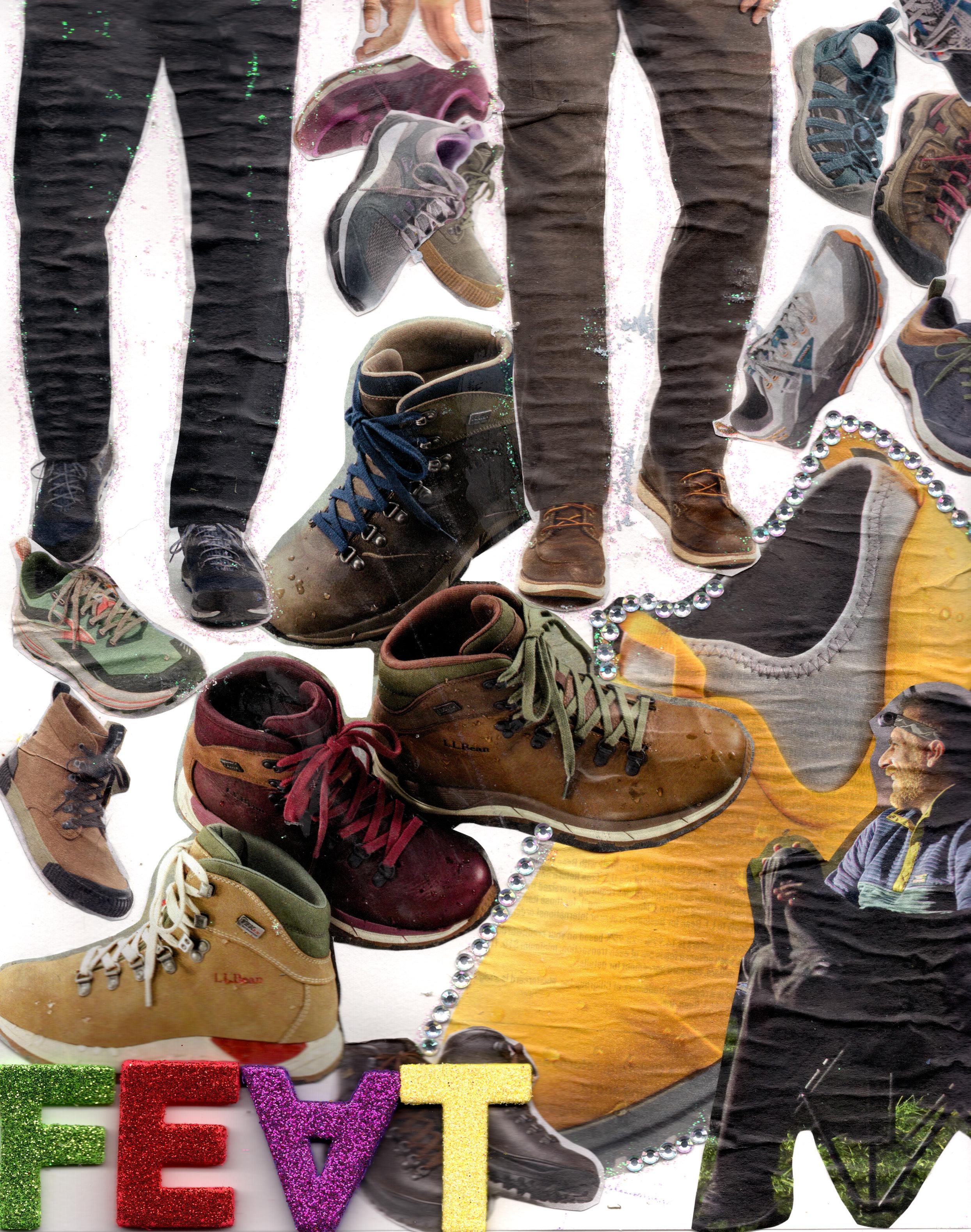
In fourth grade, I met this girl named Hanna. She had no friends, which should have been my first red flag, and she was obsessed with the Warrior Cats series, which should have been my second. Consequently, I was sucked into the world of Warrior Cats. We “hunted” soccer and basketballs, calling them voles and mice, respectively. We had a hierarchy like the books, which drove me absolutely insane, because Hanna was always the leader, even though I had surpassed her in the books. I was stuck playing second fiddle.
Hanna and I ended up sucking a few of our other friends into the series, and we all became those weird girls on the playground that would meow and hiss at other kids. The worst part is, I knew we were the weird kids. I knew, but I did not care. Why should I? Playing Warrior Cats was awesome. To this day, I look back fondly on those books and the games we played based on them. Even if I was a little weird, I was happy. I was happy, at least, for a little while.
One day, I was digging in the bark to create a den for us warrior cats to shelter the coming winter months, (naturally this was in Idaho November, so the bark had started to freeze together), and I felt my frozen fingers close around something dense. My hands were starting to crack from the cold, and so I wiggled my fingers beneath the layer of bark and fully grabbed onto the solid thing hidden below. I tugged once, hard to dislodge the frost and bark, and pulled out a full, dead, frozen squirrel.
We should have freaked out, we probably were catching any number of diseases, but instead, we were ecstatic. We had finally caught something that the characters ate in the book, this was canon. We set the poor squirrel down on the bark and just sat and looked at it. Naturally, since I had touched it first, it was technically my kill. I felt so cool.
Hanna, obviously, tried to take credit for the squirrel, saying she had told me where to dig, so technically she had been the one to find it. I finally stood up to her and said that since I was the only one of us who had been able to “catch” an actual animal, I should be the leader.
The rest of our friends agreed with me, and I moved into the leader position, with Hanna as my begrudging second-in-command. I was on top of the world, until another kid saw us huddled around a dead squirrel.
Before we knew it, the playground duty strolled over and asked if we were playing with a squirrel. We had no choice but to show her the bounty I had procured. A bounty which she promptly picked up with a paper towel and walked over to the dumpster.
At the moment the duty picked up our squirrel, Hanna hissed at her, baring her teeth and letting her spit fly everywhere. The look the duty gave her, totally understandably, was abhorrent. That was the exact moment I became embarrassed of playing Warrior Cats.
The chaotic events that both led to me playing Warrior Cats, and the even more chaotic ending of my fervent obsession are things I will forever hold close to my heart. I never, in a million years, will ever regret playing Warrior Cats. I do, however, regret letting that playground duty’s (justified) judgment of Hanna dissuade me from my favorite game.
I wish I had let myself not care. Warrior Cats was something I got excited about, something me and my friends shared and treasured.
Hanna and I stopped being friends after she tried to strongarm our other friend into reading the Book of Mormon. Me and a few other friends began reading other series together, but would never again delve so deeply into a fictional world.
The simplicity of the chaos of our youth is something a lot of us have taken for granted for so long. I wish I could go back to those days, where the only thing that mattered was how frustrated I was to be Hanna’s second-in-command.
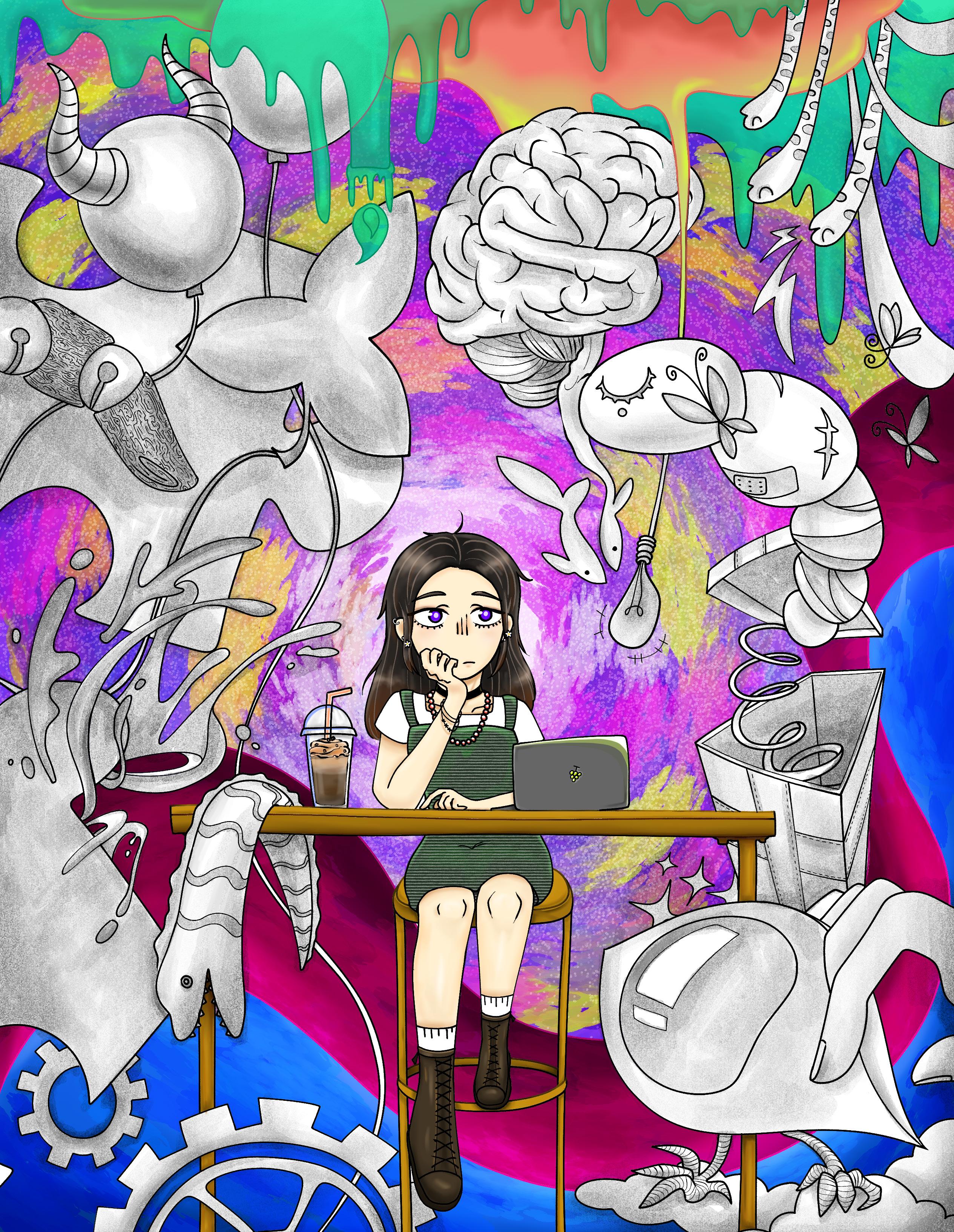
art and article by Lillian H.G.
If you’re anything like me, you may have found yourself obsessed with weird youtube videos. They have stuck with me like shitty chewing gum sticks to your shoe and now live in my head rent-free, and I mean this in the best way possible.
If you’re curious about them, I have collected an assortment of my favorites here.
Brian David Gilbert - We’ll start with a classic. You may know this dude from Polygon’s Unraveled series and the source of such iconic quotes as “Either Sonic is a god, or could kill God, and I do not care if there is a difference!” and “God has cursed me for my hubris, and my work is never finished.” My favorite Unraveled videos were about The Sims and the Halo novels.
I was a little disappointed to learn that he left Polygon, but now I am no longer disappointed, as his new videos are even weirder and just as funny. If you want to be scared, you might want to look at “Teaching Jake About the Camcorder” or “Earn 20K a Week by Being Your Own Boss.” On the more goofy side, there’s some catchy songs like “We Like Watching Birds” and “Saturday Shorts.” The interesting thing about his channel is you never know if you’ll be getting comedy, horror, or both, so usually, I look at the comments before deciding whether to watch a video at night.
Meow Wolf - It feels weird recommending these because they are technically ads. I promise I’m not sponsored. Meow Wolf is an art company with several large art installations in Las Vegas, Santa Fe, and Denver. My parents took me to Omegamart in Las Vegas last year,
and I have to admit, I was a little skeptical at first, but then I became totally obsessed with it. Omegamart is a surreal supermarket with a variety of strange products. You might be thinking, “but Lillian, I don’t want to go to Las Vegas just to see a weird supermarket.” Well, good news, there are also great Omegamart videos on Youtube, particularly the “employee training” series, which tells future employees how best to deal with difficult customers and food-related accidents. The Meow Wolf videos that have taken permanent residence in my brain are the Difficult Spills song and the original Convergence Station trailer. Sadly, the Convergence Station video is now unlisted on youtube, but it’s still on Instagram.
A few years ago, I heard that some people at the Ithaca Generator were thinking of creating an installation with a similar concept to Meow Wolf. If this ever happens, I will absolutely volunteer to make weird advertisements for it.
itemLabel - A few months ago, I got a YouTube ad that looked and felt exactly like a viral Tumblr meme. “Surely this can’t be an actual ad,” I thought, “I guess a random video just started playing?” It was an actual ad. itemLabel sells a bunch of bizarre plushies with even more bizarre videos. The video I was shown is called “Peepy’s Theme” and is a song about the cow plushie, whose cute appearance may distract you from the fact that it can and will commit crimes.
Local58 - A popular analog horror channel, this is a series of fictional TV show announcements that take an interesting turn. If you’re a fan of cryptic and ominous aesthetics, you have to watch this. One of
my favorites is Weather Service, which gives conflicting perspectives on whether looking at the moon is safe and a good idea. Another iconic video is Real Sleep, which presents a great assortment of creepy faces.
Blaseball Roundup - if you want something more funny than scary, but that still has a good volume of surreal-ness, the Blaseball Roundup is the video series for you. It follows an inuniverse news anchor who does his best to summarise the events of the video game Blaseball. The anchor of the broadcast is basically a fusion of Cecil Palmer and Brian David Gilbert. Unfortunately, I have tried and failed to understand how to play Blaseball, but the videos are still fun even with very little knowledge of the game.
Welcome to Night Vale - Night Vale isn’t technically a video; it’s a podcast, but it felt wrong to leave it out.
In conclusion, I will never be convinced that Night Vale, Blaseball, and Meow Wolf don’t all exist in the same universe. Maybe all of these videos do. Perhaps one day, I’ll make my own attempt at a weird youtube video. I certainly have a lot to live up to.
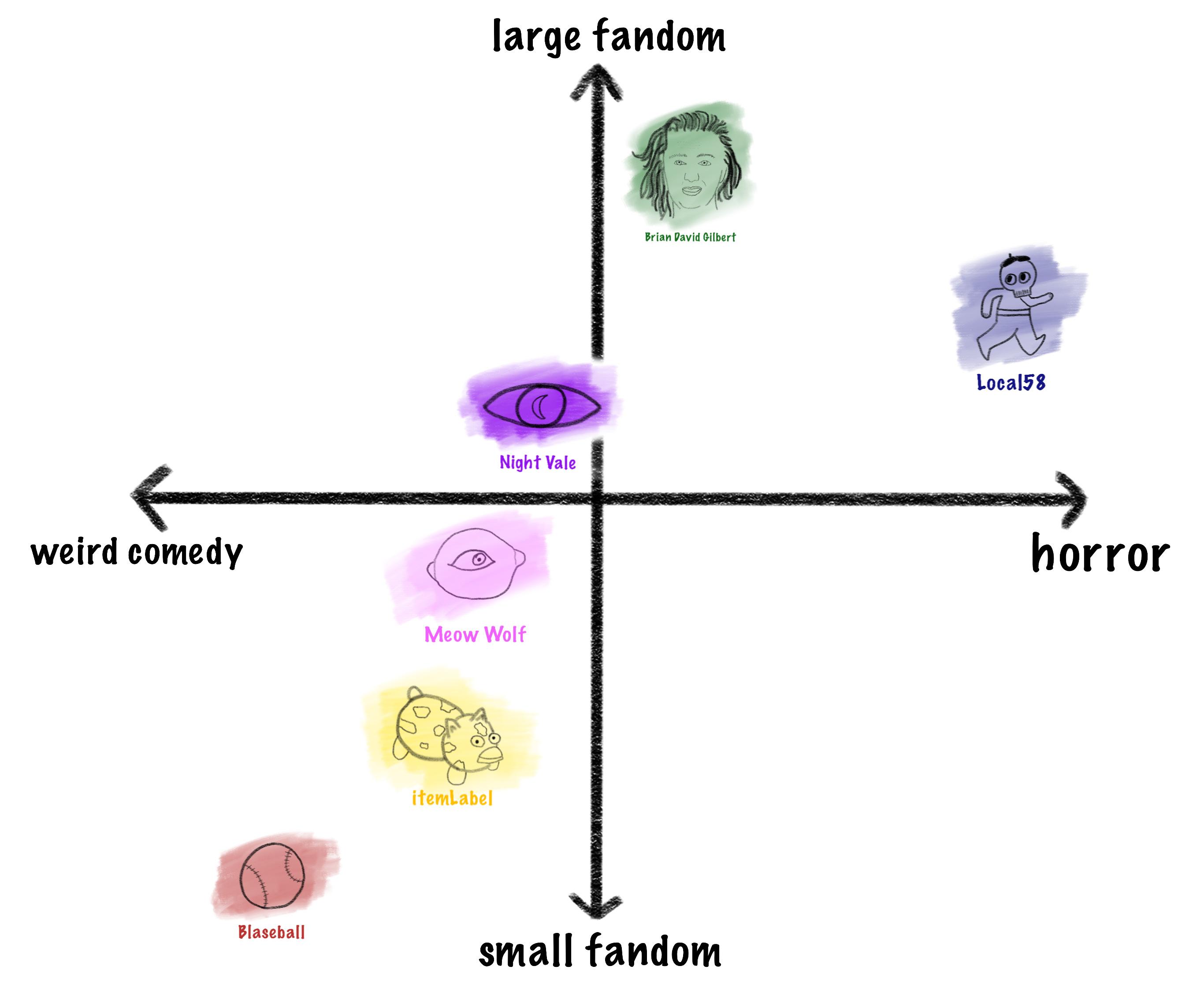
What is Night Vale? According to Cecil Palmer, the host of Night Vale Public Radio (NVPR), it is “[a] friendly desert community, where the sun is hot, the moon is beautiful, and mysterious lights pass overhead while we all pretend to sleep” (Episode 1). More literally, Night Vale is a fictional town created by Joseph Fink and Jeffery Cranor, shared with millions of listeners through the sonorous speaking voice of actor Cecil Baldwin in the podcast series Welcome to Night Vale.
Welcome to Night Vale has a very complicated relationship with fear. Fear is woven into the DNA of both the show and the town of Night Vale, but at the same time, Welcome to Night Vale doesn’t feel like a horror movie. The residents of Night Vale fear things that most of us do not, such as mountains and wheat-and-wheat-byproducts. They also react with little to no fear when faced with concepts such as death or various man-eating organisms, which are surprisingly common in their little town. Fear in Welcome to Night
Welcome to Night Vale, which began in 2012 and is, as of May 2022, still ongoing, was, from its inception, something very unique and hard to define. It is a radio drama consisting of fictional broadcasts from a fictional town, but also happens to exist just to the left of reality. From the very first line of the very first episode (quoted above), listeners could tell that they were being welcomed to a particular kind of world where horror, humor, and heart intersect.
Vale is often surreal or simply ridiculous, and it is precisely because the fears of Night Valeans are not our own fears that Welcome to Night Vale has become, for so many, a comfort show and a safe haven.
To begin with, it is important to acknowledge the elements of horror in Welcome to Night Vale that invoke, or are intended to invoke, fear in the listener who is familiar with tahe rules of our world. The simplest and most obvious of these is death. Death is extremely commonplace in Night
It is precisely because the fears of Night Valeans are not our own fears that Welcome to Night Vale has become, for so many, a comfort show and a safe haven.
Vale. The first explicit death in the podcast occured in episode 2, The Glow Cloud. While describing a giant cloud moving into Night Vale that “glows in a variety of colors” and emits “a low whistling,” Cecil offhandedly mentions that “[o]ne death has already been attributed to the glow cloud” before adding that “it’s probably nothing. If we had to shut down the town for every mysterious event that at least one death could be attributed to, we’d never have time to do anything, right?” (Episode 2). Clearly, such a blasé response to death is uncharacteristic of most people, indicating early on to the listener that the fears of Night Valeans are not the same as our own.
A running, darkly humorous joke throughout the show is that interns of the Night Vale Public Radio Station are regularly killed, transformed into nonhuman forms, or otherwise put through unimaginable terrors. According to the Welcome to Night Vale Wiki, a fan-run wikipedia page dedicated to the show, there have been 16 interns lost (killed, missing, transformed, etc.) as of episode 49. Cecil nearly always announces these deaths suddenly, with little emotionality, towards the end of a radio segment. As listeners soon learn, NVPR interns have one of the highest mortality rates of any Night Vale citizens, and Cecil appears to have simply become numb to such a commonplace tragedy.
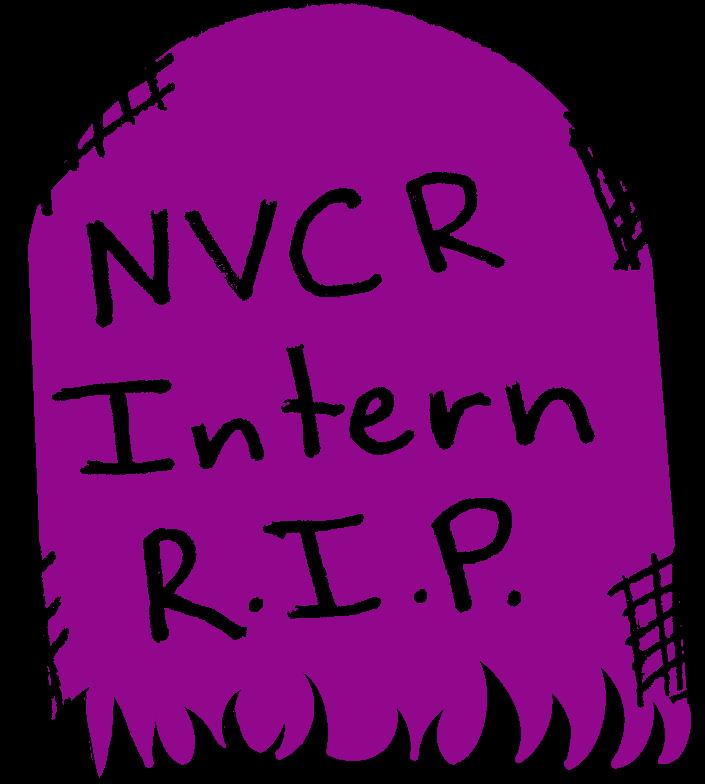
Death is, perhaps, the least interesting of the many horrors of Night Vale, however. Night Valeans contend regularly with the paranormal and unexplainable. They react predictably to these elements with little to no surprise and concern, and, in many cases, express open approval or affection for the undeniably monstrous. One Night Vale phenomenon that is accepted by the town’s residents are the hooded figures which include “... all of our favorite ominous hooded figures: the one that lurks under the slide in the Night Vale Elementary playground, the ones that meet regularly in the dog park, and the one that will occasionally openly steal babies and for reasons no one can understand, we all stand by and let him do it” (Episode 3). Most parents in our world would, hopefully, be horrified by the idea of mysterious figures stealing their infants, but this fear is obviously not shared by Night Valeans. The vagueness of the hooded figures is also intended to induce fear, or at least apprehension, in the listener. That which we don’t understand is always scarier than that which we do. Still, in Night Vale, the occult is commonplace.
Even things that were once seen as strange by Night Vale citizens often become normalized later in the show. The Glow Cloud (all hail) was announced in episode 8 to be a new member of the Night Vale School Board, effectively transforming the supernatural into the mundane. For the listener, who would, in other circumstances, view the oddities of Night Vale as unusual at best and horrifying at worst, Cecil’s calm acceptance of the terrors of Night Vale cause them to become almost normal, even to the listeners. This paradigm of normality and strangeness, of the terrifying becoming accepted, is the essence of Welcome to Night Vale. Night Vale, through the narration and sonorous voice of Cecil, makes listeners feel safe in the midst of the creepy. However, the reverse holds true as well.
Night Vale not only makes horror banal, but takes the everyday and makes it fearsome. For example, Street Cleaning Day is a seemingly innocuous element of Night Vale which boasts an episode entirely dedicated to its occurrence.
The listener assumes such an event is the same as in our own world: perhaps a bit noisy, but ultimately harmless. No such luck in the town of Night Vale. Cecil, normally so monotone, introduces early in episode 15 the eponymous Street Cleaning Day in a near panic: “Today is Street Cleaning Day. Please remain calm. Street Cleaners will be upon us quite soon. We have little time to prepare. Please remain calm… RUN! RUN! FORGET YOUR CHILDREN AND LEAVE BEHIND THE WEAK! RUN! … Street Cleaners focus on heat and movement, and so the best strategy is to be dead already…” (Episode 15). Clearly, the horror of Street Cleaning Day is beyond comprehension. Night Vale twists what we assume to be normal and makes it something to be feared.
Similar to Street Cleaning Day is the Night Vale version of Valentine’s Day. Not just a Hallmark holiday in this desert town, February 14th in Night Vale involves “... bodies strewn upon the ground, covered in glitter and paper cupids. Entire buildings collapsed, leaving only rubble and chalky candy hearts” (Episode 17). Even worse, there is “… the sad fate of those chosen to be another person’s Valentine. Little can be said to help the families of those unfortunates, except that the process is, while exactly as ghastly and excruciating as feared, apparently not as horribly slow and drawn-out as it appears to outside observers” (Episode 17). This contrast between what listeners fear and what the citizens of Night Vale view as fearsome provides some distance between the listener and the elements of terror in the show. The very nature of this separation between listener and Night Valean is what allows Night Vale, which is categorized as a
horror podcast, to become a space of safety for so many people.
After all, the listeners of Night Vale have much to fear in their own life. Climate change, discrimination, the government, and much more all haunt the minds of the Millennials and Gen Z-ers who make up much of Welcome to Night Vale’s listener base. In the world of Night Vale, listeners can let go of their own fears and instead temporarily assume those of a Night Vale citizen. They can cathartically shudder at the descriptions of a rampaging librarian or grimace at the destruction of Street Cleaning Day while remaining safe in the deep-rooted knowledge that these things can’t actually hurt them. Simultaneously, they can relax into Cecil’s calm insistence that the hooded figures are a valued part of the community or give praise to the glow cloud, although both of these things would cause panic if they appeared in the real world.
Cecil, and by extension Welcome to Night Vale, therefore gives listeners the safe space they need to process their fears. The real world is scary. Night Vale incorporates that fear, legitimizes it, but also provides a space where listeners can escape the constant panic under the surface of everyday life. Few listeners need this kind of protection more than those who are already alienated from society by virtue of their ethnicity, sexuality, gender, disability, neurodivergence, or other eccentricities.
For these kinds of listeners, the world of Night Vale seems like a veritable utopia, regardless of the high mortality rates or paranormal occurrences commonplace in the town. All wierdos are welcomed to Night
Cecil, and
, gives listeners the safe space they need to process their fears.
Vale and their fears of rejection are not relevant in this town where queer, disabled, nonwhite, and eldritch characters are the norm.
It is important to note, in closing, that none of the aforementioned qualities of Welcome to Night Vale would be anywhere near as effective without the role of Cecil as narrator. Cranor and Fink do a fantastic job of allowing Cecil to become familiar to the listener, and he takes on the role of guide, friend, and neighbor throughout the series. Cecil shows listeners what should and shouldn’t be feared in Night Vale. He metaphorically holds their hands and encourages them to embrace the strangeness of the Shape In Grove Park or the possibility of death on the daily, and rouses them to run screaming from the horrors of Valentine’s Day.
Cecil and his endearing quirks are there to welcome listeners to Night Vale at the beginning of each episode, captain them through whatever strange events transpire throughout the next half-hour, and always, reliably, send them off with a gentle, “Good night, Night Vale. Good night.”
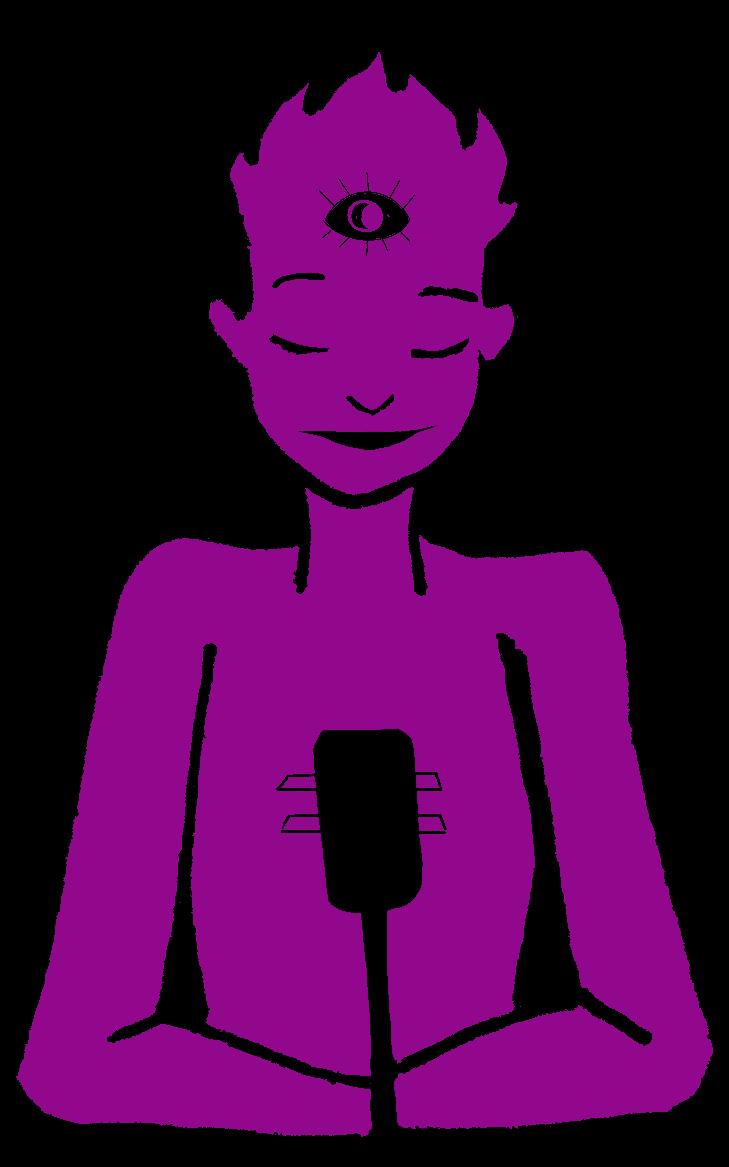
At some point I’m guessing you might have seen a meme with some variation of “And now, the weather” or “All hail the glow cloud” and been confused. Turns out they’re not AI-generated quotes; they’re from an audio drama that went viral pretty much by accident.
Welcome to Night Vale is a series of fictional radio broadcasts in a town where strange and often supernatural events happen every day, but everyone rolls with it. However, the narrator, Cecil Palmer, often neglects the news to talk about his crushes or complain about his brother-in-law.
Unfortunately, I was late to the fandom and I will never not be upset about that. Most widespread memes and classic posts about Night Vale were from 2013, but I didn’t start listening until 2018. Never before have I better understood the “Quit telling everyone I’m dead!!!” meme than when people say that Night Vale is something that happened in the past and isn’t relevant now.
Many people on the internet say this show hasn’t been interesting since 2014. Generally, it’s easier to be more critical of new content, especially when nostalgia is involved. Also, when you listen to a bad episode from 2016 you can move on to the next one right away, but if an episode is bad in 2022 you have to wait two weeks, so it’s more of a disappointment. However, although there are some seasons I don’t particularly enjoy, recent years have given us many
great stories. There are now episodes about Khoshekh’s surprising backstory (that I am trying really hard not to spoil in this review), Night Vale’s own Infinity War moment, Intern Kareem grappling with the multiverse, one of the show’s writers Joseph Fink finding himself in Night Vale, and Cecil’s fear of mirrors.
When it comes down to it, Night Vale is essentially a personal project made by a couple of friends that became more popular than expected. Now it has become many of the creators’ full-time jobs, but the feeling of a personal project never went away. Some recent seasons could have been made by throwing darts to determine which off-hand comment from Season One or Two would suddenly become plot relevant. Although this unhinged storytelling format might not be for everyone, I enjoy it. Unlike Season One, where the episodes had a very distinct style, there’s now a wide variety, from heist stories to horror episodes.
One of the things I love about fictional podcasts is that they allow the creators a lot of flexibility with their stories and characters, unlike many movies and TV shows. They don’t need to follow a conventional plot structure or have a final plan. This freedom also results in many podcasts having a lot of queer representation. Often mainstream entertainment companies like Disney will discourage or outright prevent writers from including queer characters in order to make their movies less controversial. However, audio dramas usually don’t have that problem.
Listening to this show doesn’t feel as special as when I first found it in high school. These days the concept of “weird and terrible things happen every day and we all pretend it’s normal” feels a little too real, especially after the pandemic. However, I still look forward to new episodes coming out. This show is a big part of my life, and it made me feel like it was okay to be myself during a complicated time in my life. One of Cecil’s quotes in Episode 46 comes to my mind often: “Are we living a life that is safe from harm? Of course not. We never are. But that’s not the right question. The question is: Are we living a life that is worth the harm?”
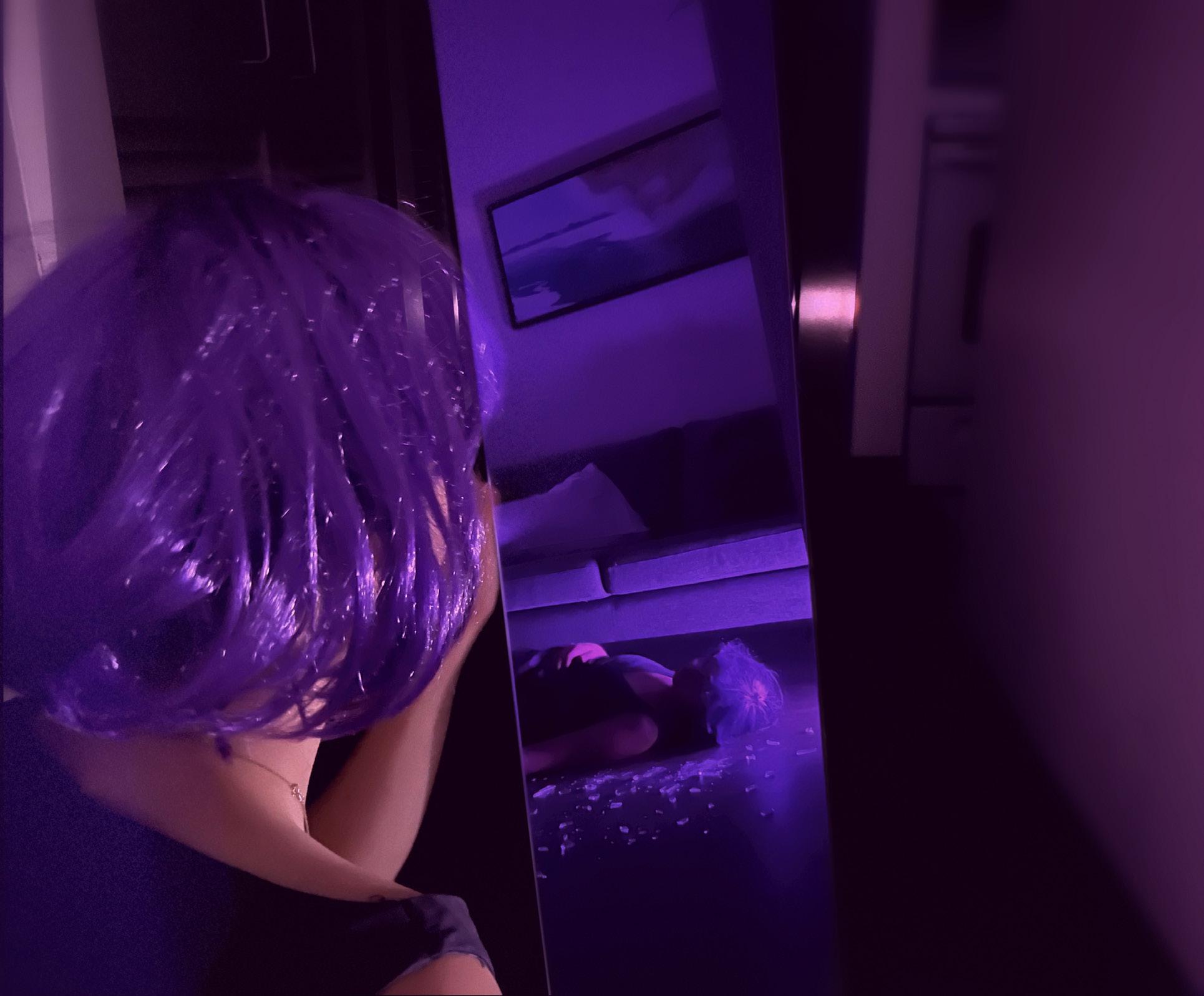
Are we living a life that is safe from harm? Of course not. We never are. But that’s not the right question. The question is: Are we living a life that is worth the harm?

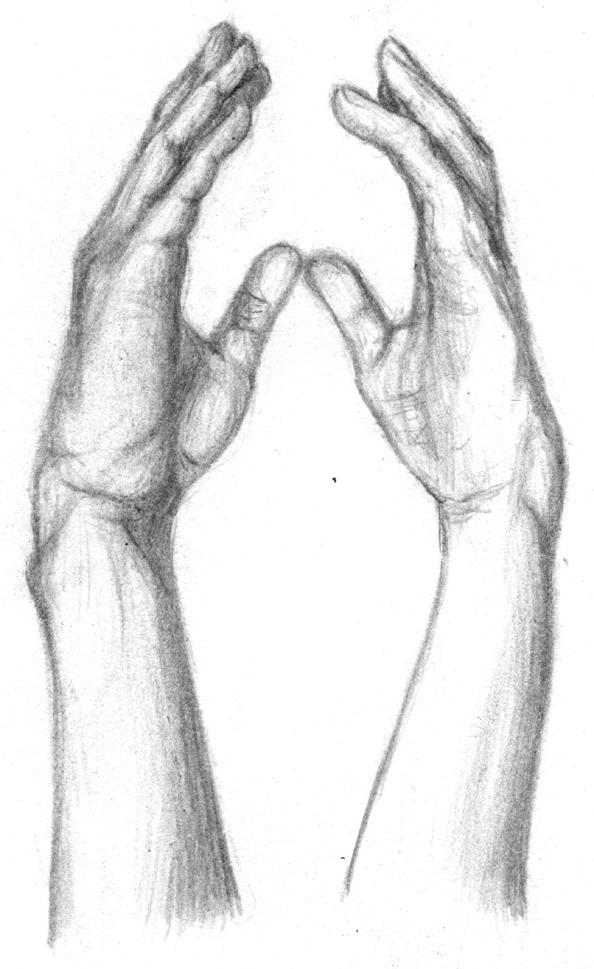
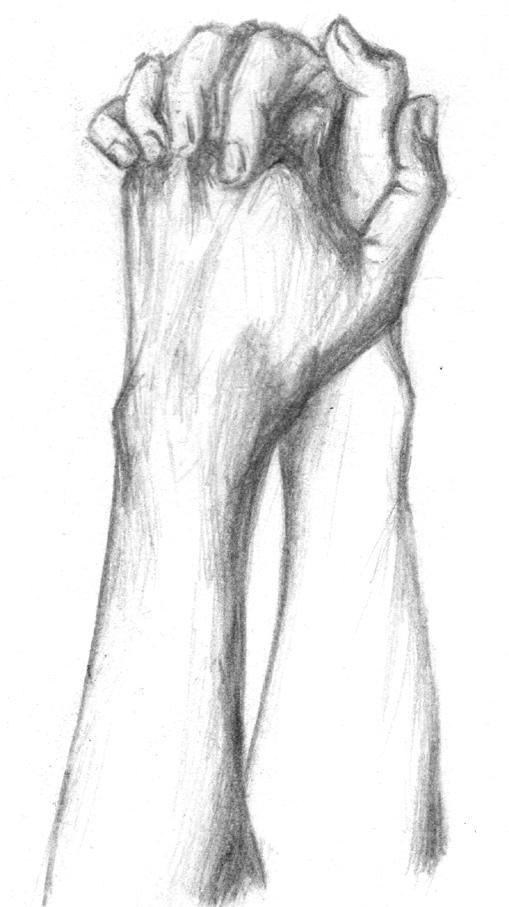
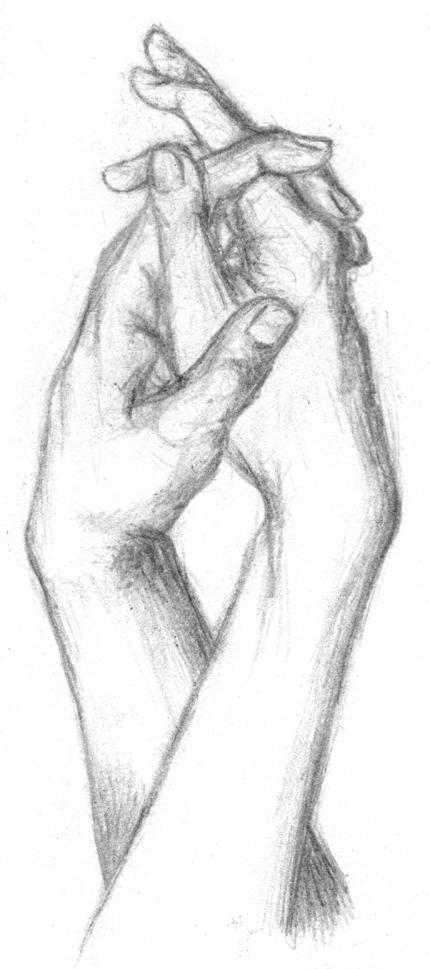
Youthful marriage was a cultural facet for so long, yet only in the last few decades have we begun to view marrying young as something wild and irresponsible. This shift is not bad by any means; I don’t think that everyone should be running around getting married before they are twenty. I do think that we should stop demonizing all youthful marriages.
This being said, I am incredibly biased on this topic as I am engaged and getting married to my fiance this summer. When I met him, I was in the beginning stages of my wild phase. It was the start of my senior year of high school. I was getting ready to leave for college and I just wanted fun. My friend convinced me to download Tinder, and I let her swipe for me and find the most eligible bachelors she could. I went out on several dates in the following weeks, and my fiance was the only one I saw more than once.
We talked for hours; we had a connection I had never felt with anyone else. Obviously I thought he was cute but, more than anything, we just clicked. The chemistry was there, and the spark hasn’t died since.
Now we have to juggle work, school, and wedding planning. Luckily my elderly neighbor Jan loves to plan weddings, especially weddings on a budget. When I told her I was marrying young, she was ecstatic. She told me that young love has become undervalued, dismissed, and regarded as impulsive.
Do not get me wrong, marriage is a huge decision that should not be taken lightly; but on the other hand, if you know, you know.
Why should we forsake or postpone our happiness because of the thoughts of people outside of our relationship? We shouldn’t, and that’s the only answer to that.
Tide pools smell like brine and unwashed teeth – a calcitic, green, powerful rot. Even here, where the waves send them crashing and swirling, plant matter clings to the rocks above like wet wool. We kneel atop the jagged peaks. We gaze down through churning saltwater and sand.
Life swims and struggles and blows long lines of bubbles out the top. We engage it for an afternoon, grasping from above. To crabs, we are as incomprehensible as angels; they snap at our hands, more annoyed than afraid. We leak drops of blood and stain our candy-bright swim shirts with ocean residues. We sunburn, and our skin peels. Tonight we will itch and complain, but today we are happy as stereotypical shellfish.
Our grubby fingers fish up:
Tiny, pastel clams. They curve like children’s fingernails. Bands of opalescent gray, blue, and pink mosaic their shells, building ridged textures and protecting their insides with elegance. We’ve seen these before, in their beds at the waterside; it’s hard not to step on them strolling down the beach. We’ve crunched far too many. They rise through wet sand and extend translucent, tubular organs to breathe. So many clams live to breathe and look beautiful. Nestled in sand, I press against my cousins. The breathing waves wash us in mineral and brine. I extend myself, striving for air, as I open myself to the light. Heavenly, emergent. Rooted in my skin, in blood and bone, but free of my form for a moment on the beach.
Otherworldly whelks. Their shells are constructed of knobs and hard ridges in cream and white. Turning them over, soft bodies protrude. Their skin is veined and striped with vibrant pink. They’re smooth, not slimy. Living marble. They humor our buckets; we return them to the ocean when we leave.
Gliding velvet sand; trawling for bivalves. I pulse in my armor, the shell I have built, and I fear no attack from above. My cousin, the delicate land-dwelling snail, chews on leaves and dreads careless human feet. Underwater, I’m wilder. The ocean is massive and strange. Salt cannot kill me; I am no common slug.
I form the sea-lawn, vast fields of megaflora.
The ocean caresses me, sending me secrets.
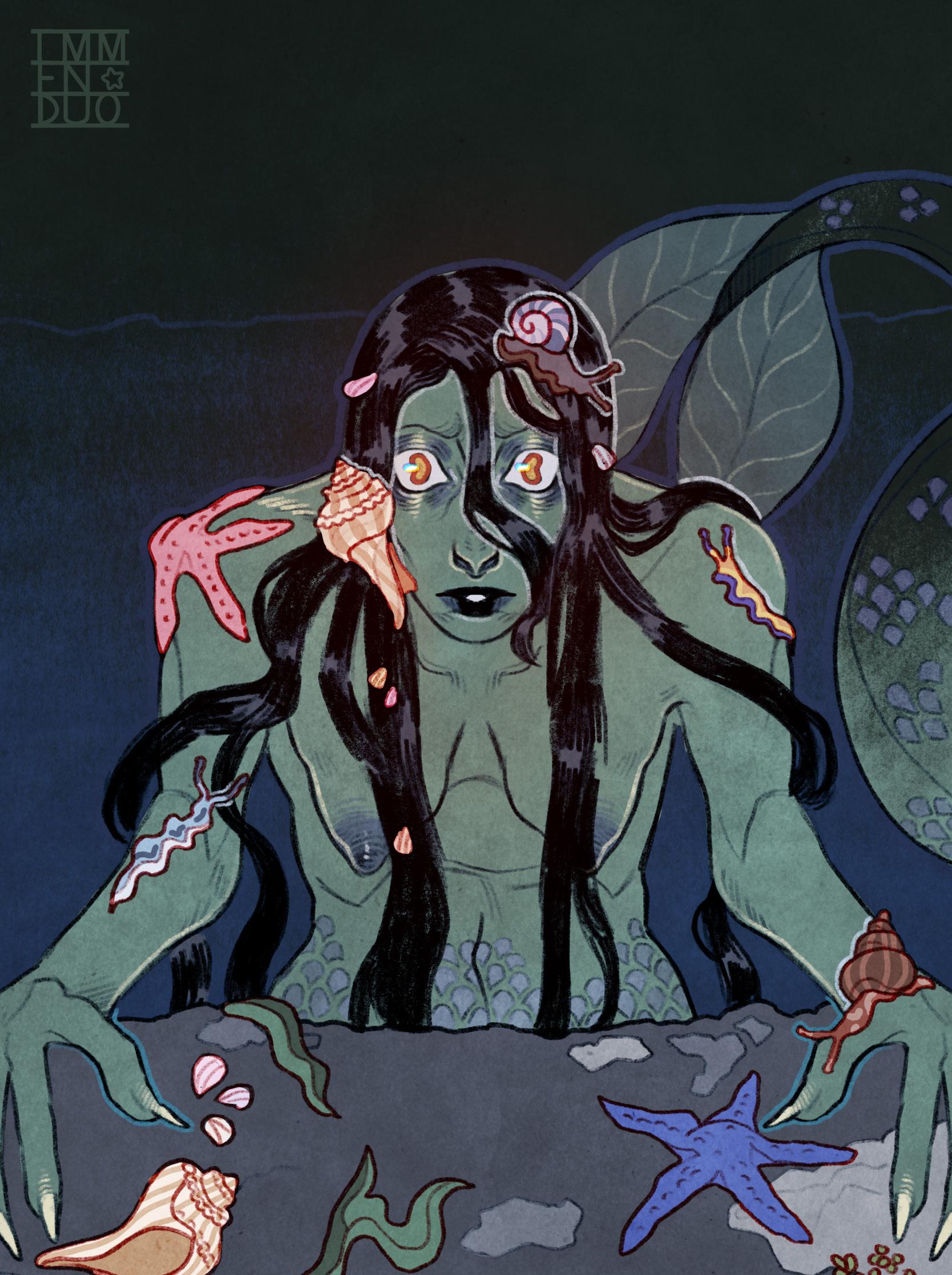
Cerulean seastars. They’re harder to find, and they cling to the rocks. I learn that they burrow straight through over years, creating long, smooth holes. They’re small, and so blue that they don’t look alive – they look colored over with crayon.
My thousand tiny suction cups cement me to the rock, securing my position against the crashing tide. My skin hides me well underwater, but up on the land I must make my own shelters. I carve them in my image. It’s an art; my lifelong work.
Seaweed of many kinds. Some tough like plastic and full of fluid bumps. Some dark and ragged in ribbons. Some like a tangle of coarse witches’ hair. We scream when it brushes our legs in the ocean, but here, it’s a joy to discover. We’ve tried restaurant seaweed before, but this doesn’t taste like the salad – we taste sand, mineral, and bitter ocean depths. How far has this floated? Where did it once grow?
I wave through the darkness and into the light. Fish weave through my tendrils and free up plant matter, living and dying and decomposing among my roots. I form the sea-lawn, vast fields of megaflora. The ocean caresses me, sending me secrets. I wrap them tight and hold them close forever.
And horseshoe crabs. We love and fear these prehistoric relics. Kings of the beach; masters of evolution. They wash against the rocks, and they flip onto the shore, but this doesn’t negate their perfected aquatic design – like trilobites moored in the present. Other children poke them and scream, but we help flip them over. We don’t like to see their legs waving. We feel disrespectful, and cruel. Despite its ancient weirdness, a horseshoe crab is beautiful: carapace like leather, legs and spine mechanic, blue barnacles crusted like gems on its body. We see this beauty at the tide pool, alongside the other marvelous creatures. We still do, to this day.
For millions of years, I have roved banks and shores. A still-living fossil; an ocean arachnid. My shell hasn’t failed me before I preserve my own form. While earth turns around and around and around, I trail the same habits and tracks.
The humans make use of my mythical body. My blood heals. My eggs feed. My shells hang on mantles and hold little trinkets, and meanwhile, humans evolve. In their bright, airy world, they grow smarter and hurtle toward doom. I have been here while they were new apes. I’ll remain when they turn into crabs like myself.
At the end of the day, we release all the sealife back into the waves. The sun sets; we walk home. The pavement shimmers in the dying light, and sand tracks us back to the outdoor shower. We wash the saltwater away with the fresh, and we dream of teeming life beneath the sea. We impose our own ideas, our own personalities; we imagine their secret cities and inscrutable religions.
Meanwhile, the wonders live on.
you are alone, mercifully. the kitchen light is on, the fan oscillating lazily throughout the room. the stove is still warm, and you fight the urge to put your hand on it, to feel its warmth. your hands are so cold. you are so, so cold.
I’ve been working on this recipe for a long time and I’m so glad I can finally unveil it to you! This is my gluten free sourdough recipe! I promise you’ll love it – I’ve been diagnosed for 20 years and I’ve never tasted anything closer to the real thing!
You’ll need:
• You’ll need:
• you’
• Bob’s Red Mill 1-to-1 gluten-free flour blend
• You’ll neeed:
• 1 packet dry active yeast
• 3 egg whites
• you
• ¼ cup psyllium husk
• you
You’ll notice the addition of psyllium husk. What’s that, you ask? ask? Well, it’s the husk from around the seed of the Plantago ovata plant! It’s what provides those gluten-y bonds in the bread with no gluten at all.
you blink, having snapped back to the present. you are standing with your hand over the metal grates of the stove, unsure how long you’ve been there. the fire, on medium-low, still burning. you’ve taken the pan away.
Add the sugar and yeast to the warm water in order to help it bloom – this “activates” the yeast and will allow the bread to rise in the oven. to rise in the oven.
this limbo you’re living in– you have to cling desperately to your own memories to keep them from slipping away. you’re 20 and you have a mind full of cobwebs. you can barely feel your hand in front of you– you can’t do it anymore.
Add the dry ingredients to the what the fuck is it called the stand mixer, and mix on low until combined. Then, add the oil, egg white, vinegar, and yeast mixture. Mix on medium speed, but don’t overmix!
a shiver runs through you. you are always so cold and your body aches.
You should have a sticky-but-not-too-sticky ball of dough. Grease the edges of your
what was the point of any of this, anyway? the point of baking tin, and then tip the dough into the tin. healing or getting better when it just makes things worse? when Make sure to squish the dough around to get to the corners of the tin! there is a gnawing at your chest The bread will rise in the oven, but you don’t want the sides to be misshapen! and all you can do is write about it
Let the dough proof for 45 minutes to an hour that endless hunger by which you’ll live and die. or whenever it rises above the loaf pan, that ache which seeps into your bones covering it with plastic wrap and placing it in the fridge. and remains there Then, remove the plastic wrap and place in the oven at 350 degrees fahrenheit. like god himself forgot to grease your joints to make you move. Halfway through baking, roughly 30-35 minutes, in an effort to feel, cover the loaf with tin foil. you bring your hand down hard upon the grate, This will prevent it feeling the metal sear your skin, from burning bringing some clarity to the fog you swim through a pain that rings like church bells. or from over-browning the crust. you scream and tear your hand away.
Remove from the oven and let cool completely before the bread is done.

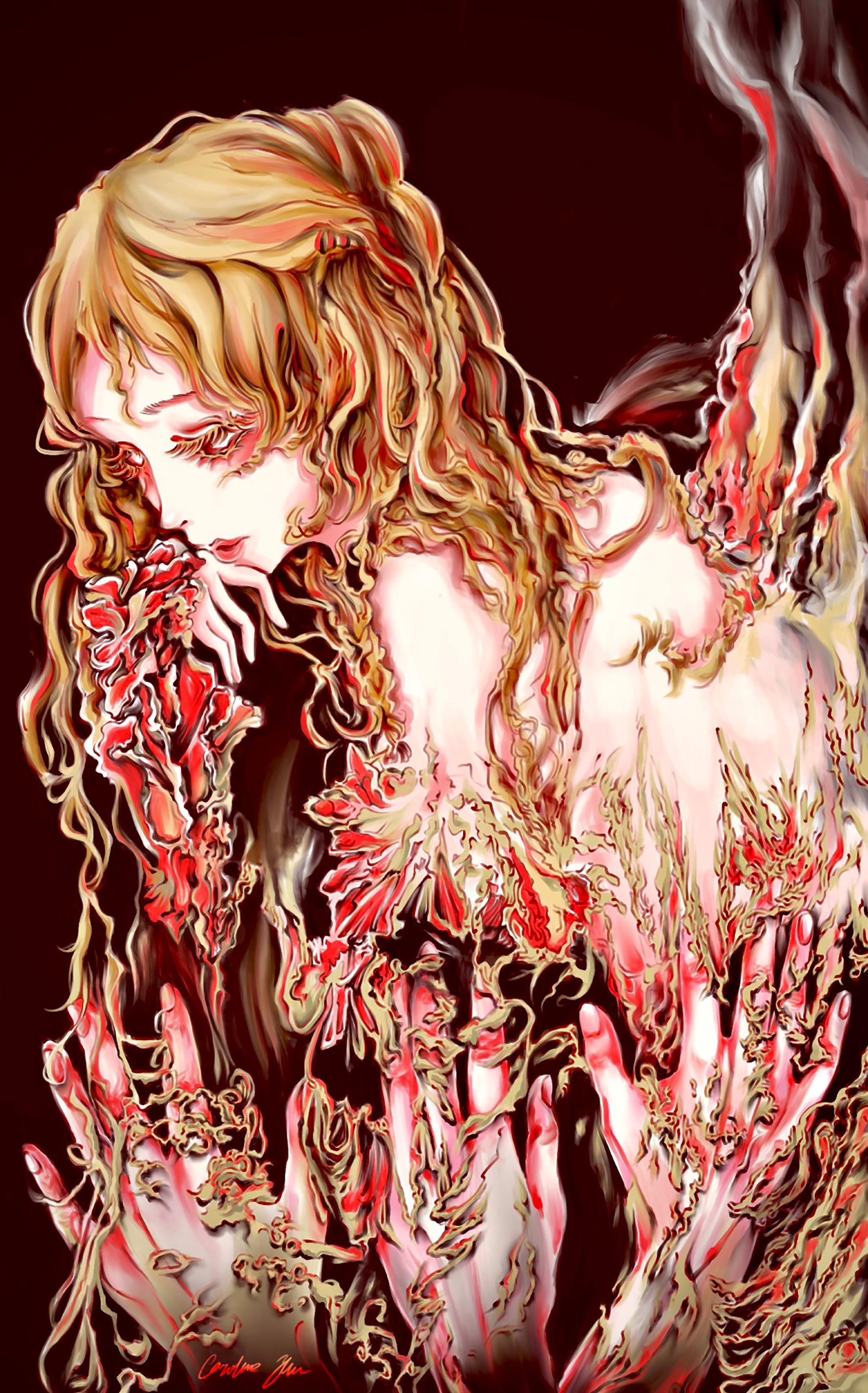
I grew up in Tia Laura’s room. Although I had a loving home with devoted parents, everyone had somewhere to be Monday through Friday from 7:00 a.m. to 5:30 p.m. So, I stayed at my aunt’s house in the meantime. Every morning at 6:45 on the dot, I would say my goodbyes to my mother as she dropped me off. An hour later, I’d amble down the block tightly holding my brother’s hand as he made his way to school. The morning would bring with it a natural lullaby. The sweet trilling of the birds’ song. Music that encapsulates my childhood. Years later, I still recall the colors of their music painting the sky the same way grapevines grow. Beautiful chaos. Soon, it would only be my uncle, who ran an auto body shop from the backyard, watching over me.
The Texas heat kept me indoors most of the time. I spent hours in my aunt’s bedroom. The bright, yet pale, mint green walls gave me a sense of peace. As the half-opened windows welcomed the cool breeze, the sheer white curtains billowed quietly. Toys and imagination kept me company most days. Although I spent much time alone, I never felt lonely. While the world stopped to breathe, the quiet moments made my heart beat a little steadier. As I lay over the freshly made bed, I’d drift on calm seas at ease with the fluidity of time. Like a slow carousel, thoughts would circle my serene mind. I’d find myself in the place between my reality and dreams. Waist deep in a calm lake, looking over at mountains in the distance while green and purple fire filled the vast sky. It was as if dreams were allowed to dance freely on the black stage. I could watch the aurora forever and see a special beauty with each movement. Surrounded by woods, there was no clear path, yet I always made my way back.
My inner landscape has not changed much since. It is a place in which I discovered profound rest. I have since tried to visit, but it feels different. Perhaps that is not a bad thing. As time passes, we are bound to change. But even now, I can still faintly hear my uncle’s Christian radio in the distance. I smell the linen hung to dry on the clothesline. The sensation of the cold tile floor through my socks is still there. I still see the swaying drapes. I had not yet discovered the concept of worry or fear. The indescribable feeling still lingers, except it now lives only in my memories.
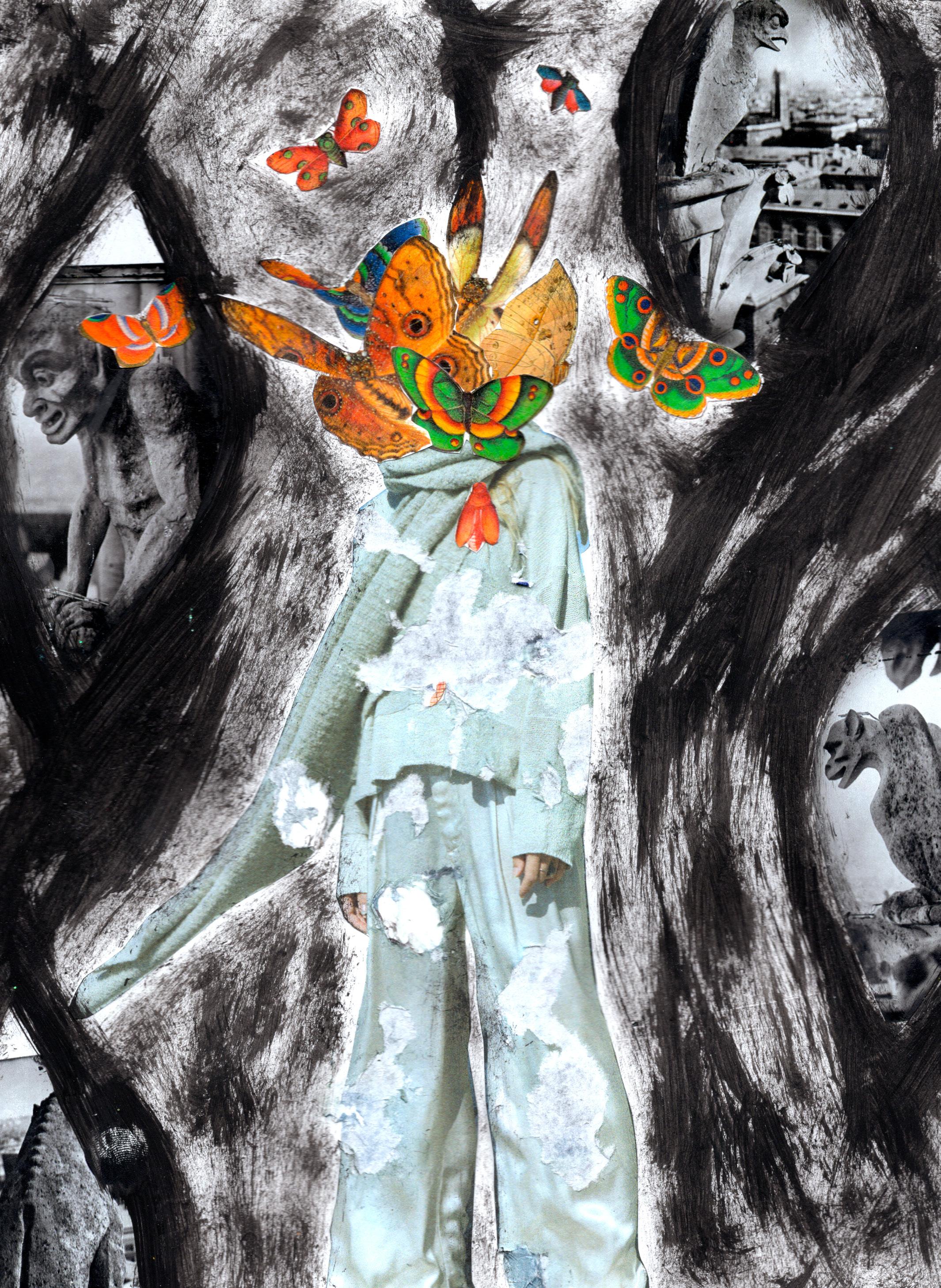
Idaho is one of the most beautiful states in the union. Growing up there, I was exposed to natural wonders that the rest of the country remains completely ignorant of. This being said, the beauty of Idaho is underlied by political radicalism. News of the University of Idaho tends to focus on their attempt to halt the distribution of birth control, like condoms and other contraceptives, to their students. The administration was publicly criticized by President Biden.
The last few weeks of my senior year of high school were peppered by lockdowns induced by pro-gun rallies being held across the street from my campus. Even living in the only large blue county, radicalism still outweighs all other political ideologies.
is an anti-government militant who has been arrested several times due to organizing unsafe protests and for breaking into schools to protest mask mandates. He is running for governor against the already radically Republican current governor. Ammon not only wants to eliminate any and all means of abortion, even in cases of rape or where the mother will die, he also wants to put all federal lands in Idaho under state control.
Putting federal lands under state control would contribute to our already worsening issue of public lands coming under private ownership, impeding conservation efforts and land preservation. Idaho has the second most protected land in the nation, preceded only by Alaska.
In terms of goernance, Idaho’s Republican party has only increased political polarization in the state. Our current governor, who supports heartbeat bans and other extremely conservative political initiatives, has been accused of being ‘too liberal’ because he weakly supported mask mandates in the early beginnings of the pandemic. Now, our lieutenant governor, Janice McGeachin, is a radicalized, far-right Republican who makes our current governor look liberal.
We have other, even more polarized politicians, such as Ammon Bundy. Ammon
In reality, Idaho’s politics are becoming more and more radicalized due to small things like closed primaries. Republican control of the state will not cease until we open the primaries up to people of all political ideologies; closing them only accelerates both polarization and radicalization of Idahoan politics.
I love my home state, but I do not love seeing it deteriorate in the hands of politicians who do not care for the natural wonders of the state nor the well-being of its people.
“Even living in the only large blue country, radicalism still outweighs all other political Ideologies”
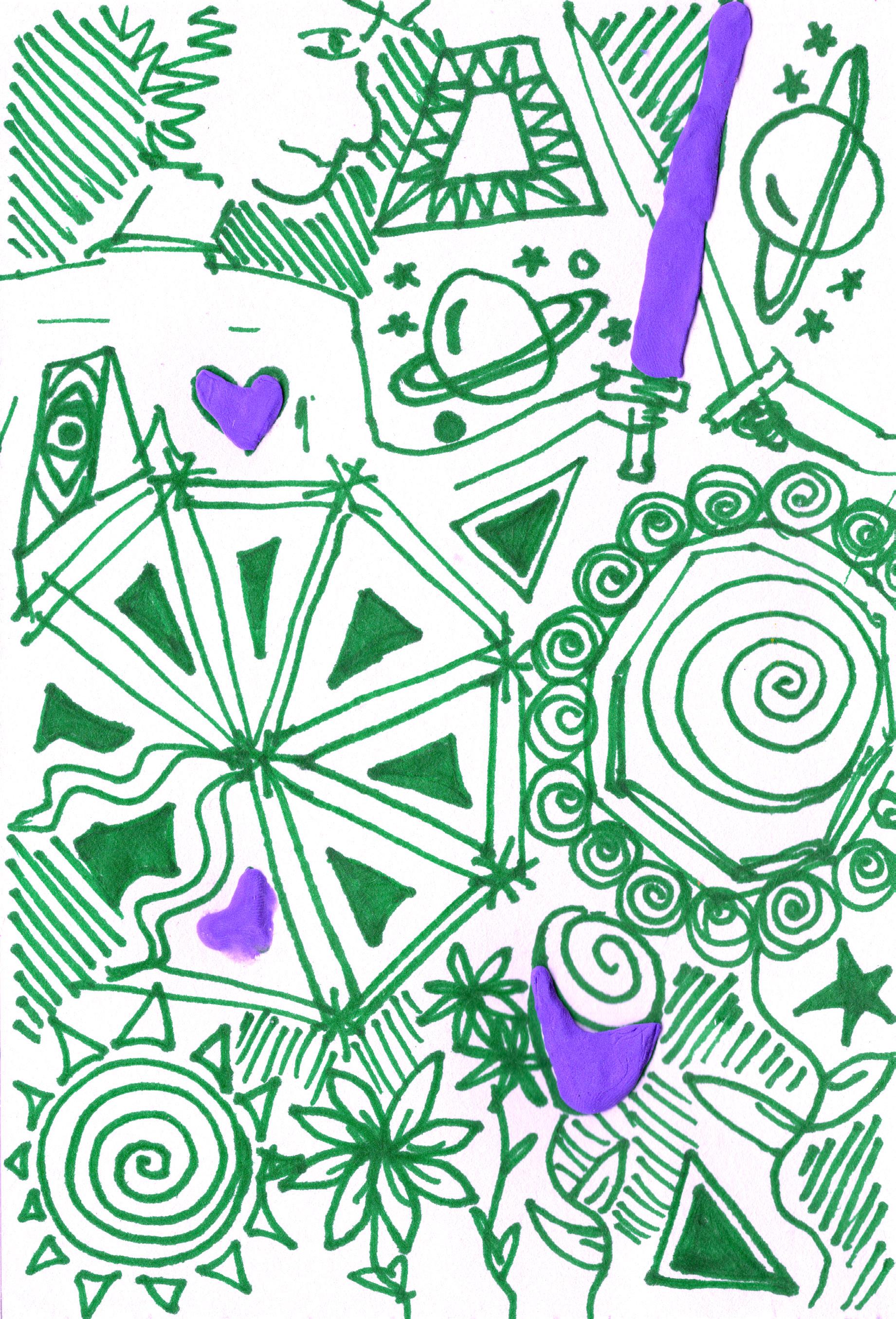
Choosing the right birth control for you is a crucial decision in anyone’s life. Unfortunately, the decision is a lot harder than the initial step of telling your parents or gynecologist that you need to use it. It’s not like high school sex ed where you have two choices: condoms or abstinence (I don’t know about you all, but abstinence is not my cup of tea). Luckily, I had the privilege of a gynecologist mother to guide me through the basics of birth control, but even I found I was woefully underprepared for the complexity of preventing pregnancy.
Walking into the gynecologist’s office, I was both excited by this turning point in life and confident that I was 100% educated on my options. I sat down, prepared to announce that I just wanted the pill, plain and simple. Well, it turns out, in addition to the numerous other birth control options I didn’t even know existed, there are about a hundred different types of daily pills. They fall into two main categories: estrogen & progestin pills and just progestin pills (mini pills). Deciding between the two is just the beginning. As my gynecologist rattled off the overwhelmingly long list of brands, she also casually mentioned the fact that it takes the body three months to adjust to a pill. So if you experience any of the side effects – depression, cramps, excessive bleeding, to name a few – you have to wait it out for three months. Then they’ll transition you to another brand where you have to wait, you guessed it, another three months to see if that one’s any better.
Eventually, my gyno prescribed me Junel, and I began my new daily pill-popping routine. My gynos were ever so helpful as to neglect to tell me when I should start the pill. So I just started randomly, in the middle of my cycle. Fair warning; you’re actually supposed to start the first day after your period ends. So because I started at the wrong time, I bled for almost 2 weeks straight. I later found out that it’s technically ok to start in the middle of your cycle, but for the newbies out there, if you do that, prepare for some wonky stuff.
And the hormones! Don’t even get me started. The hormones change everything. I cried every night for a month. If I was overworked, bam tears. If I read a sad article for class, again tears. There’s also the added bonus that they knock your pH completely out of whack. So don’t be surprised if you get a yeast infection! Worst of all, I’ve also heard the hormones can lower your sex drive. I mean, come on. Why did I even start birth control then?
So for all you birth control newbies, make sure you do your research. The first month of the pill terrified me because I had no idea what was going on with my body. Looking up your questions online will only freak you out more (it’s like looking up your illness on web MD and it telling you you’re dying). If I’ve learned anything from my experience, it’s to ask your friends and family what their experience is like. Kinda makes you wish there was a male form of birth control, right?
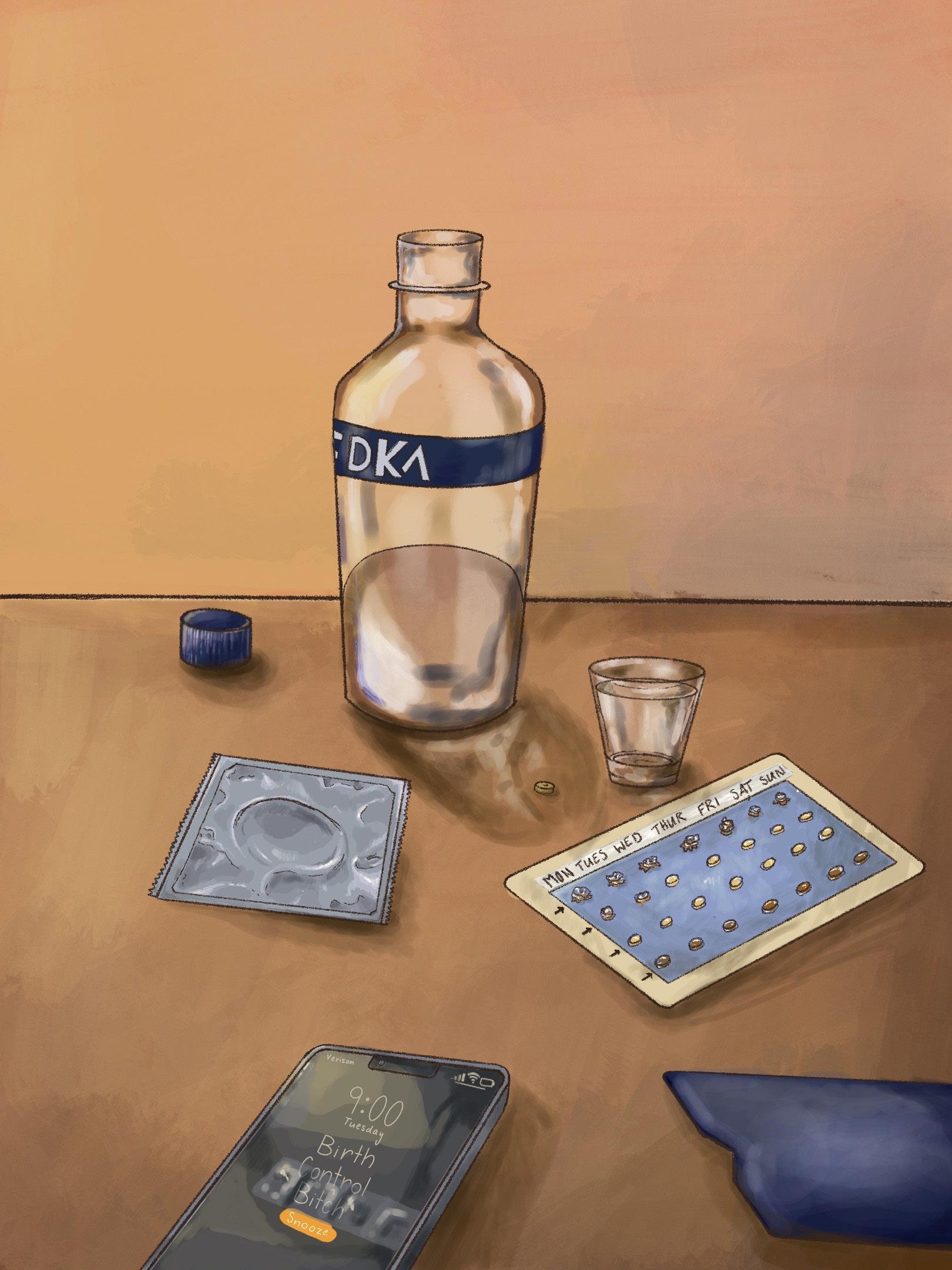
Jackson told me to bring my hot friends Did he mean Erica with the braces? No, it had to be Laur. She frenched Miles last month. Everyone talked about it.
What would I even wear?
That crop top from American Eagle… Not enough cleavage. Push up bra. NOW! Put a choker on. So edgy.
My razor looks like a paper shredder Jammed with banished hair. It took me two hours to feel like a baby dolphin. Feel my skin!
My mom is late. Again. Erica and Laur already smell like ethanol. They won’t last long in these conditions. If we don’t leave in 5 minutes Sabs will hu with someone else (His name is Sebastian but that’s lame) And I’ve been snapping him for weeks.
Finally, we’re here. Jackson’s mom says they’re in the basement. How romantic. There’s beer in the corner. Three cans. We’re getting lit. Why are the lights all off?
1738. Eh. Erica and Laur are with the guys They said Sabs is on the couch. Here it goes. Where the fuck is my chapstick? His arm is around me but all I can think about Is my breath. Or is that his breath? What is that smell?
Wet. So wet and slimy. Sabs is kissing vehemently with tongue. Quick, look hot, Grab his neck or something. This will be on someone’s snap story.
I think I like girls.
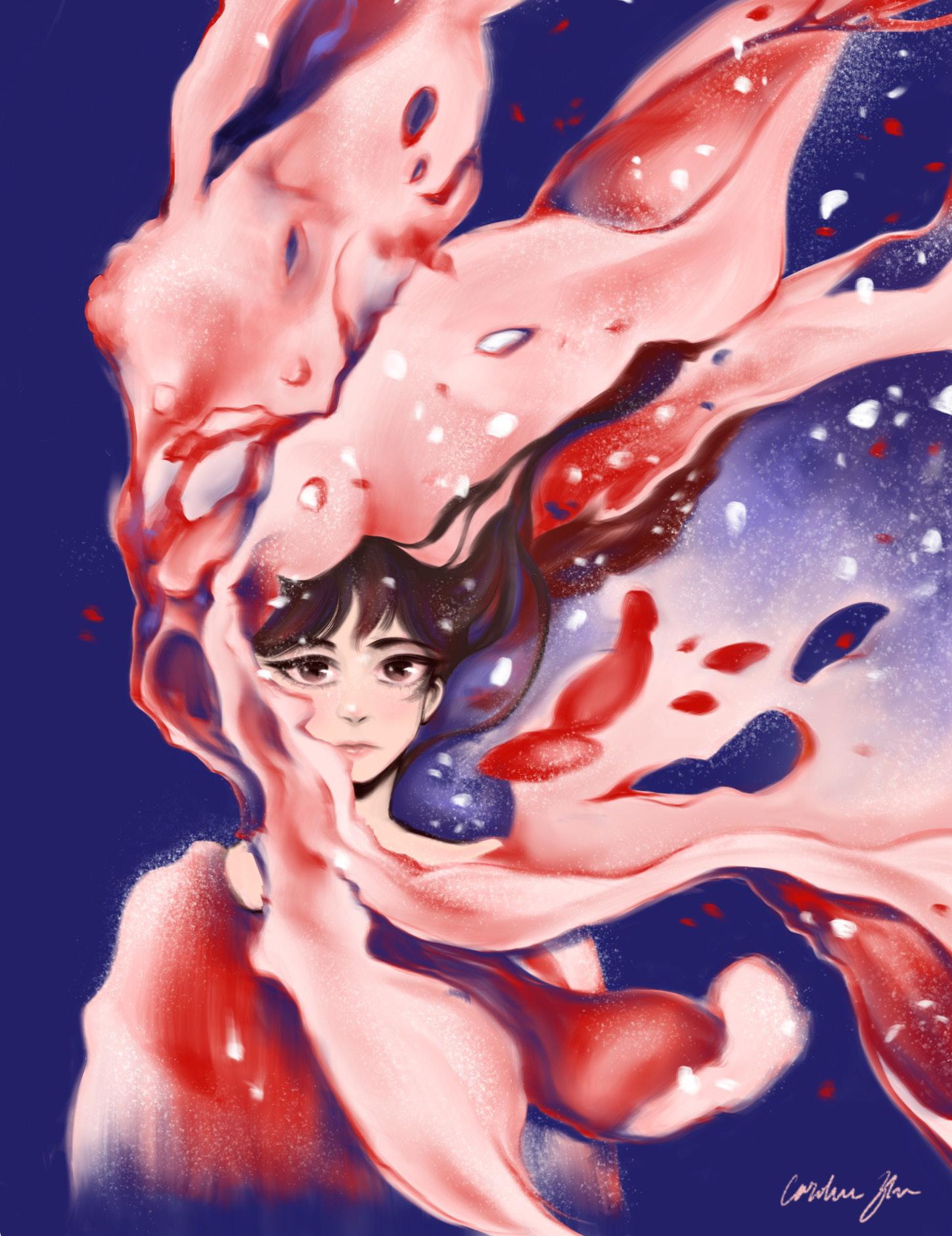
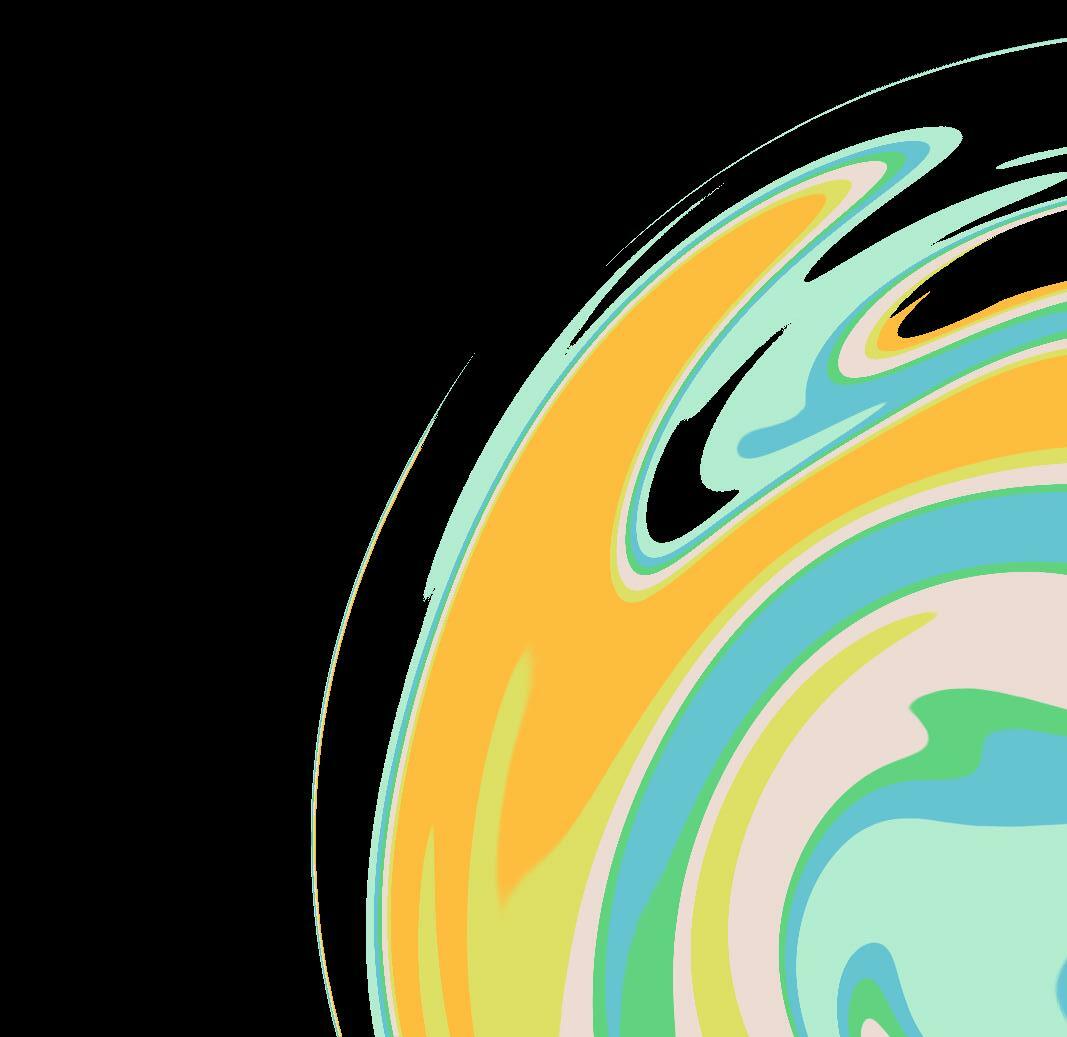
After having joked about buying Twitter for nearly half of a year, Elon Musk finally fulfilled his promise and began his official takeover of the platform the first week of November 2022. It is with great laughter and sorrow in equal spades that I, like many of my literary peers, am faced with the conundrum of staying online to either see how this transition pans out, or to take this as a sign to finally let go of what was a longtime firestorm in the making.
But honestly, it’s hard to leave a place you’ve grown fond of, especially when you’re hesitant to leave people behind.
I joined Twitter in July 2015 (just about seven-and-a-half years now!) to find a writing community online when I couldn’t find one offline. Growing up in a small suburban town where the main extracurriculars in school were speech and debate, sports, student government, and studying for AP classes, there weren’t many others my age that shared my passion (and near obsession) for writing. Though I am grateful that I had my friends in the school literary magazine, as well as the numerous English teachers who encouraged me to explore poetry when I proved not only a penchant but promise for it, I had a hunger to grow and evolve that the physical siloing of suburbia could not satisfy. Somehow, I stumbled onto Twitter, and though my clumsy fifteen-year-old self had never used social media before that, I made my way through the endless void and found “literary Twitter,” where living poets, publishers, professors, and students like me created common ground over the Internet. I didn’t know if I would stay long, or if I would quickly grow bored and abandon the platform, but in retrospect, I’m glad I didn’t
leave. Over the many years on this platform, I have had the good fortune of being published in various capacities and learning from genre seniors in both formal and informal settings. It was through Twitter that I learned how to submit to and read for various literary magazines, giving and giving back the gift of feedback. It was through Twitter that I connected with and discovered some of my favorite living poets and writers today (a long list including but not limited to Sally Wen Mao, Dorothy Chan, Chen Chen, Paige Lewis, Emily Jungmin Yoon, Leila Chatti, Natalie Wee, and more).
Most importantly, I found friendship and community like none other with fellow teen writers around the world. To this day, I still keep in touch with them: Matilda and Jackie, the best goose girls in our trifecta of chaos across three genres; Enshia and Lily, my favorite BadReads reviewers and quarantine writing circle buddies; the Sine Theta Magazine team, from Ohio to Oxford to Switzerland to Singapore; and so many less-frequent Twitter users from the Adroit Journal Summer Writing Mentorship class of 2017 that I’m still glad to see come across my social media in spontaneous bursts. It’s fair to say that in some extremely formative ways, I grew up (and out of childhood) on the infamous blue bird app, having joined at a historically fraught moment in time that overlapped with the most volatile years of my teenage angst.
But now that I am at the end of college and have archived my old dreams of pursuing creative professorship full-time, I can look back critically to see the heavier implications of growing up on literary Twitter beyond the rose-colored memories. Now, as we witness
what may or may not be the beginning of Twitter’s collapse, I can look back and truly see how growing up in the teen writing industrial complex has affected us all and fundamentally marred the way a lot of us young writers viewed and engaged in our work, craft, and selves.
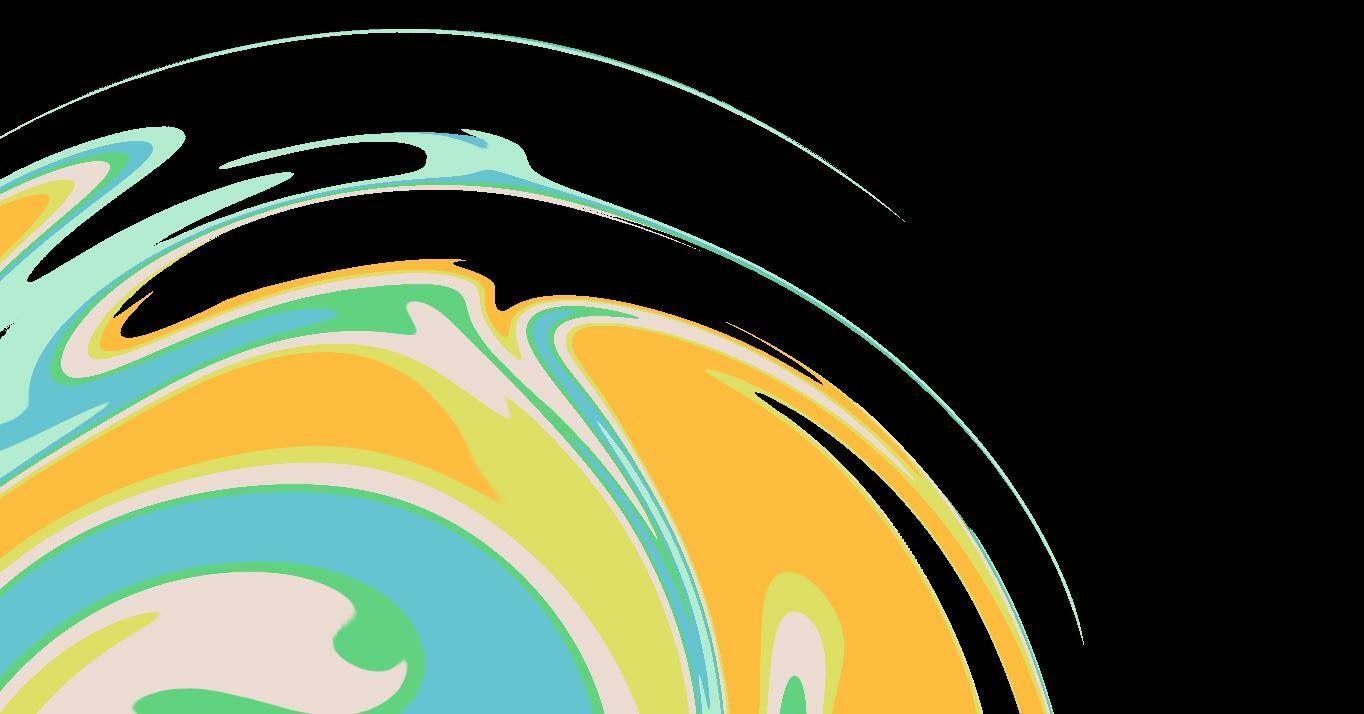

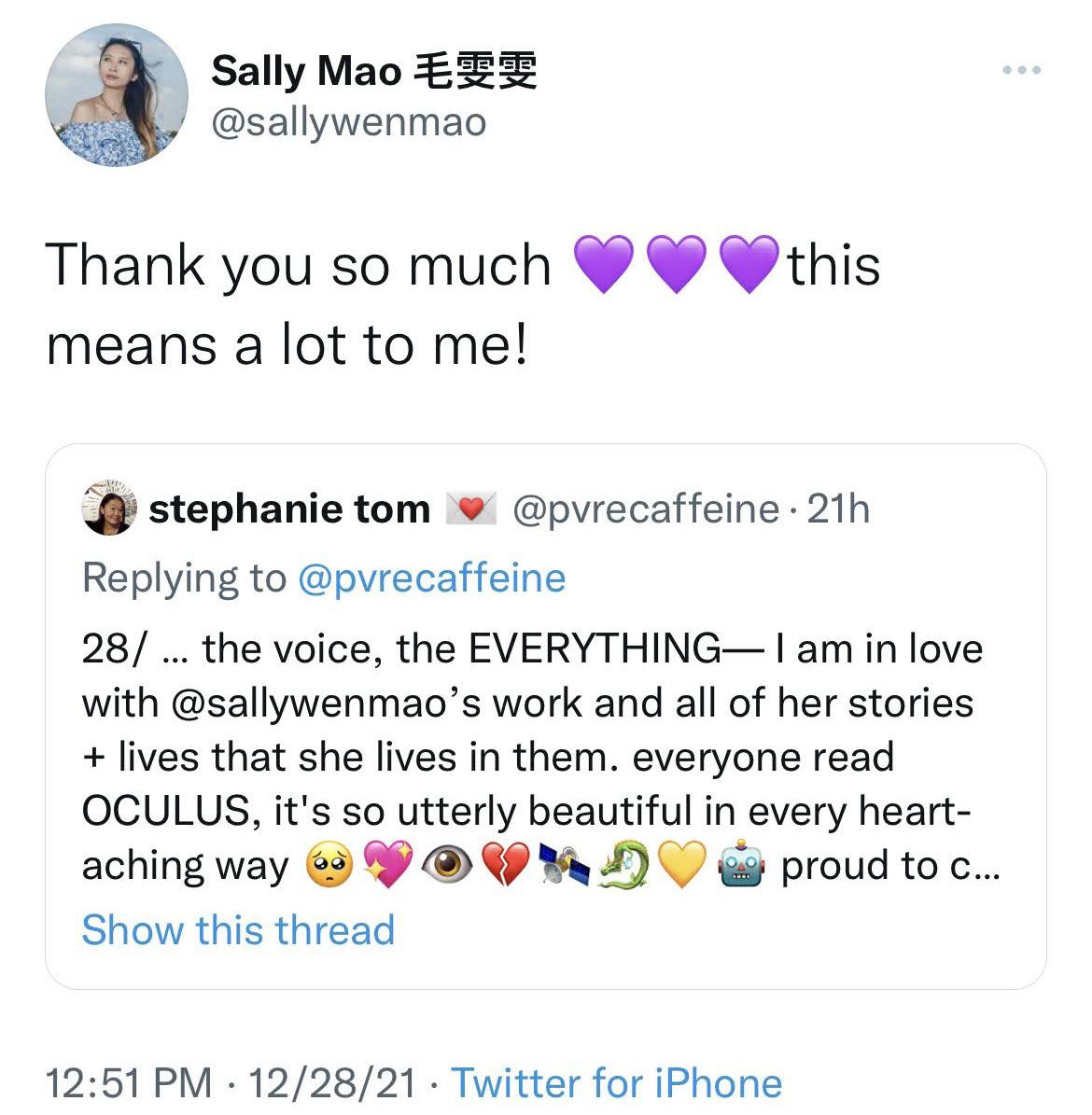
single page, the number of assignments you procrastinated as you sent out hundreds of packets of poems that never got you more than a form rejection, or all of the ways in which you scrimped and saved up to submit to prize competitions that did not have fee waivers but that which would grant you the promise of prize money?
Once in a job interview, a recruiter asked me whether I thrived better in ambiguity or structure, to which I responded ambiguity in part, for the reason that the absence of structure demands the creation of it in new and innovative ways in order to survive. This realization began in high school, when I first started submitting to literary magazines and student prizes alike when, as did many other teens in the creative writing circuit, I learned to wield my vulnerabilities like a weapon.
For context, the “teen writing industrial complex” is both a joke and a painful truth. In brief, I’m talking about other teen writers like me: who blossomed earnestly with the creative writing–be it fiction, poetry, or another hybrid form–in middle and high school, but soon turned craft into a science and slowly fell into creative burnout, all in the name of chasing success by way of winning selective competitions and acceptance into prestigious universities.
I know it seems ridiculous out loud –laughable, almost, especially for peers who progressed through high school and onto college in the ‘tried and true’ methods of pursuing extracurriculars in which you could more quantitatively measure a modicum of success. After all, when I was applying for college, I can’t remember how I summed up the space in my life that writing occupied (or rather, took out) – how do you quantify the hours of editing and revision that go into a
As did many other young writers of color in particular, I learned to aestheticize my identity–personal, cultural, familial, and historical–and project my pain in a way that made me pretty, to capitalize on stereotypes of the self. My friend Steph Chang–“ex-high-school-poet,” fellow jaded English major, and editor at Sine Theta Magazine–described the phenomenon well in her essay “Death to the Teenage Writing Industrial Complex”:
[We believed that what we] wrote mattered solely because of the selectivity or prestige of ‘x’ competition or journal. This is what many Asian diaspora poets reveled in writing toward – the idea that trauma you have never lived, only heard vague recollections of from grandparents, will tug on the heartstrings of white editors because it fits within their schema of China, or Asian immigrants broadly defined. Never mind that some teen poets willingly commodify these stories, they’re also rife with gross “oriental” descriptions that invite these white editors to indulge in fetishistic and exploitative imagery. Suddenly everything is yellow.
Not mentioned in Steph’s excerpt above, but still relevant in terms of long-lasting consequences and pains of this phenomenon–
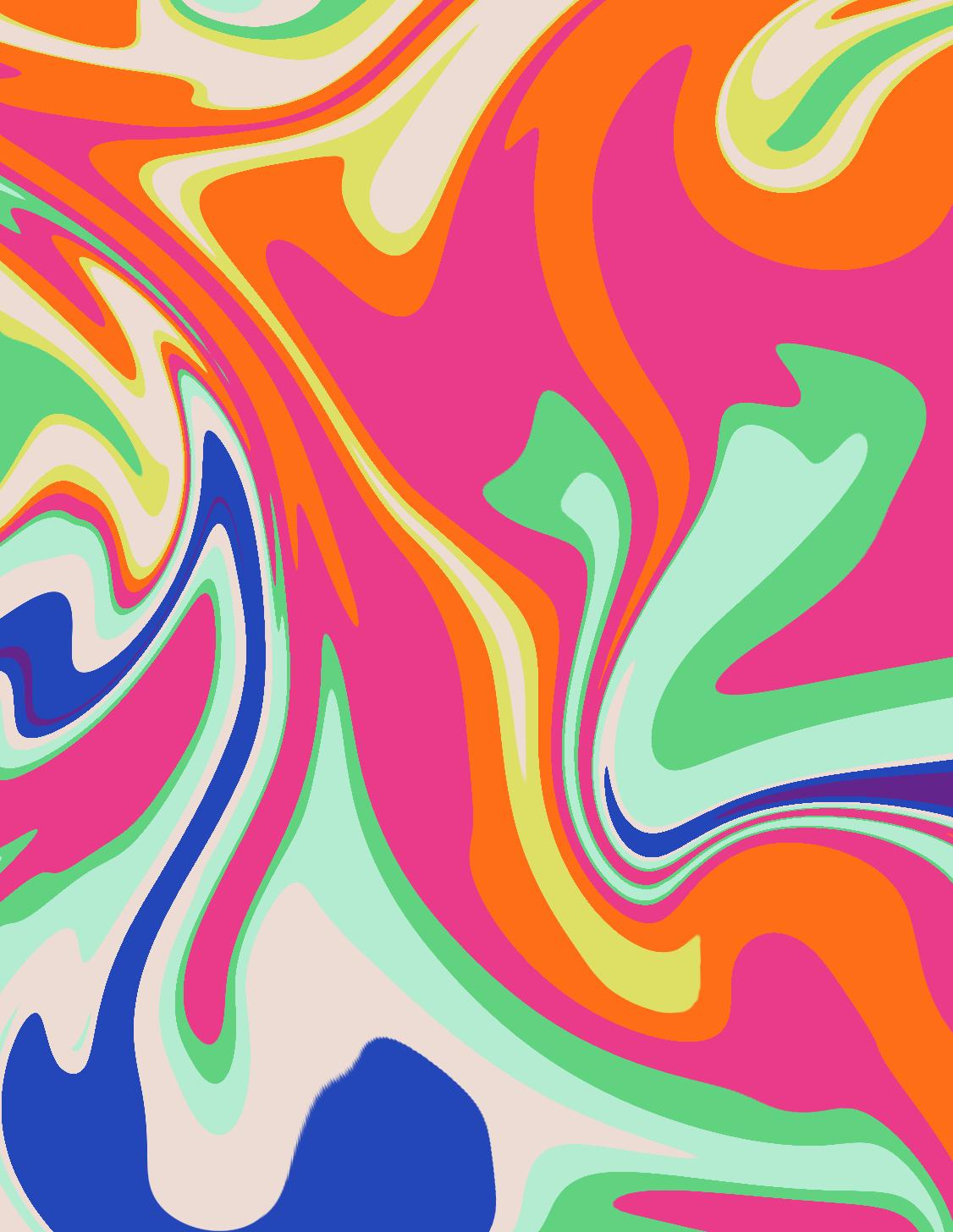
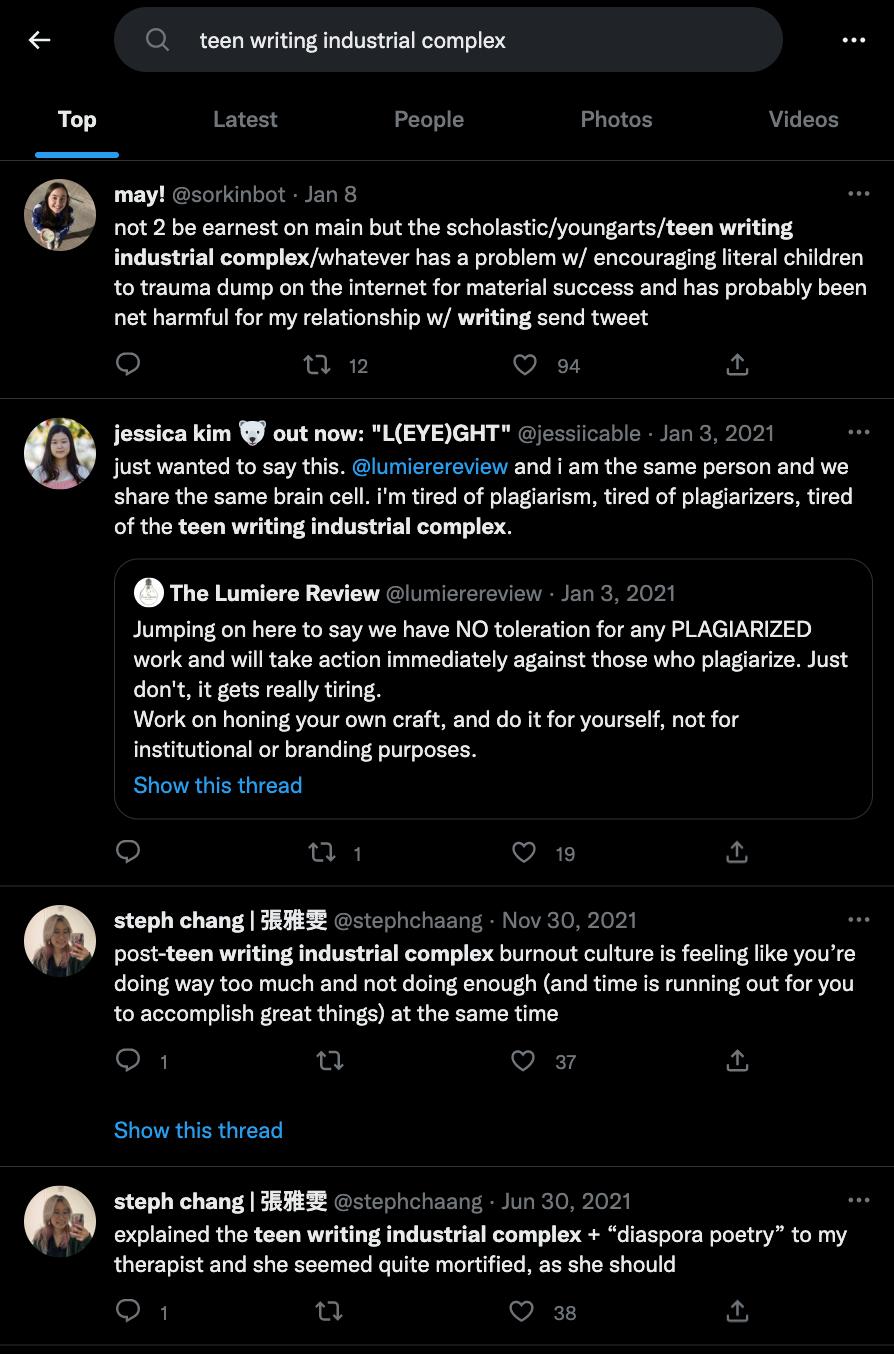
the inability to write poems without the same tired motifs of mother, mango, moon; the disappointing frequency of plagiarism among young writers who share work with one another in confidence; the stereotypes that diasporic poets learn to write towards tend to be the same ones they grow into, and find it hard to escape later in life; the crushing existentialism of what comes next in life once you ground your entire worth in your ability to produce “successful” art.
A mutual on Twitter once joked that the “teen writing industrial complex” to therapy pipeline was a setup at this point, that it’s hilarious how so many ex-high-schoolwriters have ended up unpacking these realizations the moment they graduate into college in painful retrospective. But for all of its nicheness to all but a few individuals, we can point to larger systems that eclipse the problems with this complex. After all, the literary market and publishing industry have historically not only been white but wealthy: it’s a game you need to pay to play, which naturally means that a good chunk of teen writers come from wealth and privilege. The drive–the need–to commodify our art by numbers in order to be deemed “successful” is an extension of the capitalist society we live in today. And for all the ways that teens (and now college students in young adulthood) gripe about the system that incentivizes this self-orientalizing, this mining of our imagined trauma, and our general self-flagellation–the adults that run the literary magazines we submit to, the prize contests that we compete over, and the college admissions offices all enthusiastically endorse these behaviors.
A disclaimer: this is only an excerpt from a lengthier explanation of the “teen writing industrial complex” as a whole and all of the ways that it incentivized the commodification of art and identity. It is by no means an exhaustive–or even all that of an incredibly in-depth–critique of a flawed system that I myself have enthusiastically bought into. After all, as you read this essay, I’ll be a few weeks away from graduating an Ivy League university, having gotten this far in part by the sheer determination and
fervor of my high school self’s writing stats and accolades.
When I used to wonder in my freshman year about what made me special or deserving of being here on this campus with some of the brightest people I’ve met in my life thus far, I thought that it was mainly because I could write “well,” however people defined it, in whatever genre they could name, and especially because I was a poet–arguably one of the most challenging/ intimidating forms most people can identify. I came into college equating my worth with what I had created, rather than what I could be–and being scared of that thought, I tried my best to alienate myself from this history of creative writing in every formal sense.
But given graduation on the horizon, this fall I finally worked up the courage and made the time to take a Creative Writing class for the first time. Everyone I know was surprised it hadn’t happened sooner – after all, I came into college with a trained background and enthusiasm for the craft and was one of the few people (if at times, the only one) that some of my pals and peers knew to be “just” an English major. My freshman self wouldn’t have been all that surprised, though – after all, part of the reason why I chose Cornell was because I knew that despite having one of the strongest English departments and creative writing MFA programs in the country, I would be the only one among my circle of “high school writer” friends that would be enrolling. Even when I had been scared of all that would haunt me as a graduate of the “teen writing industrial complex,” I was more afraid of not continuing the craft that I had loved for over half of my life.
Over the past few months–and before that, even, when I started an informal weekly writing circle with my friends Enshia and Lily during late-quarantine in the spring of 2021–I slowly learned to come back to my creative self and to love all of the ways that I had grown since high school, especially through my writing. The beautiful thing to me about this class was that twice a week in Morrill Hall, I was learning to read and write creatively again with a room full of people who had no clue about the stakes and stress of “high school writing,” who did not share that agony of writing for everyone but
yourself. Here in this space, each week was an invitation to learn about what drove my peers and teacher to write, as well as a way for me to share all of my creative inspiration with them as well–the moon, my Mom, mythology, and Mitski, among others–not because I have forgotten how to write outside of diasporic tropes, but because I only know how to write well when I’m writing from love.
In an interview for a press tour for her second book Oculus, Sally Wen Mao once commented on her idea of success, saying that it doesn’t really matter because “it’s [about] how honest you are …. How you tell the truth, and it’s how that truth impacts the people who matter to you, even if you don’t know they matter to you.” I have to agree with that point, especially in the aftermath of learning how to think outside of what the “teen writing industrial complex” has taught me; I don’t write for the sake of publishing prestige anymore, or work myself into a frenzy at my writer’s block.
Rather, I write because I’m driven by the love that this craft has given me and which has kept me alive all these years–from my mother who has been telling me stories ever since I was young; from my father who has taught me to appreciate the beauty of music and movies; from my mentors and teachers,
formal and otherwise, who have enabled my creative experimenting during class time; and especially from all of my friends online and otherwise, who have endured the trials and tribulations of (outgrowing) our “high school writing” days, who were not “teen writers” themselves but who read my work and give me honest feedback, and who remind me that I’m more than what I can make.
It’s funny – writing seems so solitary, even though the only way to survive in the landscape is to have a network of support. I definitely wouldn’t be who I am today (for better or worse) without the love and friendship that other teen writers have shown me, which is why I will stubbornly stay on Twitter until the platform is truly on its last breath – after all, how can I abandon this archive of kinship and camaraderie which has carried me through both the best and worst of times? I’ve always been a sentimentalist by nature anyways.
Recommended Reading: “The Call” and “Teen Writers Deserve Better” by Amanda Silberling (one of my early writing inspirations tbh), and “Death to the Teenage Writing Industrial Complex” by Steph Chang (name twin and poet friend extraordinaire <3).
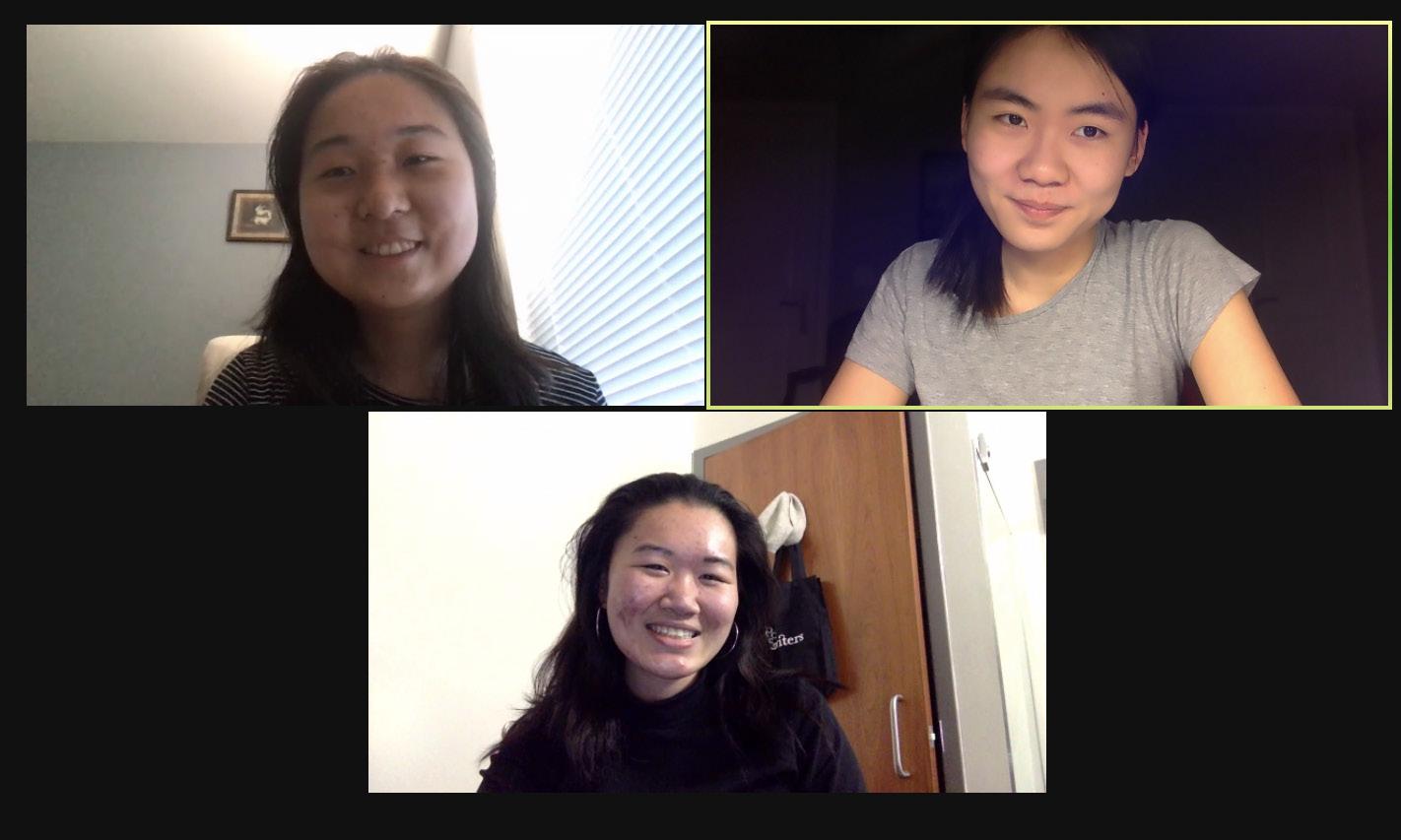

Ever had a crush gone wrong... ?
Maybe a date that went totally sideways? A relationship that left you all manners of dazed and confused?
Well, trust us when we say that on behalf of those of us at Kitsch... we know how you feel!
We’ve ALL been there before!
It doesn’t matter if you were the crusher or the crushed, everyone has their stories of romance gone sour. Some, in fact, are even sourer the more you dig into them! What follows next, dear reader, are some of Kitsch’s own tales of romantic woe, all submitted anonymously! If you see yourself in here (or someone you think you know) try not to cry! Try laughing instead, nine out of ten doctors recommend! :))
With all that said, we now humbly present to you a column we could only call… Chaotic Crushes! *****
I’ve always thought of myself as a reasonable person. I find comfort in numbers and logic and facts. My sophomore year of college, though, I had a crush on this guy who completely threw off my sensible lifestyle. I could not figure out why he didn’t like me as much as I liked him, and even though I knew we would never succumb to anything, I made it my life’s mission to get him obsessed with me. Flash forward nine days into winter
break, and I have yet to hear a single word from him. One TikTok-search-rabbithole later, and I’m scrambling my kitchen to make a DIY love potion. Put together a jar of bay leaves, crystals, honey, sugar, his name in red ink nine times, my name in red ink nine times, a spritz of my perfume, sealed the jar with red wax and all of my energy, and let it do its work. The funny thing is, it did work, and the next day I heard from him. To this day, he is still obsessed with me, keeping tabs on me through all our mutual friends and stalking all my social media, but as soon as he was obsessed with me, I stopped feeling any attraction for him. I got exactly what I yearned for, or at least thought I did. I was willing to do anything for the chase, but at the end of the day, not the guy (or cause) I should have put all my energy into. Maybe if I had put all my newfound witchlike energy into something productive I could have found the cure for cancer, traveled around the world, or made my fortune by now, but for now, I guess I’ll have to settle with this man’s unreciprocated attention.
How many of you have seen an entire Star Wars movie? Two? Three, even? I’d be willing to bet the chances are slim to none. In junior year of high school, I had a guy buy the entire six-movie set. Just. Because. I said I’d never seen it. By the time we finished the second one, we hadn’t even kissed and he told me he loved me. I had to end our film-viewing arrangement immediately. I know damn well I have no desire to ever watch Star Wars again,
and I sometimes wonder if he can fathom the idea either. I hope I didn’t take away his love for the intergalactic saga. I also wonder if I simply overthink my influence, and if he has no issue at all watching it, four years later. *****
To me, we are stuck, staring at each other in the middle of the night. I feel so much affection for you, so much that I can’t keep it in my body, so much that I’m bleeding out. You look at me, and I think you can see right through me, that you will look at the mass of vulnerability and fondness pooling over your shoes and be disgusted. I consider telling you the truth–that I like you more than I’ve ever liked anyone, that I think you know me in a way that feels expansive and horrible, that I’m going to miss you when you leave tomorrow. Instead, I move my hand off of yours and take a deep breath, willing my heart to stop beating for just a moment. *****
I have both my Sun and Venus in Scorpio. That is enough chaos. I do not believe I need to go into any further details on any of my past or current crushes. *****
I think I knew what was happening long before I recognized what was happening
I had thought she was cute for a while–the fleeting, passers-by kind of cute that anyone could be
She was different in the woods though, brighter in the driver’s seat of her car, with
spruce reflected in her eyes, with leaf debris beneath her feet
Like easing a picture out of its frame and turning it over to see what’s written on the back
Suddenly I wanted to share a room with her I wanted to make room for her I wanted to be told to get a room with her
Like a cup runneth over, her laugh lapping at my eardrums, upsetting my inner ear
Gravity shifted by the weight of her presence, me staggering, drunk, calibrating to the tilt of her head
I used to tie my hair in a knot on top of my head - once she grabbed it and squeezed and i swear to the god that wants me dead i couldn’t speak for five minutes
I spent hours (days) thinking about her hands
I spent days (weeks) thinking about how her hands would feel
Spent under her spell until one night, in the passenger seat of her car, as I rubbed my sweaty palms on my jeans, she turned to me, bright-eyed, and said, “So, I’ve got a crush on Sarah, do you think I have a chance?”
I have both my Sun and Venus in Scorpio. That is enough chaos.
I do not believe I need to go into any further details on any of my past or current crushes.
My second-to-last crush (I call it a crush, but it was more crush-like feelings of infatuation – I’m arospec and possibly demi, and I’m still working out whether that was actually a crush or a crush in the making... All instances where I use the word “crush,” please understand that I’m using a shorthand word for “confusing crush-adjacent feelings with lots of infatuation...”) was in senior year of high school, on this guy I knew somewhat well but wasn’t super close to. I didn’t realize I had strong feelings for him until I learned that he was dating someone. Then I learned that he was dating this girl that I knew vaguely well (taken a few classes with, been on a group project with a level of “well”). And then I started crushing on the guy’s girlfriend... before I’d fully gotten over my feelings for the guy. I think I was crushing on them both simultaneously, at one point. Anyways, this was the first time I’d REALLY really crushed on a girl, and this experience is how I realized that I’m bi.
Tl;dr I got over a crush on a guy by being attracted to his girlfriend, and I got over that crush by shoving myself into the closet and waiting for the passage of time.
Tl;dr I got over a crush on a guy by being attracted to his girlfriend, and I got over that crush by shoving myself into the closet and waiting for the passage of time.
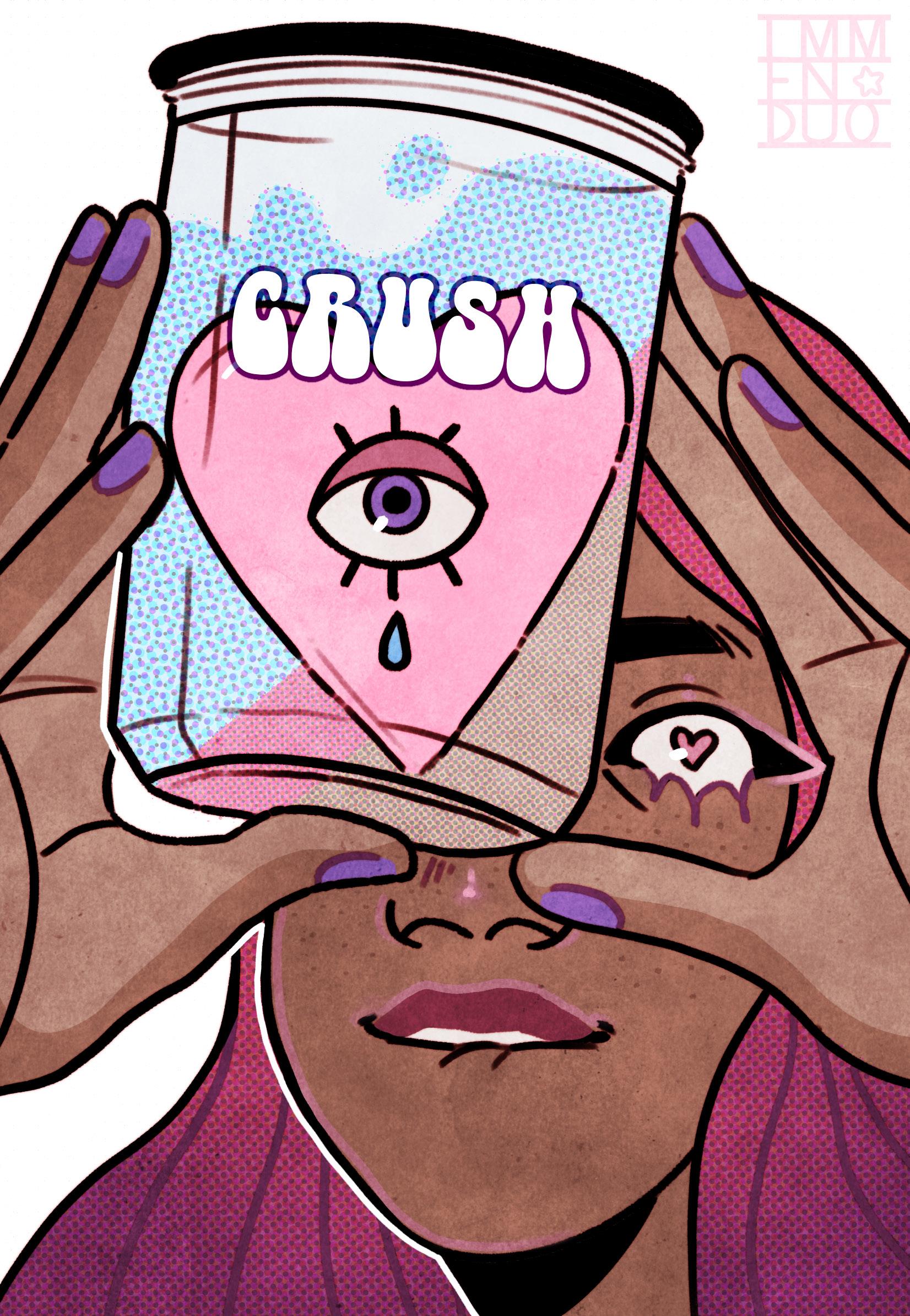
I’m so pissed off at ghosts, but I try to be good to them.
Whenever I go to my parents’ home, I have to fight for my fucking life to have a good night of sleep. My parents’ haunted house was built in the late seventeenhundreds, back when they built houses with rooms particularly for housing the deceased in coffins for visitations — the parlor (as opposed to the living room). Sometimes, it feels like there could be hundreds of ghosts wandering through the walls — ghosts of people, animals, dammed up streams. The Hudson Valley is a very haunted place.
The house is so terribly haunted that the folks who lived there before us filled the house with giant Buddhas to raise the vibrations! My dad moved a life-sized Buddha to the basement and the headboard with a Buddha face in the garage. (I hope they weren’t plundered by some asshole white anthropologist.)
Two summers ago, I wasn’t yet a Buddhist and readily embraced the moving of the Buddhas. I had already begun to feel the effects of the haunting and feared that the ghosts might have somehow latched onto the statues.
One night, I was sitting in the parlor of the creaky house. I suddenly had the intuition that something would occur at 12:30 a.m. That’s weird, I thought. Sure enough, as I scrolled through Instagram on my mother’s luxurious parlor-couch, the clock struck 12:30 and I began to see some WEIRD SHIT.
I saw heat waves — the little wavy squiggles you see over pavement in summer — in the living room across the hall. My attention became directed at random objects around me, closer and closer to the
couch I lay on.
Suddenly, my leg felt like it was dunked in a hot tub. It was too hot. The heat then spread up my leg, into my spine, and to my head, and I felt that I was underwater.
I was confused and bolted upstairs.
I quickly Googled: “what to do when you have a ghost”
And Google told me: “talk to it and ask it to leave”
I stopped reading at “talk to it” and invited the ghost to watch Planet Earth with me. To this day, I cannot watch Planet Earth without feeling terror from David Attenborough’s voice.
Much to my dismay, inviting the ghost to watch TV with me did not help the problem of feeling like there was someone or something in the room which wanted to get my attention.
The sensations I felt utterly robbed me of my bodily autonomy: heat moving up my hand to my neck, my head pounding with pressure.
I tried to tell it to go away after getting sick from the sensation, began to hum and sing to indicate this is not okay and this is my space now.
Eventually, the ghost behaved and left me alone. I fell asleep from exhaustion and woke up an hour later to five shadows standing around my bed. Clearly, I had caused a stir.
It was full panic time. I ran up the stairs to the third floor of the tall, narrow house to my older sister’s attic room. I thought she would know what to do with the ghost because she is a yoga teacher, but she did not even believe that I had seen or felt anything outside of what my imagination could have fabricated.
Her ceiling light then fell from the ceiling onto her bed, and then she believed me.
We smudged my bedroom and the next day smudged the whole house from the basement to the attic.
Unfortunately, that only took the edge off of my perception of non-physical entities in the home.
In Buddhism, ghosts are an especially helpful vehicle to increase good karma. If you help a nasty ghost, releasing them from even a half-cup of their everpresent hunger, desire, fear, or loneliness, it is a pious act of compassion. Hungry ghosts, or pretas, are bogged down by the same afflictions which make humans miserable. If you’re not careful, you may end up as a preta! And would you want someone to have compassion for you in your state of thirst?
Employing compassion during hauntings is much easier said than done.
Sure, I can leave out a slice of an apple as an offering to a miserable impression of
someone’s grief, but what happens if I feel them grab at my toes in the night?
It is therefore also important to utilize wrath. In Tibetan Buddhism, wrath is a caricature or performance of power and rage to shock audiences or devotionals into enlightenment and abandonment of evils.
The only thing that seems to work between me and the starving ghosts at my parents’ house is when I make wrathful demon faces like this one. What the supernatural science of this act is something that is still beyond me. I am still sweet to the ghosts, and wish for them the absolution of their suffering, but nothing seems to be as effective as frightening them with sound, growls, and snarling teeth. That’s what I mean when I have to fight for my life to sleep peacefully; I act as though I am in a chaotic battle, yet all the while I practice feeling compassion in my heart. In this way, I assert my boundaries without creating negative karma (or wishing ill will).
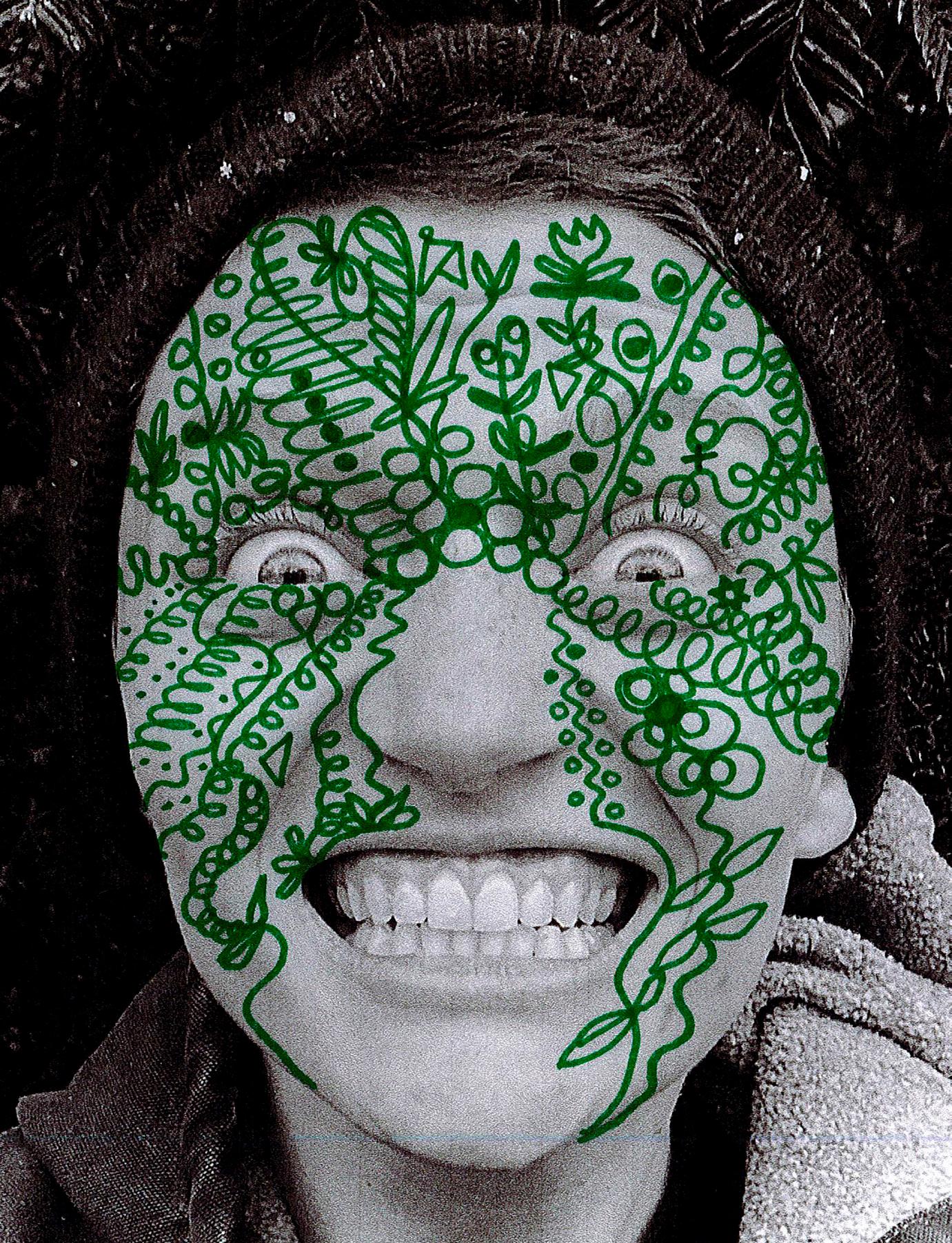
You knock on the inside of my wall. I try my best to sleep and to ignore you. I cannot keep listening every night; I have school and sports tomorrow, and I need my rest. Of course, you terrify me even as you grow familiar. An unstable tangle of pulsing electrical wires. An old radiator banging through the drywall. A ghost.
I entered this world on the Day of All Souls,
by Vee Cipperman art by Alejandro Tejerasome proof that you existed, while I squeezed my eyes shut and crossed my fingers. The mind is a powerful lens; I erased my reality even as you wrote it. Belief slunk away from your fury.
There’s danger to believing. There’s power to acknowledgement. Words – spoken, written – pin nebulous, unthought energies to specific, observable spacetimes. My spiritual friends warn me not to evoke you. I fear how you come at my call.
And yet, what a fate to be unthought forever. I pity your lone desperation. If worms eat your heart, then your efforts eat mine – and I can’t leave you stranded in the past. Your banging left physical marks on my wall. I ran my fingers over them.
I know that you suffer. You’re feeling. Echo. Ghost.
so of course you should seek me out nightly. My life made a promise to death, to the dead. I can’t say I believe in you, unquiet spirits, but I can’t say I disbelieve either. You reach out and yearn for me loudly. You push and you wail. You make your presence known against my will; I never seek you. That’s why I think you stoke my childhood fears.
Our gaping house resounds with your tantrums for attention. You bang on my wall. You stalk our creaky kitchen. Above me, you rattle beams and kick our dusty artifacts. I develop rituals around you, to keep you out of my bedroom and safely at bay. However, in hindsight, I don’t think you would ever hurt me. You wished for an acknowledgement,
You approach me obliquely, that summer in Virginia. You creep around our dorm rooms, our writing classes, our nights singing pop songs and playing guitar. The counselors tell us that you’re here. They want to scare us, to evoke horror movie cliché. You are nothing like a movie; you seethe instead of striking.
I wonder how you see us, as white mists settle in across the tennis courts. Do you watch us with the eyes of still, gaunt deer? Do you hide among the sickly trees, where cicadas wail their mating drones? Or do you find location in our poems, between the meticulous lines? You seep into mine, as I write about the bricks and the quiet and humidity. It’s so hot in the day that I soak through my shirts. It’s so cold after sundown that I sleep beneath two blankets and a damp
“And yet, what a fate to be unthought forever. I pity your lone desperation.”
bath towel.
I become fast friends with a redheaded witch. This retreat is redolent with witches; I can almost smell their magic in the thick air. The witch wears earrings shaped like safety pins and carries a rainbow-painted fan. We watch bad TV shows and sit beside each other in the song circles. I’m cognizant always of her bony wrists, her teeming sketchbooks,
witch girl’s clammy hand. We move into the hallway, and we hear you.
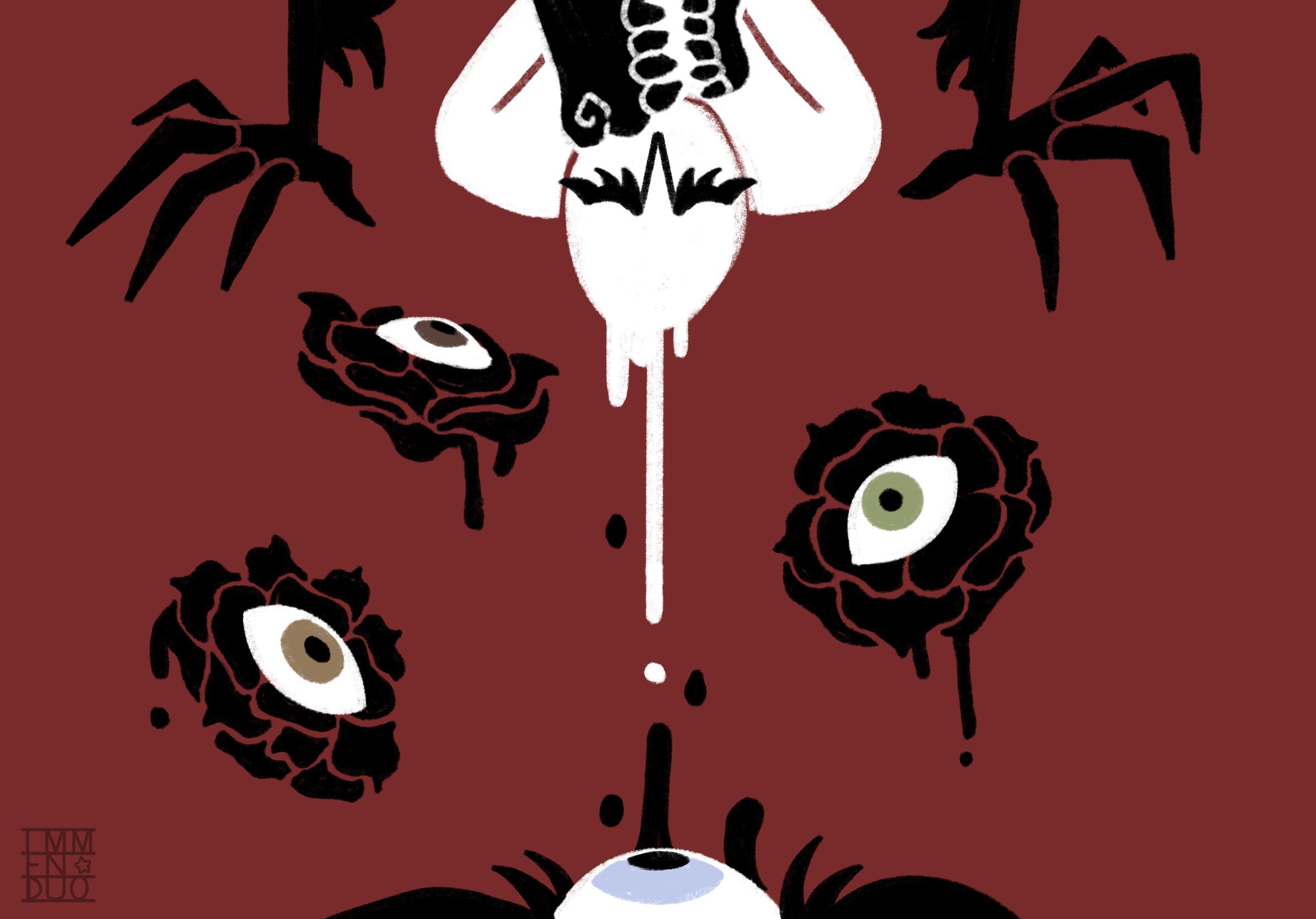
You walk like you want to crush our heads with every step. You’re slow, and you’re loud, and you’re violent. We stare in silence up at the ceiling, and you break it– the silence, and almost the ceiling. Any moment, I think you’ll kick through. We remember stories from the first night – the bad ghost, the shadow man –
and her beat-up shoes. Also, her magic. It fills every space like ozone, like electricity. Maybe that’s why you don’t ever get close, though I feel your heavy presence at my periphery.
I only encounter you once, and it’s when they’ve decided to bait you. The counselors pull us through moldering classrooms, jumping out from the shadows and banging on walls. We escape to the darkroom, and they find us to check we’re all right. We’re all right. My friends are investigating strange machines, and I am clinging tightly to the
but we don’t run until you stop your stomping. Then, we are shrieking, hands clasped as we flee into the night. Our hands are hot and sweaty, clamped so tightly my ligaments burn. We don’t let go, even outside. It is fear. It is love?
And you don’t appear again. At least, I’m not aware of you. Maybe you lurk in the buildings we don’t use, creeping through darkrooms and cafeterias. I can picture you up on the overgrown hill, where a girl’s mausoleum towers high in white marble. She’s the good ghost to your bad ghost. Or maybe you’re the same ghost, and the
story simplifies you into two.
A world full of stories and magic is a bad place for a ghost. You’re too mundane here. You thrill us when we seek you, but we have other wonders to explore. Are you lonely, when we leave after June and you’re left in Virginia? Are you lonely, as a global illness keeps students from returning in the fall? In pandemic times, we all haunt our spaces.
White fog blankets the hills on those cold, cold nights. Your dirge is the rumor of teenagers and the song of cicadas.
emerge slowly, and we try to ignore you.
I look when he tells me to look, and you settle on my body like it’s yours. You enter my stomach and crawl up my spine. Chills set me shaking as my arteries restrict, and then you come down upon my lungs. Air flees from my mouth. I say I can’t breathe, and we’re already leaving – my roommate saying prayers, and me shaking you aside. You exit as we cross the second threshold, but we race to the car. I’m not safe until I’m home and in the shower. I wash away the trace of you with running water: it cleanses the body and soul.
Ghosts come in summer as much as any season. They gather where humidity gathers, where schools empty out, and where dust settles thickest. Ithaca echoes with spirits. Old vines grow across brick facades. We spend many nights beneath the stars in our backyard, and my roommate extols the virtues of sycamore trees. We conduct rituals; we read tarot and light candles while it thunders. I’ve found myself some magic, since Virginia – I write about the witch girl all the time.
It’s not our creaky, ancient house, with its crafty black cat, where you find me. It’s a house I visit briefly, while we stop to feed my roommate’s coworker’s cats. The cats are gray and white, all faded and colorless, but the bigger one greets us readily. They pace the three rooms from end to end of the building. It’s dark in the far room, claustrophobic in the kitchen. We try to feed the agitated cats. You
While warmth and soap run down my face, I wash away my fear. You touched me this time. You combined our two energies. Strangely, I do not regret it. I wouldn’t return to your home, but I will not have nightmares; I’ll tell my mom the story on the phone. Your embrace, though unwelcome, has left me assured and in awe. The worst has come to pass, and I’ve survived our close encounter. Our mutual love and fear are different now.
I wonder if you feel a culmination, or betrayal. I entered your room, though you never walked mine. You entered my body, the form that’s separated us these years. Did it give you any closure? Does a lack of any closure make a ghost?
I don’t think you’ve ceased to exist. I don’t think I’ll ever understand you. I think we’ll haunt each other forever, in some tangential way.
But I’ve felt you. We both live within these bones.
“Ghosts come in summer as much as any season. They gather where humidity gathers, where schools empty out, and where dust settles thickest.”
Hello listeners, I hope you all had a great summer. It’s the beginning of the school year and we already have some news!
First things first: Starting from next school year, dorm assignments will be determined by a large, student-wide game of rock-paper-scissors. The housing department has decided that this will be more fair for everyone, since the winner will be determined completely randomly.
Some questions have been raised about the logistics of planning rock-paper-scissors with the whole student body. We have to figure out how to get the students all in one room to play the game, especially because of COVID. These decisions are still being worked out.
Unfortunately, we are going virtual for the first two weeks of the semester and a lot of professors are figuring out how to accommodate for this change. One of the difficulties is breakout rooms in discussion sections. A lot of TAs report that no one talks during breakout rooms, which kind of defeats the purpose of having a discussion. The math department is developing a plan to fix this, which involves free food. The professors realize that free food is one of the biggest motivators for students today, and honestly, I’m not going to argue with that! The current plan is that if students participate in their discussion breakout room for the day, they get a free cookie sent to them in the mail. The professors are really hoping that the cookies stay intact in the mailing process, but they make no promises.
Time to get excited everyone, because clubs are taking applications this semester! However, many of them have a rather intense application process. For example, the Casual Hiking Club currently requires three essays and two rounds of interviews. When asked about this process, the club president said “You need special qualifications in order to take a chill walk to the lake with our group. We’ve gotten sooo many applicants from just about every major there is and you know what? Some of you just don’t have what it takes to be in the Casual Hiking Club! Don’t worry though, there are other clubs out there, although they’re definitely not as cool as our club.”
Recently, some clubs have been having difficulties with reserving rooms and would sometimes get double booked with others. This happened with the fencing club and medieval club, who settled the dispute by sword fighting. Thankfully no one got hurt, there weren’t any real swords involved, which is more than I can say for last year. However, tensions were running pretty high, so hopefully clubs can sort out this issue a bit better in the future.
Group projects are also starting to happen, and students are trying their best to find partners. Several students are being increasingly specific about who they don’t want in their group project. Examples of this are:
“People who aren’t willing to work on this project after 1 a.m.”
“People who don’t like the food at the All-You-Can-Swipe Dining Hall.”
“People who like the food at All-You-Can-Swipe.”

“People who like Python, because C is obviously better.”
“People who don’t take a shower every day.”
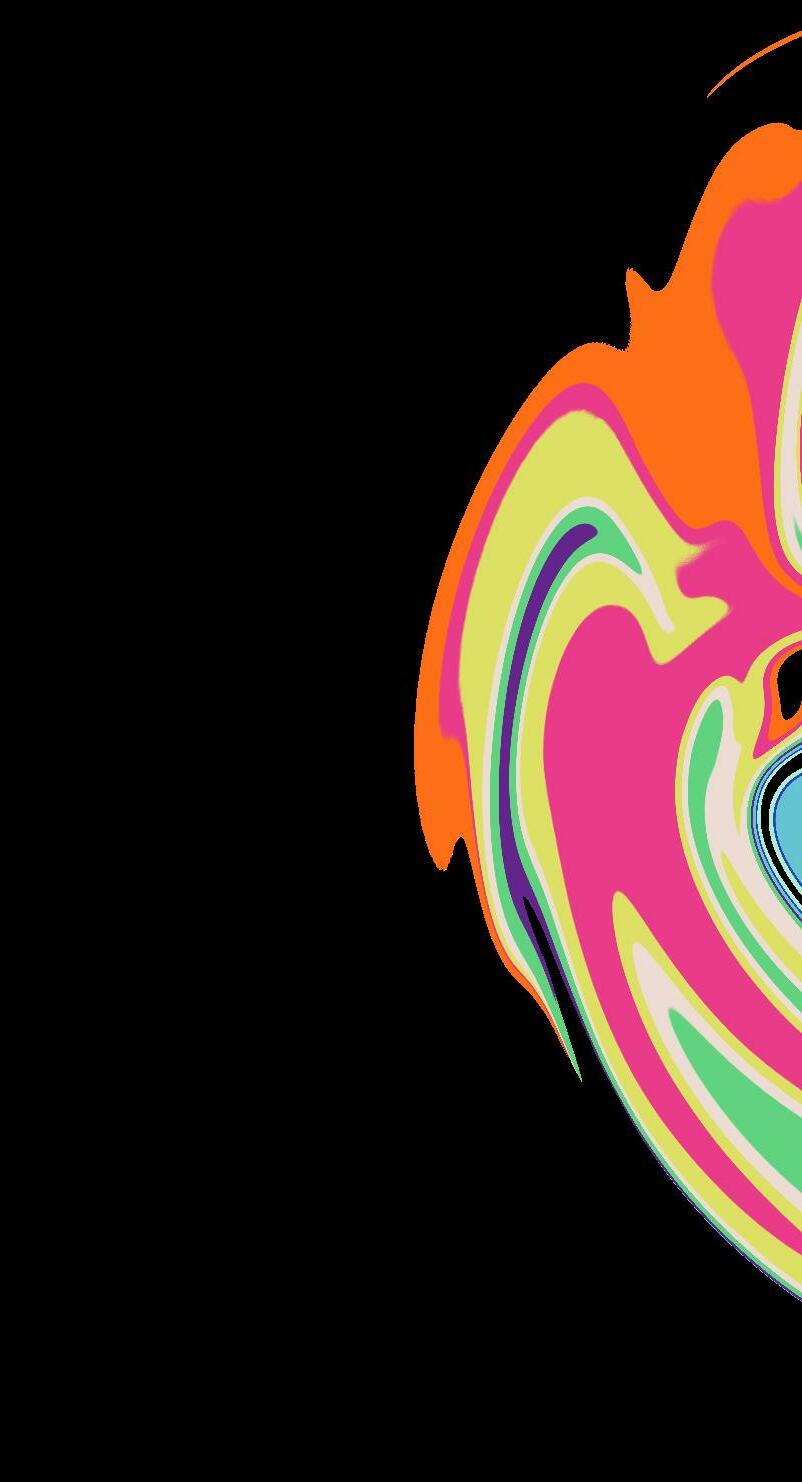
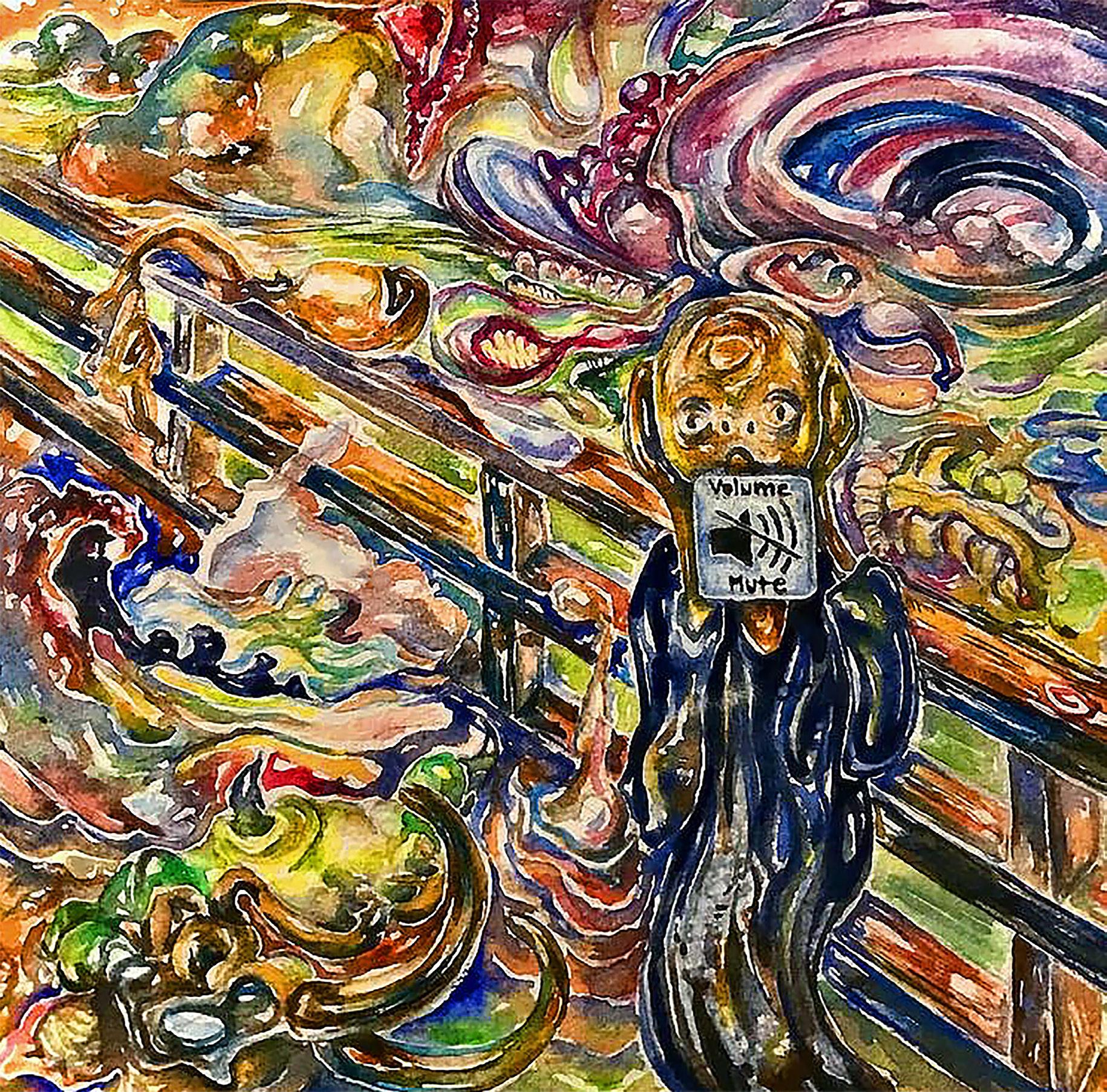
“People whose name is Edgar and who stole my lunch in 7th grade and called me an idiot, I’m pretty sure you don’t go to this college but you can never be too safe.”
So there we go! Hopefully this helps people find compatible partners for their projects. That just about concludes today’s news. And now, the weather.
<It was past midnight, and we were eating cake.>
“If you just think about biology, you realize that everything is pointless,” my friend said. “Why did anything evolve the way it did?
“Take koalas,” she continued. “They’re useless.”
I choke a little on a mouthful of mousse.
“No, but seriously,” she insisted. “They sleep, like, 20 hours a day. Because all of their energy goes into breaking down the eucalyptus leaves that they eat. Their one and only food source is literally so toxic that they have to spend almost all of their time letting their body process it. The only time they get down from the trees is when they need to have sex. How did they even get to be what they are? How have they even survived this long?”
“Because if it works, it works?” I suggested, scooping up another forkful of cake.
“Well, yeah, but!!!” She waved her arms around in various vague, gesticulating motions, as if no words could possibly convey the extent of her confused exasperation that such a pointless creature has remained in existence. “How did things happen so that becoming an organism that is codependent on a poisonous food source–and not even properly, since it needs to sleep away most of the day to digest said poisonous food source–was a . . . a fine evolutionary pathway?”
And, you know? She’s right. Things just happened that way. No rhyme or reason to it, other than it simply did.
A one in a million–no, more than a million, probably closer to one in infinity–chance. And it happened. And things went on from there.
All that extends to other things, too.
That is to say, Everything is random.
<MSE 3030: Thermodynamics – wrong!>
Entropy is disorder. A state of chaos. Popular culture hammers this “fact” into our minds and thoughts and our conception of reality just as much as the ghostly whispers of lectures from science classes past whisper that “fact” into our subconsciousness.
But in thermodynamics, one learns that entropy is possibility. Taken and not-yet-taken and possiblynever-will-be-taken configurations.
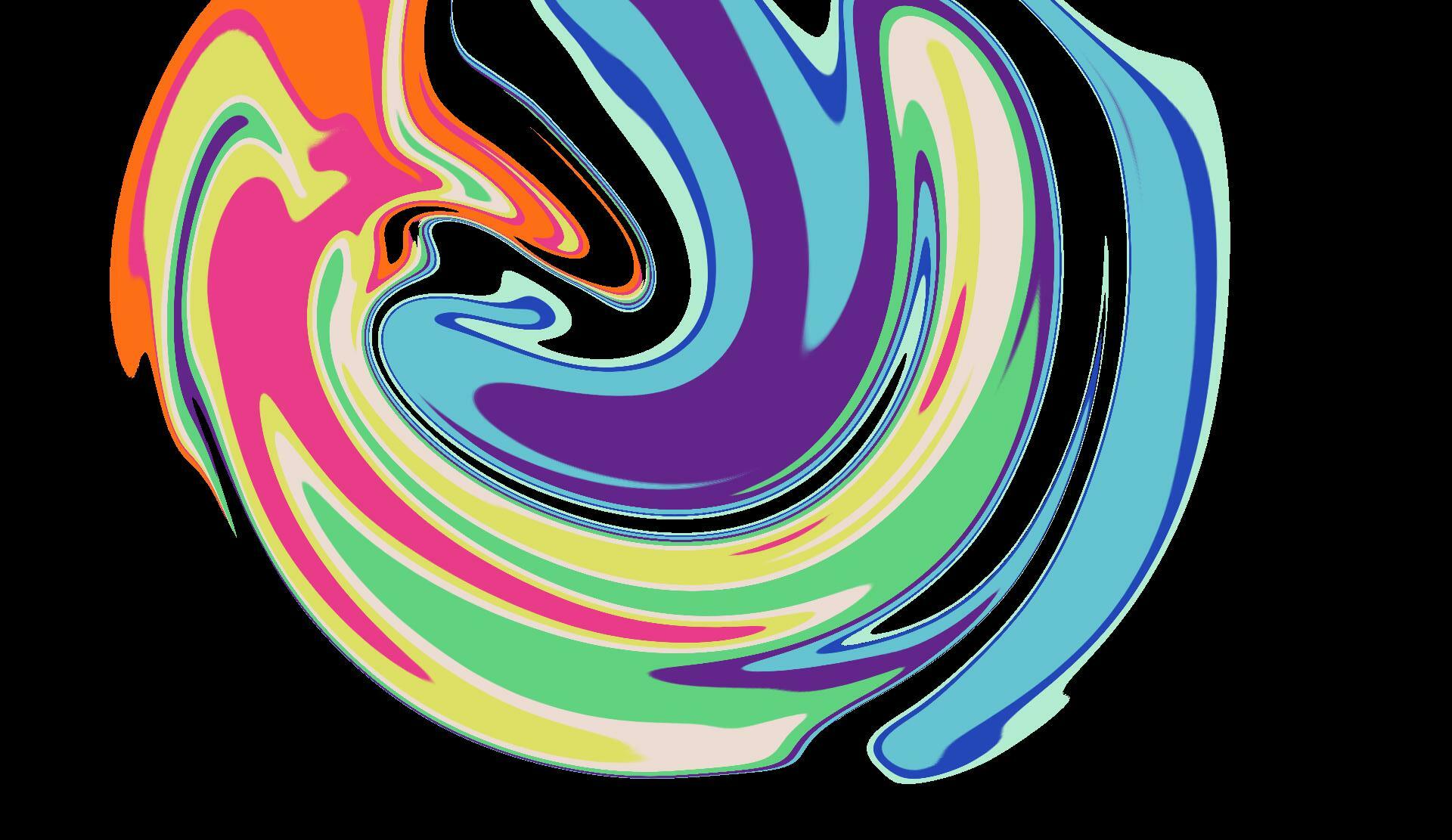
Or more specifically: entropy is a quantification of possibility. And this quantification of possibility can be reversible or irreversible.
A lot of the time, entropy is irreversible. A fancy way of encapsulating what we know from common sense and our five senses: most events don’t run backwards. Crack an egg into a pan, and you know there’s no way the egg yolk and whites will bunch together and back into the eggshells into your hand. Spill a cup of water all down your shirt, and you don’t expect the water to condense out of the damp cloth and stream back into the cup.
This is how irreversible entropy sets an arrow of time.
Here’s another way of looking at it. Our cracked egg will stay cracked, and it will only change in ways that follow the flow of time into the future. We can cook the egg. Turning on the stove, heating the pan–we enact these forces of change upon the egg, and the egg responds by changing form, changing shape, changing being, becoming the possibility that is denatured proteins and sunshine-yellow-and-glossy-white breakfast goodness that was part of (but unrealized) (and only one of many possibilities contained in) its raw, whole, uncooked form. But our egg will
never go back to that original state. Nothing we do will re-fold the proteins, repair the shattered shell, bring the egg back to what it was before the world pushed it along that particular path of possibility.
Before the egg was cracked, before the egg was cooked–why, think of all the things that could have been! It could have been boiled. It could have stayed in the fridge for weeks, unused, until you jostle the carton a little too hard while rearranging the fridge, just enough to crack it, just enough for it to slowly go bad. It could have been dropped on the ground as it slips from your fingers. It could have been baked in a batch of cookies. But once a path came to be–once the egg was picked up and cracked into the frying pan–now, all those other possible paths can never be.
We can see and understand this clearly. We take it for granted that this is how our world works. We know intuitively that this is so, despite there being no good way to get cold, hard, numerical proof.
Isn’t it funny, how something we can’t measure, we can see the implications of?
Isn’t it funny, how something so chaotic is inherently directional and sets order to our world?

<An aside: Statistical Mechanics>
Closely related to thermodynamics is statistical mechanics; using math to describe microscopic behaviors and patterns, and then combining those mathematical models to describe macroscopic behaviors and patterns. “For us engineers,” my professor informed us, “the ‘why’ and ‘how’ of these models are not important. What matters is that they work, and work consistently. We leave the ‘whys’ and the ‘hows’ to the philosophers.”
Disorder is ordered, and order has disorder. And even within the known disorder-order-orderdisorder, there’s room for interpretation.
<CHEM 3890: Physical Chemistry – dice>
Nature is inherently probabilistic, as one learns in introductory quantum mechanics.
When we break it down far enough, what are we humans but interactions of molecules, atoms, subatomic particles? The structures making up our bones and sinews, the electric pulses and chemical signals that our neurons transmit throughout our bodies . . . they all involve atoms and electrons, protons and neutrons with charges, energies,
Because you see, entropy is only reversible at limits, at borders, where changes are close enough to infinitesimally small that while there is a change, there simultaneously is no change. Even in liminal space, even in these liminal cases, chaos follows patterns.
attractive and repulsive forces with other particles, and motion across three-dimensional space. Or lack thereof.
These particles are eggs. Each one contains–each one is–many, many possibilities. Just as we turn on the stove and heat up the frying pan to cook an egg, the world enacts forces of change on the particles
“Isn’t it funny how Something So chaotic is inherently directional and sets order to our world?”
that can and do change their nature, that can and do push them along a path of possibility. One can represent a force of change using a letter (Greek, if you want to be fancy), a “hat” (^), and by calling it an “operator.” But unlike our egg example, one can find the numerical probability that a particle will follow some path of possibility.
I’m sorry, Mr. Einstein, but gods do play dice with the world. Pratchett had it right, somewhat. The gods may not be lounging around a table on top of which is laid out a game board that is the world, and they may not be moving the pieces and players according to rolls, but it seems they did think it fitting to associate numerical chance with possible states of being.
So. We are naught but numbers. But who said that numbers are static and known? Each of us is a number. A number made up of–resulting from–hundreds of thousands of millions of numbers. Each of us is a measurement, a possible configuration. Does that scare you?
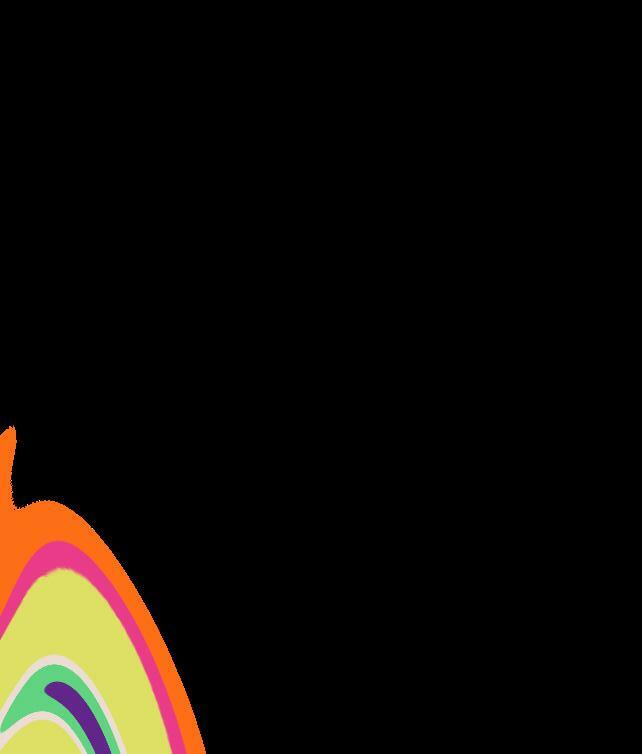
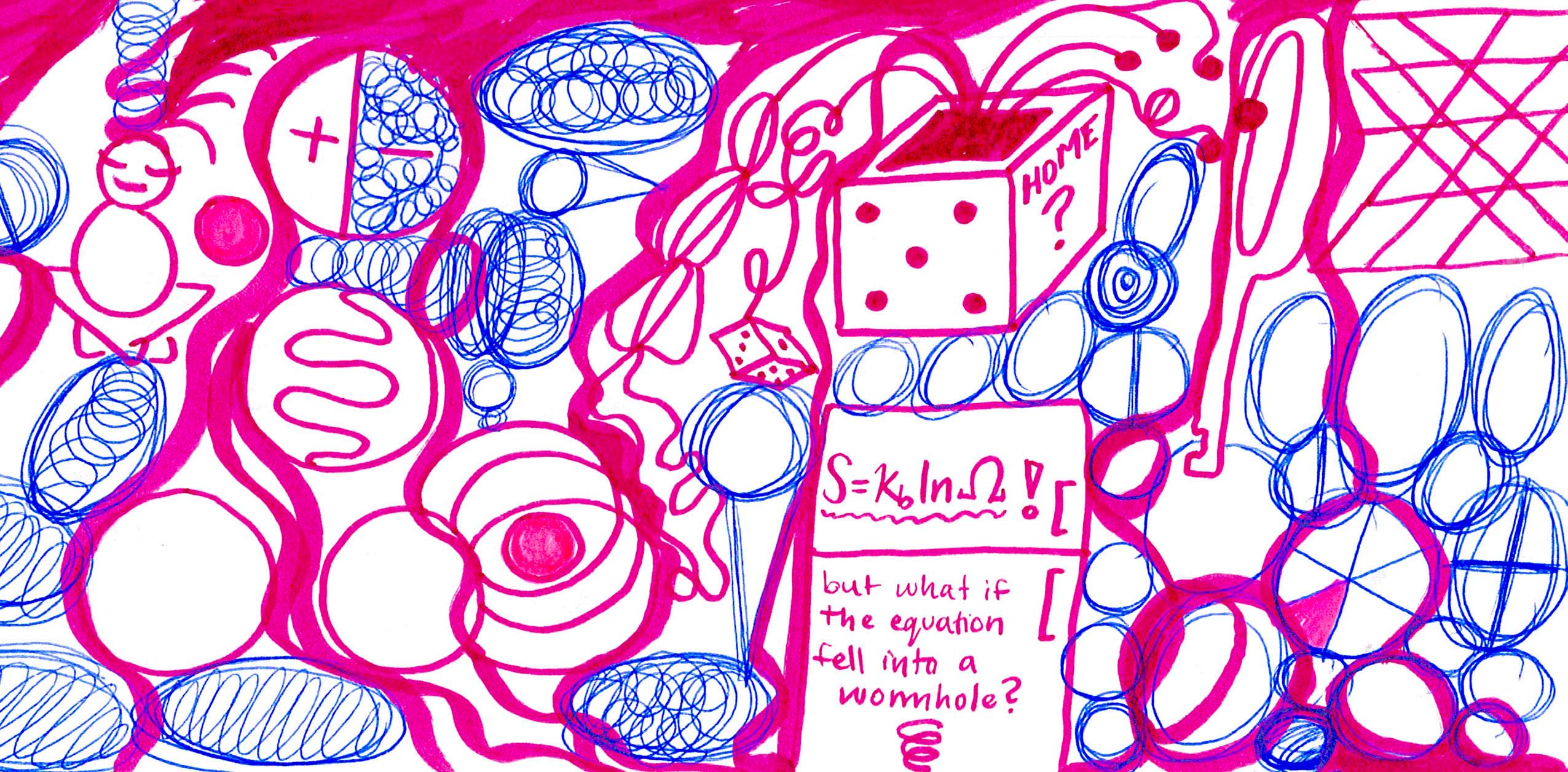
Even if we are made up of a fixed number of random variables, upon which a random, fixed number of operators can act upon . . . which operators act upon which variables, in what order, how many times? The number of possibilities approaches infinity. Who knew one could reach infinity this easily?
Every being, every instance, every particle, is an instance of infinity. People are sums of infinities. Does that scare you?
Reprinted with permission from the Cornell Daily Sun.
You can find my good friend Havi Rojer squatting by a log midsummer, whispering to a blossom of gangly mushrooms. They love nature on a deeply spiritual level, and also happen to be a brilliant environmental microbiologist. In the lab, they study how host interactions shape bacterial genomes and communities. As their friend, I witness them working hard to personally process profound environmental concepts and issues.
As the two of us wander down a trail, we each notice precise, seemingly random characteristics or little creatures of the forest. Years of our individual attention and refuge in nature allow us to come together and notice relationships among the local biosphere. We wonder when a tree has fallen, how the earthworms are doing, whether there will be too much erosion.
Havi and I both connect deeply with nature because of our spiritual curiousity, and also because we are queer; neither of us identifies within the gender binary, and we do not like to be around many people. Nature offers non-judgemental, unconditional acceptance for us. In natural spaces, we reflect upon the experience of sociality using metaphors. We celebrate life growing, wings flapping, someone scuttling up a tree. My wish is for everyone to have access to this joy.
Spending time in nature is not only beneficial for individual self-realization and mental health, but it also leads to thorough literature — scientific and poetic — with subversive power. Indigenous authors today shift the nature-as-resource paradigm in order to decolonize our Cartesian worldview. Mainstream literature which illustrates the perversion of our society’s relationship to the environment include works by Leslie Marmon Silko, Linda Hogan, Joy Harjo and Robin Wall Kimmerer.
In natural spaces, we reflect upon the experience of sociality using metaphors.
We celebrate life growing, wings flapping, someone scuttling up a tree.
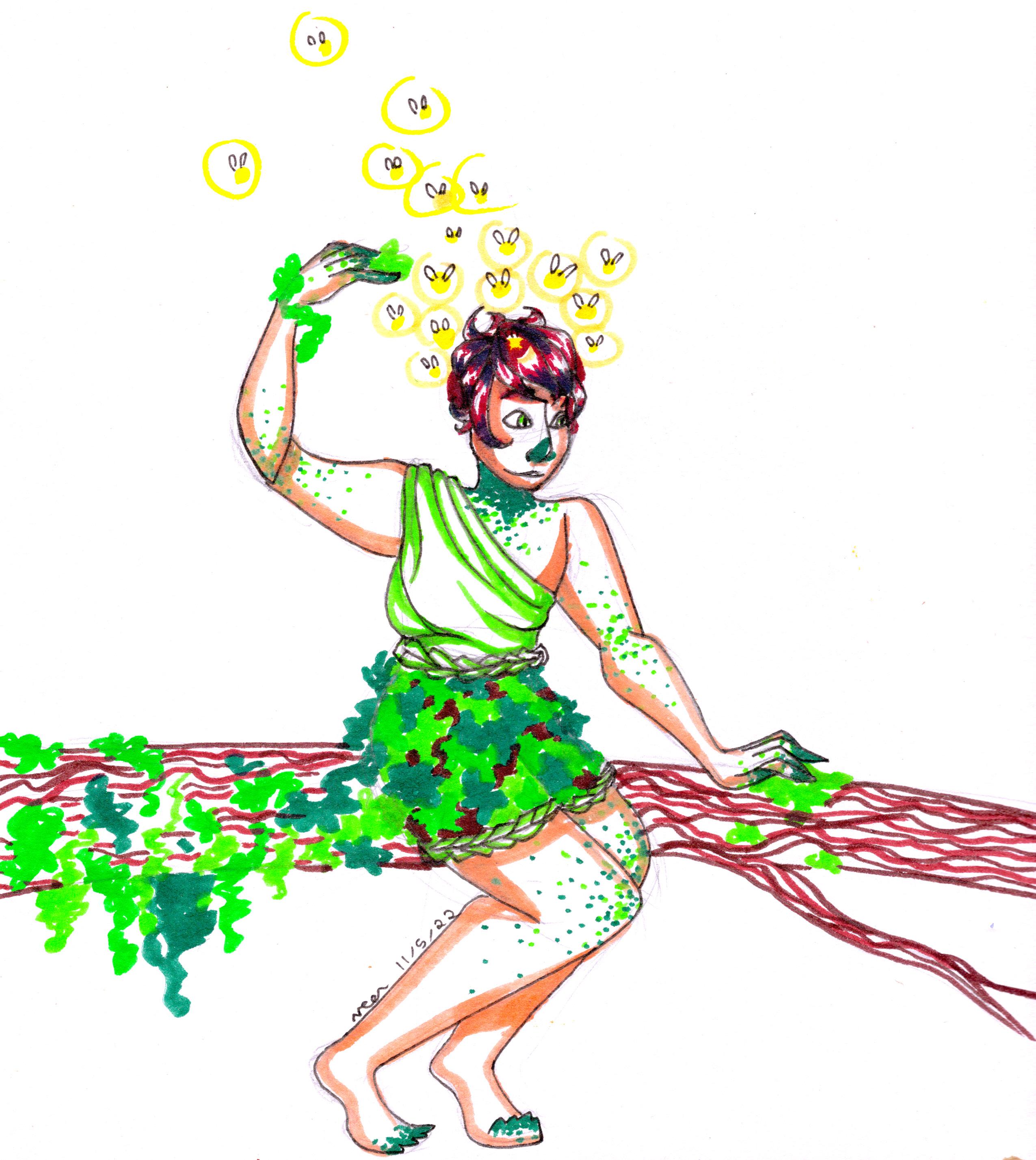
Havi advocates for utilizing innovative scientific research to shift cultural imagination for the sake of social change. “Did you know that there are intersex bears?” Havi recently asked me. They shared with me empirical research about animals’ sexual plasticity, an increasingly popular subject. If more people read research like this, sexual and gender essentialism would surely be obsolete.
My friend thinks that we can learn about ourselves and our communities by making mycology legible to the public. Havi explained to me that fungi have thousands of sexes and mating types, contrary to the male and female reproductive systems of most trees. It is hard to categorize them, they explain. I asked them to describe how they understand fungi’s relevance to sociality. Havi responded, “I think mushrooms and fungi are inherently understudied largely because they are so weird and do not fit into categories — which is the case for many people. Lots of people don’t fit neatly into binary categories.”
Havi continued to explain that we must understand the interdependence displayed within each layer of our social communities, including local, national, online and international relations. It is impossible to study fungi as a single unit; they support countless other species and ecologies. Fungi, therefore, facilitates the greater study of interdependence.
We must honor the history of the land and behave respectfully as we hike or do field work in the sciences. This may look like navigating land with humility, a donation to Gayogohó:no Sovereignty and Rematriation, cleaning up litter, deep listening to the woods and understanding the University’s role in environmental degradation, because it has destroyed much more than it is supporting. Study of the natural world can yield models of cooperation which have disappeared from imaginations due to colonial, greedy systems.
Havi and I are incredibly lucky to be close to nature in Ithaca. In the throws of climate change and environmental catastrophe, loving nature and studying it closely is a privilege. Climate science research should be prioritized in the quest for more information about the natural world, and the uneven impact of climate change, nationally and internationally, should always be on our minds.
As governments seek to repair destructive habits, they must take an interdisciplinary approach to justice, which includes the understanding of how environmental degradation is related to Indigenous displacement. Biodiversity is dwindling; we ought to understand this as an urgent matter. We ought to understand the displacement of Indigenous peoples as an urgent family matter, because we are all on this Earth together.
[Governments] must take an interdisciplinary approach to justice, which includes the understanding of how environmental degradation is related to Indigenous displacement.
